AT THE
HELM
A HISTORY OF THE COLLEGE PRESIDENCY
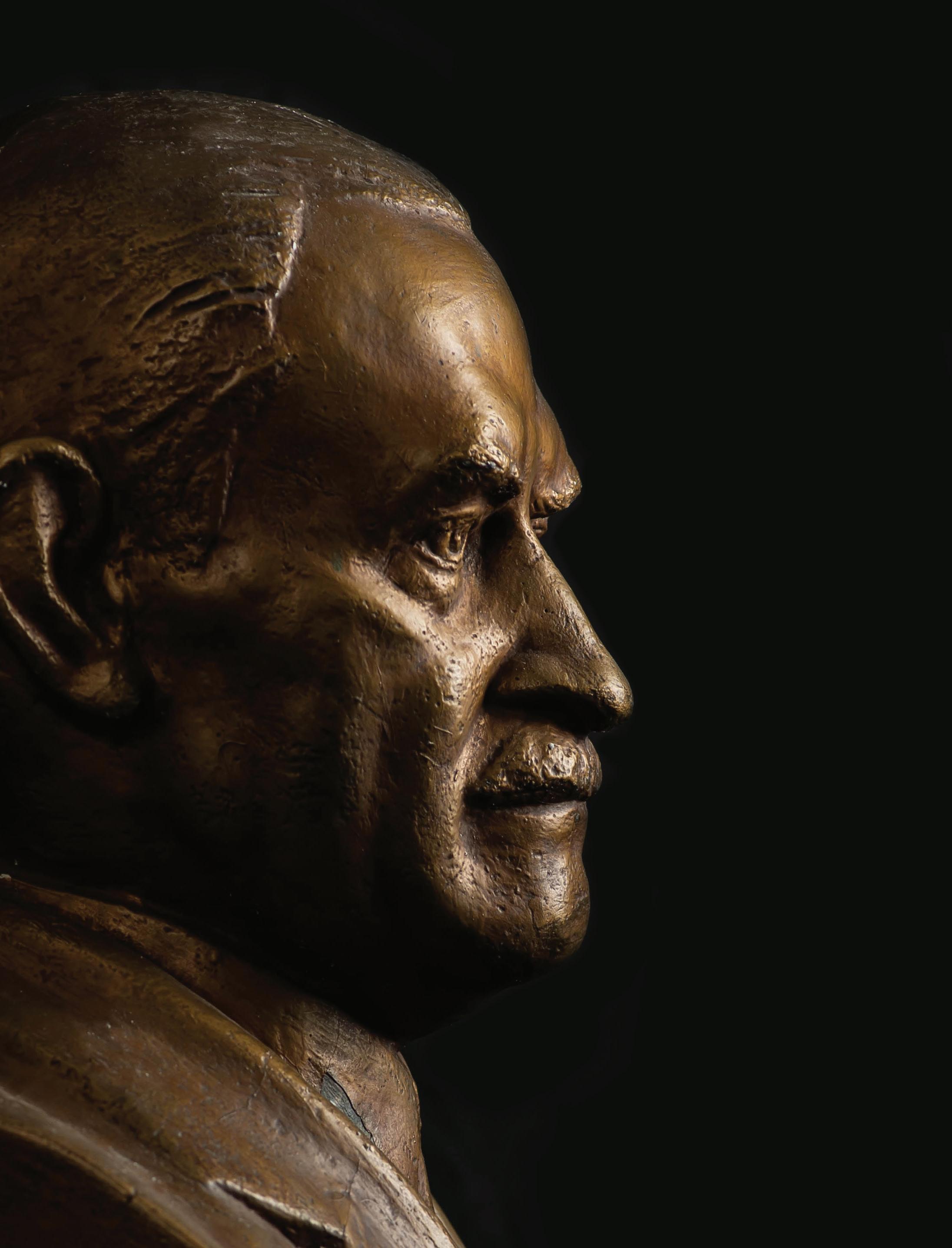
PHILADELPHIA COLLEGE OF OSTEOPATHIC MEDICINE 2023 NUMBER 2
VOL. 84, NO. 2, USPS, 413-060
Digest Magazine is produced by the Office of Marketing and Communications under the direction of Wendy W. Romano, chief marketing and communications officer.
EDITOR

Jennifer Schaffer Leone, MA
PUBLICATION DESIGN
Abigail Harmon
CONTRIBUTORS – FEATURES
Janice Fisher
Jennifer Schaffer Leone
David McKay Wilson
CONTRIBUTORS – UPDATES
Liandra Larsen
Daniel McCunney
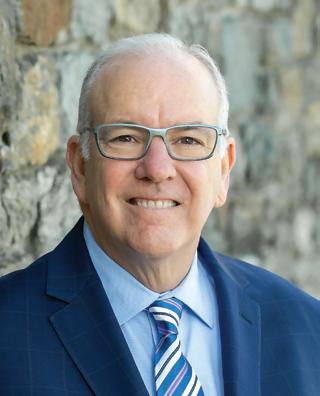
Cindy Montgomery
Barbara Myers
Dan O’Connor
Jordan Roberts
CONTRIBUTORS – CLASS NOTES
Institutional Advancement Staff
Tori Danner, MS/ODL ’18
Meghan McCall
PHOTOGRAPHY
Bruce Fairfield
Melissa Kelly Photography
Daniel Shippey Photography
Anthony Stalcup
ARCHIVAL RESEARCH
Mitzi Sorrells, MLS
SEND QUESTIONS OR COMMENTS ABOUT DIGEST MAGAZINE Marketing and Communications, Philadelphia College of Osteopathic Medicine
4180 City Avenue Philadelphia, PA 19131-1695 215-871-6300 communications@pcom.edu
SEND INFORMATION FOR CLASS NOTES AND ADDRESS CHANGES TO:
Institutional Advancement, Philadelphia College of Osteopathic Medicine 4180 City Avenue Philadelphia, PA 19131-1695 215-871-6120 alumni@pcom.edu
Periodical postage is paid at Upper Darby, PA, and at additional mailing offices.
Opinions expressed are not necessarily shared by the College or the editor.
DIGEST
Dear Alumni and Friends:
The last issue of Digest Magazine was in the mail when we learned the news of the passing of Matthew Schure, PhD, our College’s seventh president and chief executive officer. So it is fitting that this issue pay tribute to him and to the legacy he leaves behind. Matt was a visionary leader, committed to excellence and fiercely devoted to our College’s mission and values. He is greatly missed.
As a companion piece to the In Memoriam, and as part of Digest’s ongoing series, 125 Years Through 125 Stories, the feature considers the history of the presidency of our College since 1899. Biographical sketches reveal who each of the eight presidents were/are as well as significant aspects of College history during their tenures. Personally, I am humbled and honored to be counted among such exceptional leaders. Reflection stories continue to celebrate our people—faculty, staff, alumni—and bring to light our College’s history of inclusiveness, one that will continue to be a strategic priority.
Finally, of special note, PCOM will officially commemorate the 125th anniversary of our founding throughout 2024. Our anniversary is an ideal time to reaffirm our College’s mission and values and to reflect on our impact and influence as we look ahead to the future.
Jay S.
President and Chief Executive Officer
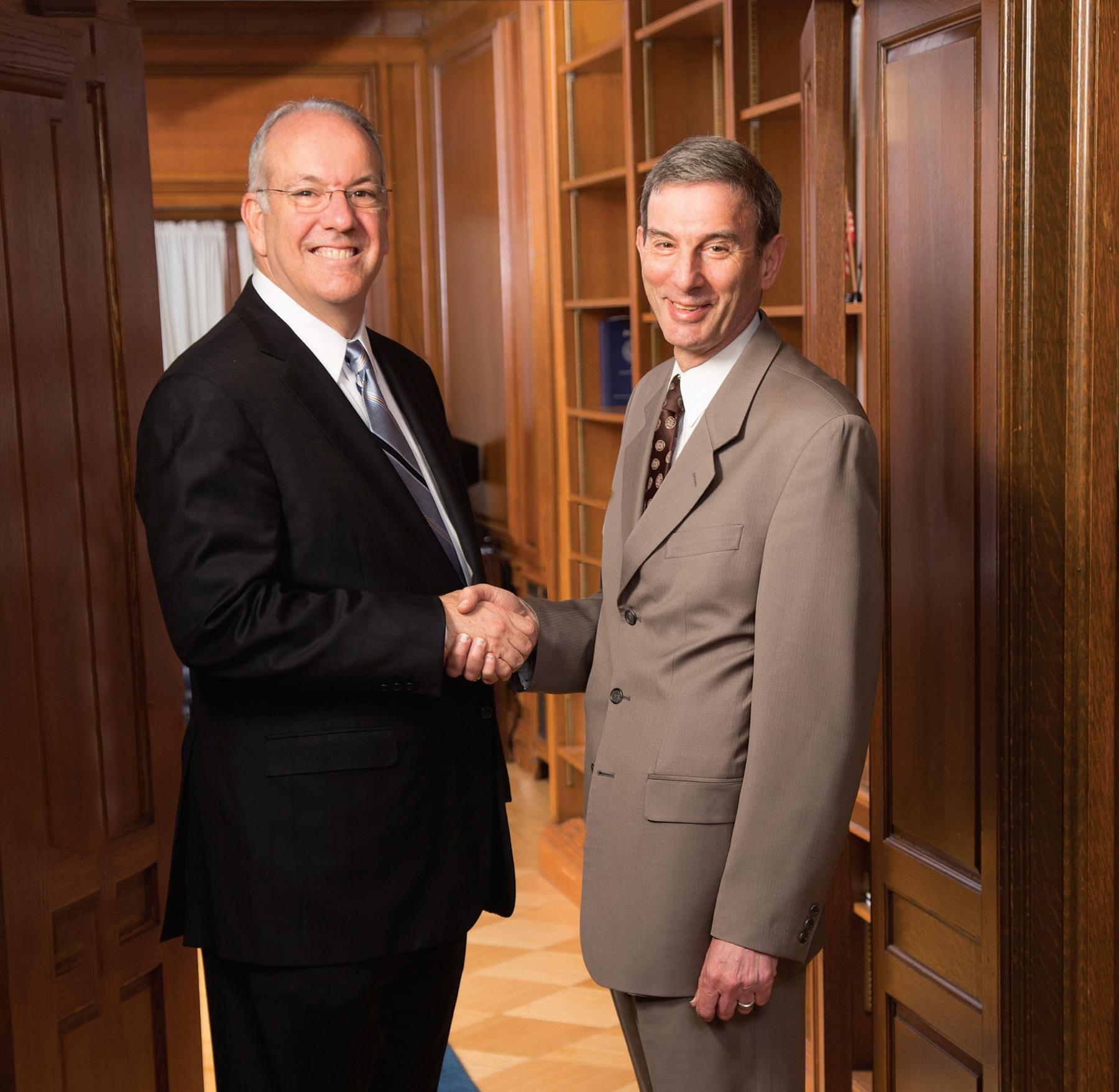
2
FEATURE
©
All
Feldstein, DO ‘81
2023 Philadelphia College of Osteopathic Medicine.
rights reserved.
Matthew Schure, PhD, warmly welcomed Jay S. Feldstein, DO ‘81, to campus in 2014. Dr. Schure passed away in February.
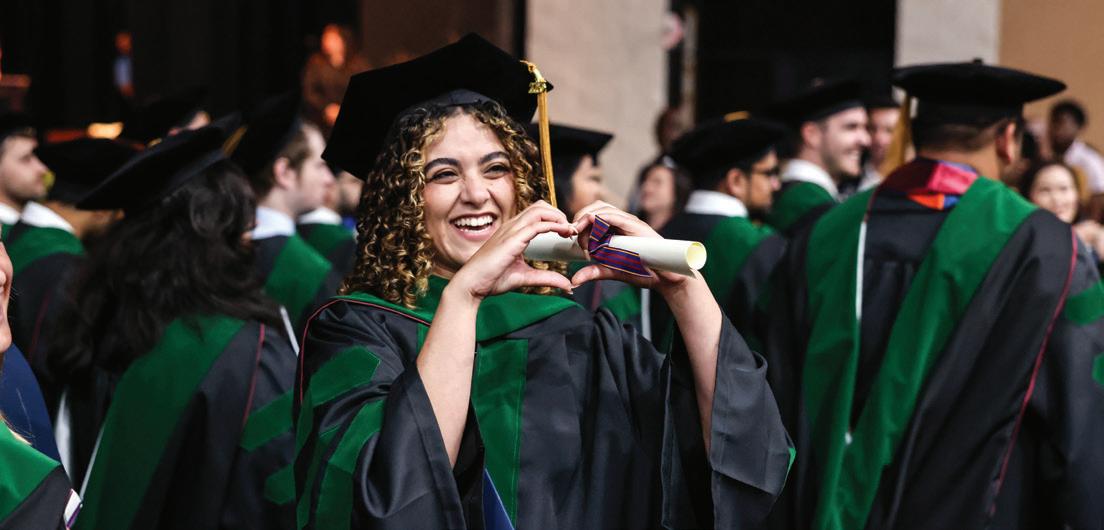

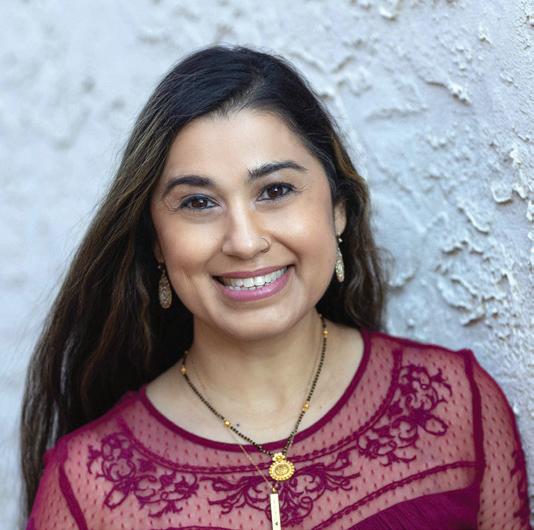
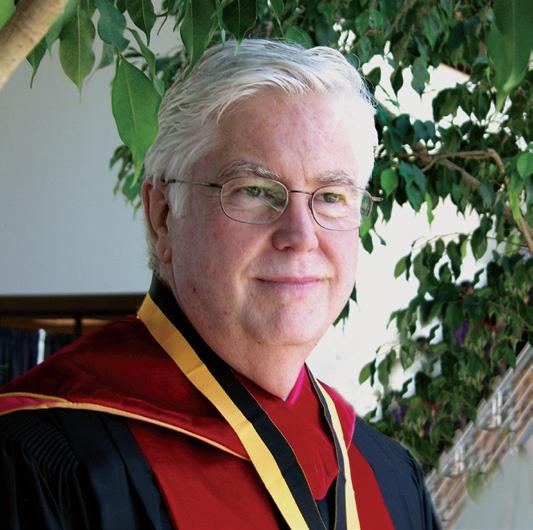
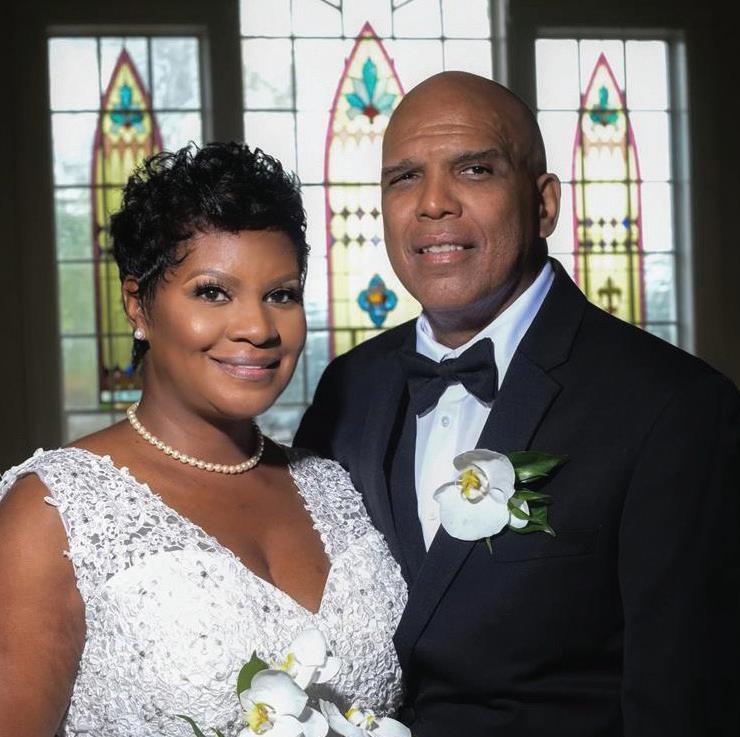
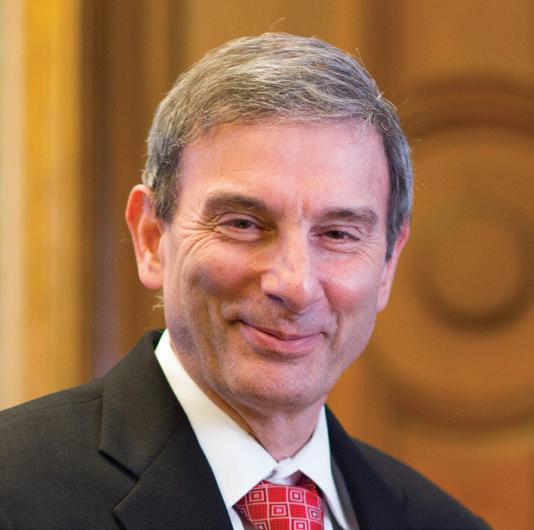
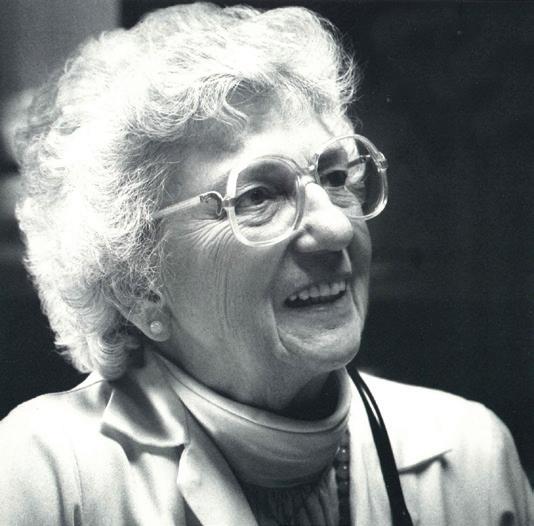
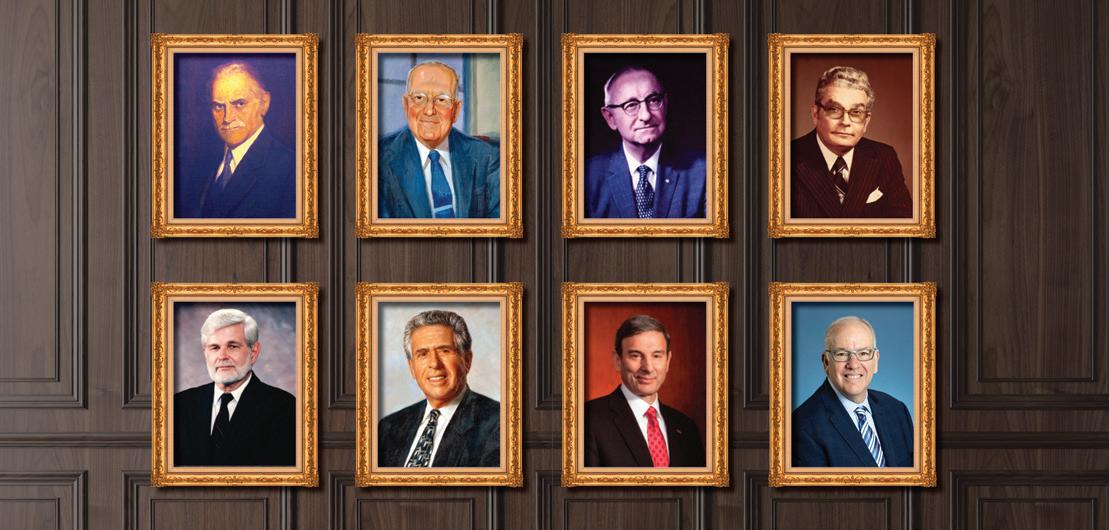
DIGEST 2023 1 CONTENTS 2 Updates 8 Advancing Alumni 10 At the Helm: Portraits of those who have led PCOM during its nearly 125-year history 20 In Memoriam: President Matthew Schure, PhD 24 125 Years Through 125 Stories: Celebrating Our History of Inclusiveness 30 On Leadership & Legacy: H. William Craver, III, DO ‘87, FACOS 32 Class Notes 8 30 32 20 24 2 10
PCOM SOUTH GEORGIA’S INAUGURAL DO GRADUATING CLASS HIGHLIGHTS 2023 COMMENCEMENT CEREMONIES
Two exciting firsts highlighted May’s Commencement ceremonies: the graduation of PCOM South Georgia’s inaugural DO class, and the debut of combined ceremonies at all three College locations—for all degree programs together.
PCOM South Georgia, Moultrie, Georgia, was founded in 2019 to help grow medical education in Southwest Georgia and meet the long-term healthcare needs of the region. Four years later, it graduated its first class of 51 doctor of osteopathic medicine students. Graduates will go on to residency training programs and eventually practice in underserved areas of the state and the surrounding region—and across the nation.
In addition to the osteopathic medical graduates, seven students graduated from PCOM South Georgia’s biomedical sciences (MS) program. The first class of biomedical sciences students graduated in 2022.

Holding combined ceremonies for all doctoral and graduate degree programs for the first time, the College celebrated the Class of 2023 with one comprehensive Commencement ceremony for each campus location—518 graduates at PCOM, 283 graduates at PCOM Georgia and 58 graduates at PCOM South Georgia. The combined arrangement enhanced each of the three main ceremonies, making them a more meaningful, unified experience.
Each ceremony featured notable keynote speakers. Medical bioethicist, professor and author Arthur L. Caplan, PhD, delivered remarks to PCOM students at the Pennsylvania Convention Center in Philadelphia on May 19. On May 23, Julie Ginn Moretz, chief experience officer at Augusta University Health System, addressed PCOM Georgia graduates at the Gas South District in Duluth. James L. Matney, president and chief executive officer of Colquitt Regional Medical Center in Moultrie, delivered remarks on May 25 at the University of Georgia Tifton Campus. Adding meaning to the ceremonies were the challenges and complications of the global COVID-19 pandemic the Class of 2023 overcame. Though the landscape is no less uncertain today, this year’s Commencement ceremonies were steeped in optimism and hope for the future.
All three ceremonies were livestreamed on the College’s YouTube and Facebook pages.
A NOD TO THE HISTORY OF PCOM SOUTH GEORGIA
In his Commencement remarks, Jay S. Feldstein, DO ’81, president and chief executive officer, PCOM, recounted the early development of PCOM South Georgia:
• “Beginning in 2016, H. William Craver III, DO ’87, FACOS, now retired, but then vice provost, dean, and chief academic officer of PCOM Georgia, with other College officials, recognized that there was a need to grow graduate medical education beyond North Georgia.
• “We were fortunate to gain considerable support from legislators, local and regional businesses, healthcare and education stakeholders, and community members in South Georgia. We were supported by the likes of Jim Matney, president and chief executive officer of Colquitt Regional Medical Center, whose goal it had been to build a regional site for rural medical education. The South Georgia Medical Education and Research Consortium further buoyed our efforts.
• “We followed the recommendation of Sasaki Associates, an international consulting firm tasked with choosing the best location in the Southwest Georgia region for our new medical program.
PHILADELPHIA COLLEGE OF OSTEOPATHIC MEDICINE 2 UPDATES
• “In December 2017, we received initial approval from the American Osteopathic Association’s Commission on Osteopathic College Accreditation to move forward with the development of PCOM South Georgia.
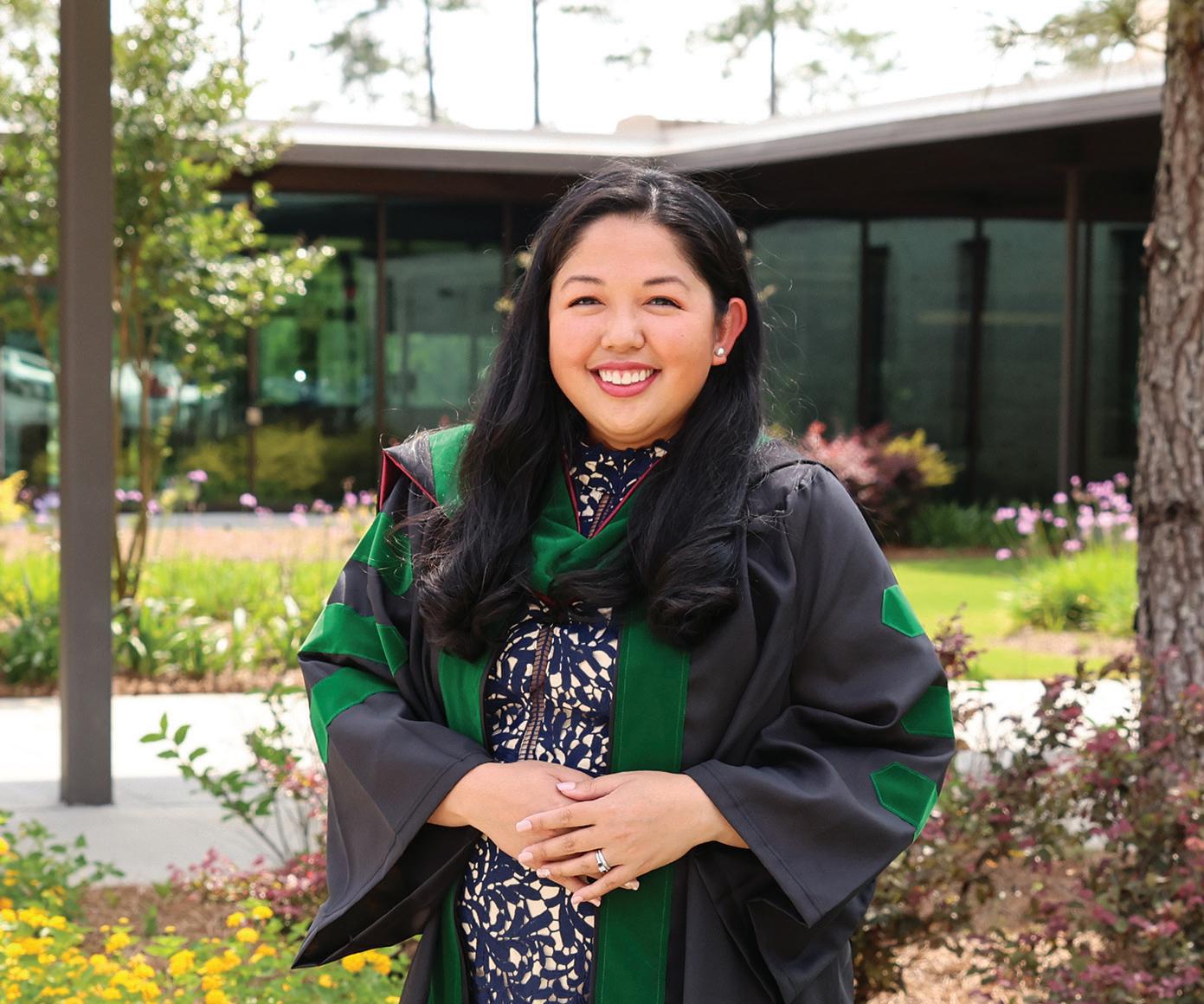
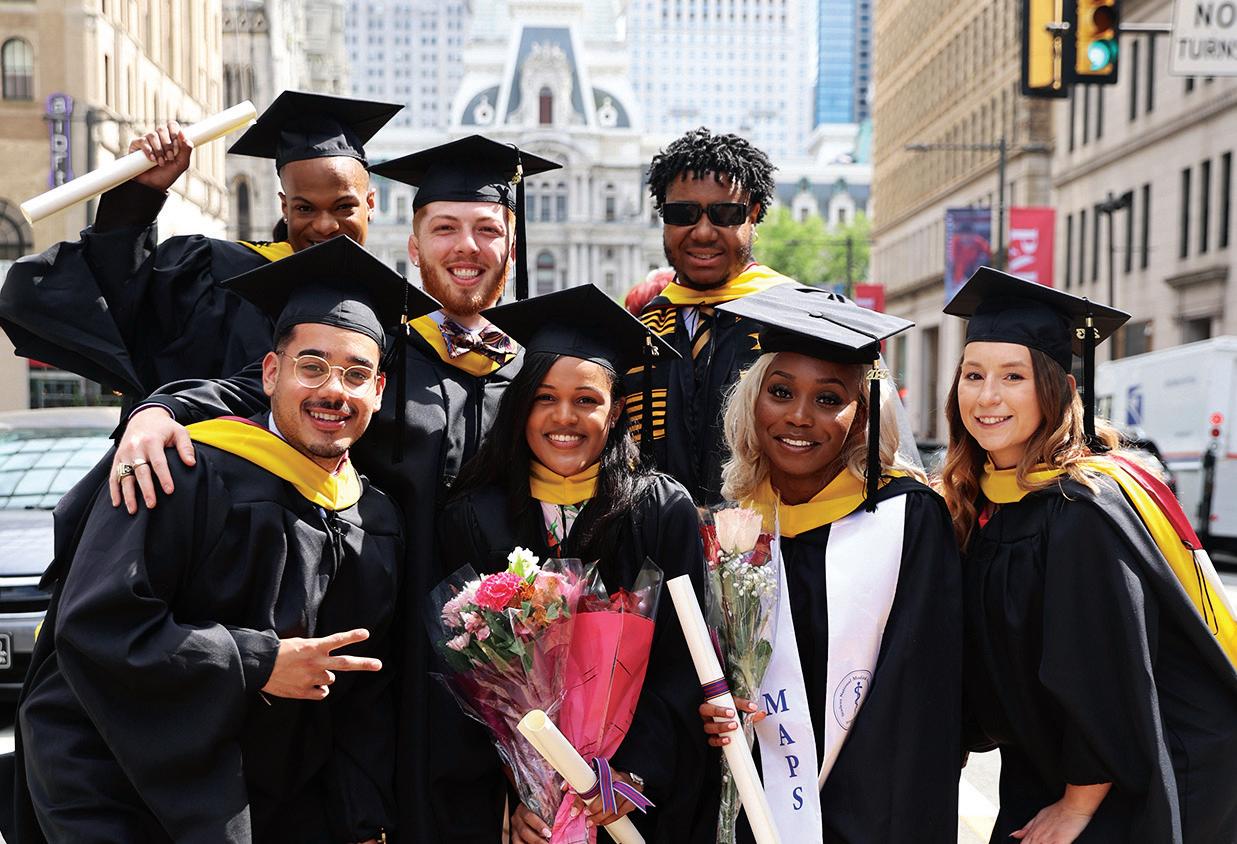
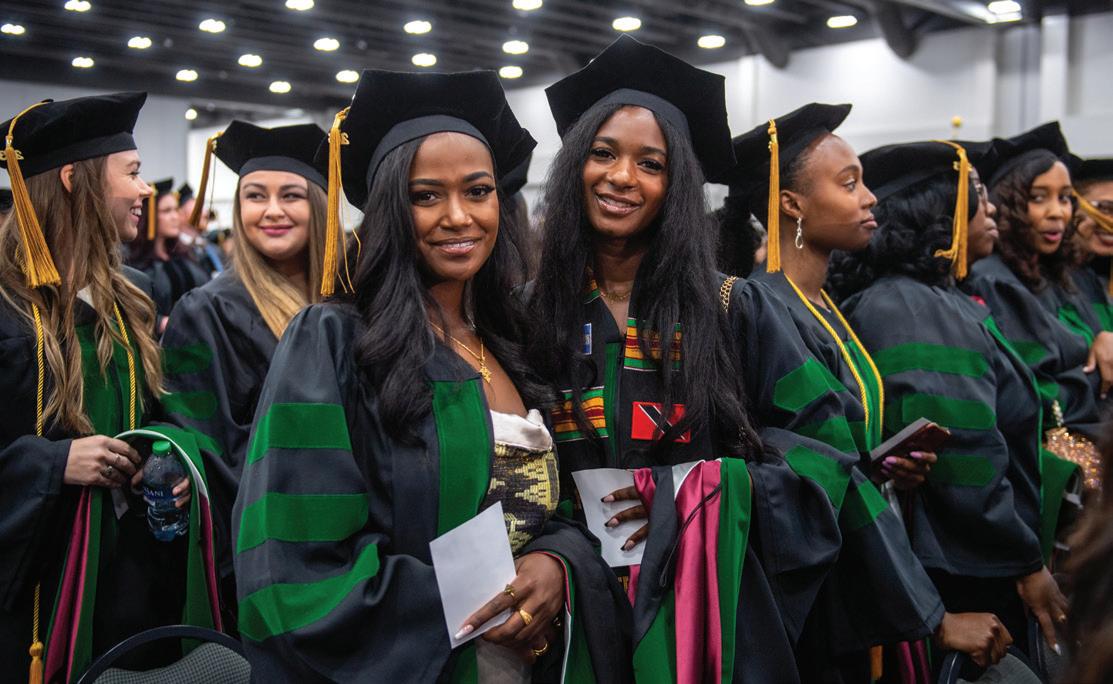
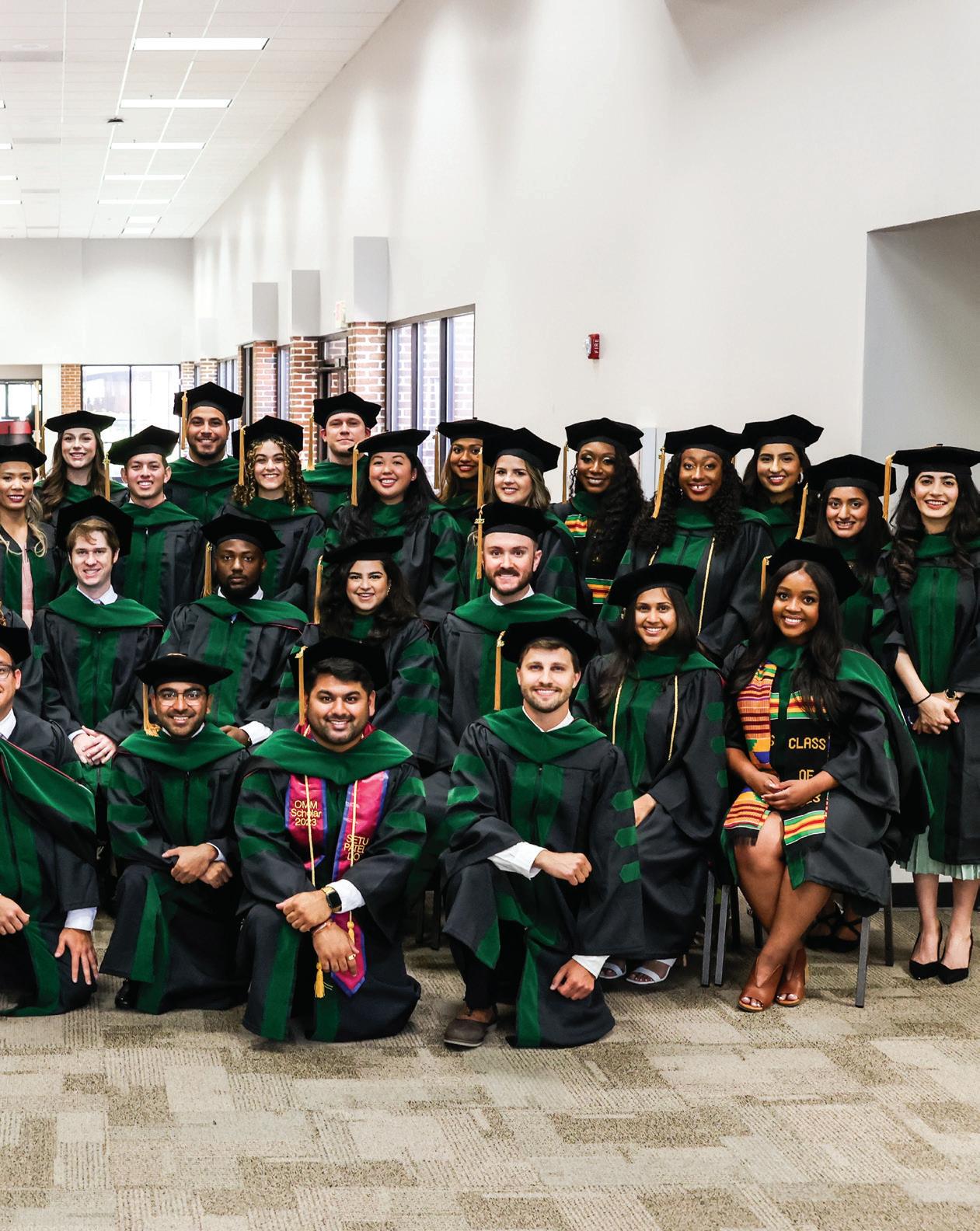
• “Jeter Partners, LLC, a company owned and operated by brothers Jimmy and Dan Jeter, generously donated a portion of a tract of land in the heartland of Colquitt County. And in the town of Moultrie—a place known for its natural beauty and traditions that have endured for generations—our teaching location came to fruition.”
Dr. Feldstein acknowledged College leadership, faculty, staff, researchers and clinical partners who committed wholeheartedly to student academic success. And he congratulated and thanked the class of 2023: “You chose and trusted PCOM South Georgia to be the best place for your education. You believed in and supported our mission, embraced and celebrated our osteopathic tradition and nearly 125-year history of academic excellence. Thank you for being PCOM South Georgia’s first DO graduating class!”
DIGEST 2023 3
Kathleen Bryan, DO ’23, garbed in her Commencement regalia, poses in front of PCOM South Georgia, among the countless longleaf and loblolly pines.
Members of the PCOM South Georgia inaugural DO class
PCOM Georgia held its Commencement on May 23, graduating 283 students.
PCOM graduates gathered on Broad Street, Philadelphia, following Commencement on May 19.
BIDEY APPOINTED DEAN OF PCOM’S OSTEOPATHIC MEDICINE PROGRAM
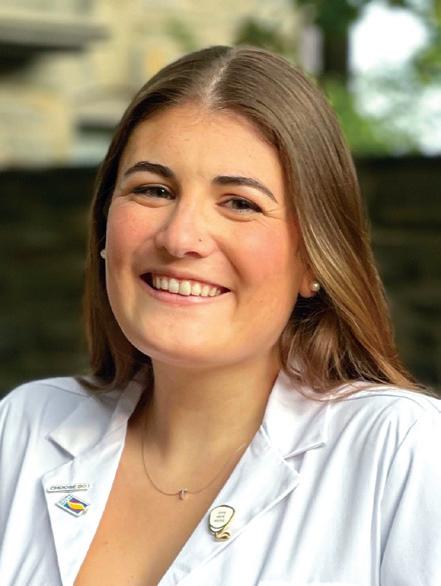
Peter F. Bidey, DO ’08, MSEd, FACOFP, has been named dean of PCOM’s osteopathic medicine program. Dr. Bidey has served on the faculty since 2012. Since 2018, he has acted as vice chair of the Department of Family Medicine, and most recently has been assistant dean of clinical curricular integration. He is a clerkship director and co-course director for a myriad of ambulatory, family medicine and primary care skills courses.
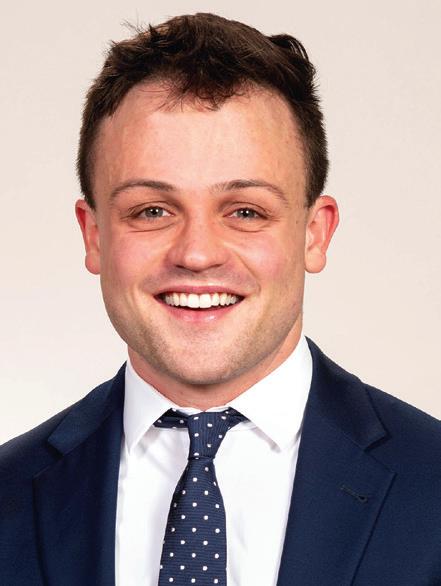

Dr. Bidey replaces Kenneth J. Veit, DO ’76, MBA, FACOFP, who held the post for 30 years—the longest deanship in the College’s history and in osteopathic history—and who now serves as PCOM’s provost and senior vice president of academic affairs.
“Dr. Bidey represents the best of our osteopathic tradition: providing holistic care for the communities he serves while upholding a deep commitment to the highest standards of medical education,” says Dr. Veit. “His passion and pride for PCOM, combined with the relationships he has built across the College, will serve us all at a time of great complexity and promise.”
Dr. Bidey is on staff at Main Line Health –Lankenau Medical Center. He previously served as an attending physician, as director of medical education and as program director of the PCOM/Suburban Community Hospital Family Medicine Residency at Suburban Community Hospital in Norristown.
HAVAS PROGRAM CHALLENGES DO STUDENTS TO DESIGN THEIR OWN RESEARCH
PCOM is the first and only medical school to partner with Havas Health & You (HH&Y), the world’s largest global health network, for an innovative research program. The HH&Y Research Scholars program pairs DO students with HH&Y mentors who guide them through the research process.
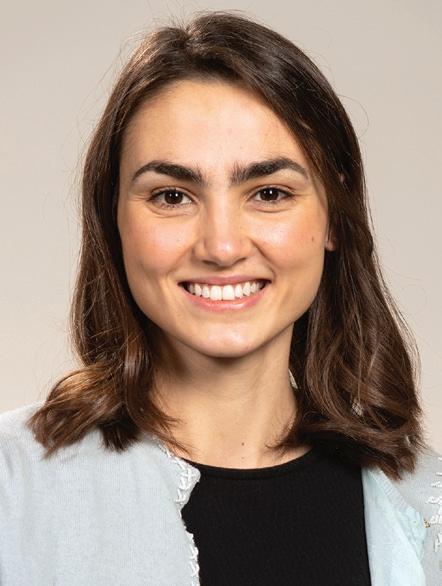
Dr. Bidey serves as president of the Pennsylvania Osteopathic Family Physicians Society. He sits on the Board of Governors and is a fellow of the American College of Osteopathic Family Physicians (ACOFP) and acts as department chair of various ACOFP committees.
The initial cohort of three PCOM students, Tori Abdalla (DO ’25), Rachel Lamy (DO ’24) and Andrew Morgan (DO ’25), submitted research proposals of their own design.
“The opportunity to apply theory to practice is a really important, and often missing, part of graduate training,” said Brad Davidson, PhD, director of medical anthropology at HH&Y and one of the mentors in the program. Upon completion of the program, students will have the opportunity to present their studies both internally and at conferences, in addition to publishing their findings. Mr. Morgan recently presented his research focused on the patient/provider/caregiver relationship for people with Alzheimer’s and other dementias.
PHILADELPHIA COLLEGE OF OSTEOPATHIC MEDICINE 4 UPDATES
Dr. Bidey is a Philadelphia native, PCOM alumnus and physician at Family Medicine at PCOM.
Rachel Lamy (DO ’24) Tori Abdalla (DO ’25) Andrew Morgan (DO ’25)
TACKLING HUNGER DURING THE SUPER BOWL
The Philadelphia Eagles’ 38-35 loss to the Kansas City Chiefs in Super Bowl LVII was a big win in the fight against food insecurity. Jay S. Feldstein, DO ’81, president and chief executive officer, PCOM, accepted a friendly wager from friend and colleague Marc B. Hahn, DO, president and chief executive officer of Kansas City University. The wager, which built camaraderie with a fellow osteopathic medical school, entailed a community fundraiser for student relief, a personal philanthropic donation, a gift of regional food, and the losing president wearing the opposing team’s colors.
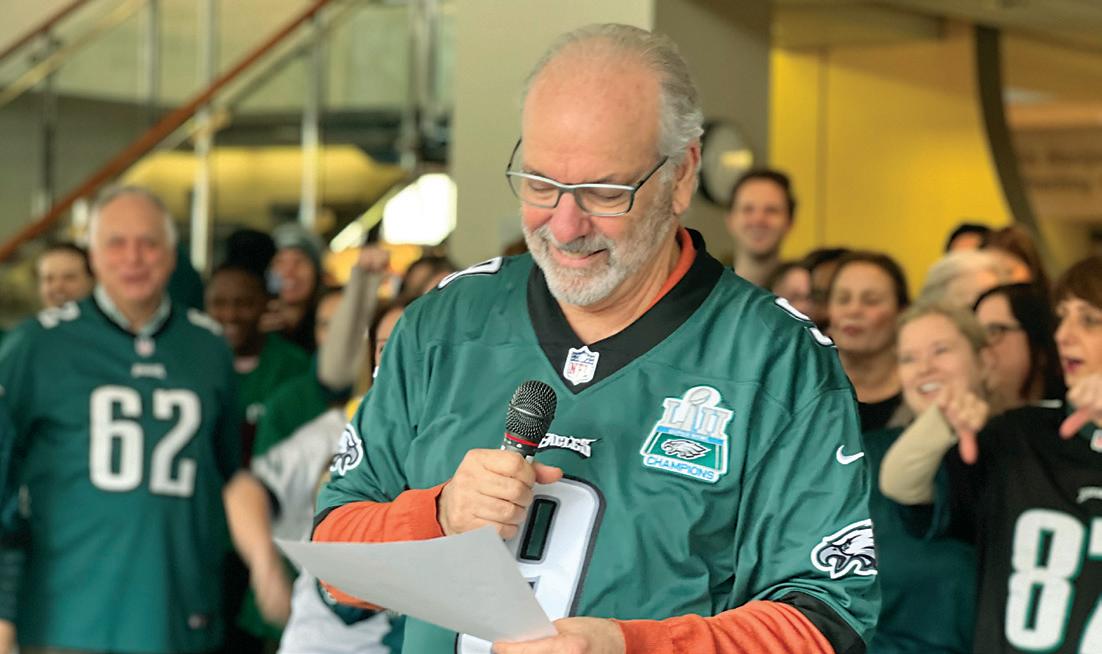
At PCOM, the community donated $5,000 to the PCOM Student Emergency Fund. Donations were earmarked to purchase items for College food pantries.
Dr. Feldstein and the PCOM community accepted the Super Bowl challenge issued by Marc B. Hahn, DO, president and chief executive officer, Kansas City University.
PCOM GEORGIA SUPPORTS GWINNETT SCHOOLS SCIENCE FAIR
As the presenting sponsor of the Gwinnett Regional Science, Engineering + Innovation Fair since 2016, PCOM Georgia sent more than 70 volunteer students, faculty and staff members to participate as judges, healthcare panelists and engagement zone staffers to this year’s science fair. The fair showcased the talents of nearly 1,000 Gwinnett County elementary, middle and high school students who completed more than 700 projects in 22 categories.
Bryan Ginn, chief campus officer, PCOM Georgia, and Andrea Mann, DO, dean of the osteopathic medicine program, PCOM Georgia, congratulated the students at lunch for their winning entries. Wearing PCOM Georgia team jerseys, judges assessed the projects lining the exhibit halls.
An engagement zone featured the PCOM Georgia Simbulance and the PCOM Georgia Mobile Medical Education Lab, along with lifelike mannequins. The School of Pharmacy offered students the opportunity to test their sugar knowledge, and the Department of Biomedical Sciences provided an activity titled “How are bones the buried treasure of the body?” where students dug up parts of the skeleton and pieced them together.
The fair allowed PCOM Georgia students, faculty and staff to engage with Gwinnett County students.

A healthcare panel composed of PCOM Georgia students from the campus’s three doctoral programs educated high school students on healthcare careers. A reception was held on the PCOM Georgia campus to present awards to regional science fair winners, including the six students who went to the Regeneron International Science and Engineering Fair in Dallas, Texas, in May.
2023 MATCH DAY (COLLEGE-WIDE)
100% DO Student Placement
95% Psychology Student Placement
48% Students Placed into Primary Care and Core Specialties
TOP 5 specialties
16 Matched Military Students
data
30 Students Entering a Transitional or Research Year
DIGEST 2023 5
Internal Medicine Family Medicine Emergency Medicine Pediatrics Psychiatry according to
NRMP
MEDICAL MARIJUANA FOR NEUROPATHIC PAIN PILOT STUDY
A pilot study led by Dr. Goldstein suggests that the properties of THC make it effective in treating neuropathic pain.
Results from an ongoing pilot study on the analgesic effects of dronabinol (Marinol™), a synthetic form of delta-9-tetrahydrocannabinol (THC), the main psychoactive ingredient of marijuana, show promise for neuropathic pain. The first group of study participants reported both lower pain scores and reduced use of pain relievers. To date, PCOM researchers have recruited seven patients with peripheral neuropathy to receive dronabinol capsules in gradually increasing doses over a four-week period. They were studied to determine if there were any reductions in pain, and what, if any, adverse reactions occurred, says principal investigator Frederick J. Goldstein, PhD, FCP, professor of clinical pharmacology.
Dronabinol is an FDA-approved (C-III) antiemetic for cancer chemotherapy and for weight loss/anorexia in patients with AIDS. However, use of THC for pain control is off-label.
Study participants have to be between 25 and 75 years old with neuropathic pain for which they had been taking analgesic medications for at least two months. The PCOM Division of Research funded the clinical study, which was free of charge to participants. For the first two weeks of the study, researchers obtained baseline data. Participants completed a pain diary three times a day using a validated pain scale and also listed how many of their usual pain medications they took each day.
In Week 3, Dr. Goldstein and co-investigator Katherine Galluzzi, DO, CMD, FACOFP, professor and chair of the Department
of Geriatric and Palliative Medicine, gave participants 5-mg dronabinol capsules and instructed them to take one capsule at bedtime. At each visit in Weeks 3-6, study subjects could choose to increase their THC dosage by 5 mg up to a maximum 20 mg in Week 6.
Initial results showed decreases in pain scores and analgesic medication usage. Average pain scores prior to treatment were 4.9, but dropped to 2.7 after four weeks of taking dronabinol, reports Dr. Goldstein. He noted that properties of THC make it effective in treating neuropathic pain without adverse effects of opioids and gabapentin.
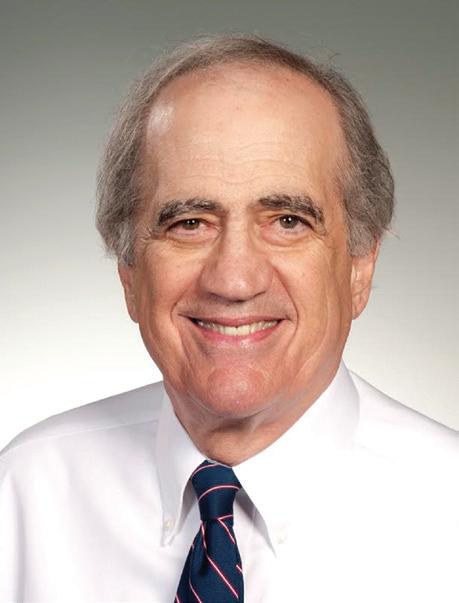
“It is a real clinical effect whenever the average score drops by at least 2 points,” says Dr. Goldstein. “Subjects have reported not only less pain but other benefits as well, including improved sleep and weight loss. This study will add scientific data around THC and pain management.”
If further results from the pilot study are promising, researchers will run a larger controlled clinical study. Dr. Goldstein recently presented preliminary findings to the medical staff of Temple Health – Chestnut Hill Hospital. “We are just beginning to explore at a scientific level the pain-relieving qualities of THC,” says Dr. Goldstein, who serves as the national co-chair of the American Association of Colleges of Osteopathic Medicine’s Opioid Task Force and as an editorial board member of the Journal of Opioid Management.
PCOM alumni and students who have worked with Drs. Goldstein and Galluzzi in their pain research include Gretchen E. Maurer, DO ’17; Madeleine Brown, MS/Biomed ’18, DO ’23; and Nathalia Galvis, MS/Biomed ’21 (DO ’26). Several other first- and second-year medical students are working with the team to expand clinical research on THC and CBD.
FELDSTEIN RECOGNIZED AS ONE OF PENNSYLVANIA’S MOST INFLUENTIAL LEADERS
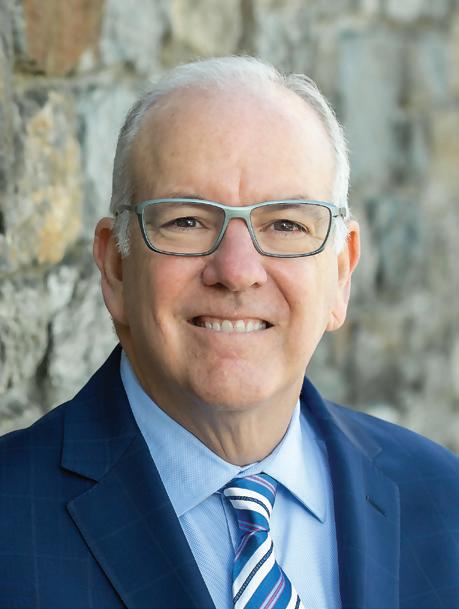
Jay S. Feldstein, DO ’81, president and chief executive officer, PCOM, was named by City & State PA as one of Pennsylvania’s 100 most influential leaders in health care. He was previously recognized on City & State PA’s list of most influential leaders in higher education. This is the second year Dr. Feldstein has made the list as one of the Commonwealth’s top leaders in both categories.
The rankings are developed annually by City & State PA and highlight the state’s key decision-makers and other influential leaders. Dr. Feldstein earned inclusion in each list for his leadership of PCOM through multiple large-scale strategic partnerships designed to expand residency and training opportunities, most notably with Temple Health and Redeemer Health on the acquisition of Chestnut Hill Hospital in January 2023. Dr. Feldstein was also recognized for his commitment to establishing a bold vision for PCOM’s future and his prioritization of diversity, equity and inclusion initiatives across the College.
PHILADELPHIA COLLEGE OF OSTEOPATHIC MEDICINE 6 UPDATES
Jay S. Feldstein, DO ’81, president and chief executive officer, PCOM.
BROTHERS IN MEDICINE PROMOTING HEALTH CARE TO BLACK MEN IN SOUTH GEORGIA
Brothers in Medicine is a new student-led organization at PCOM South Georgia working to educate Black men in the community on health care.
With 17 student members, Brothers in Medicine aims to advance awareness, education and research on social health determinants that impact the Black community, specifically in rural areas. Anthony Dove (DO ’25) leads the organization with the hope of bridging the gap between PCOM South Georgia and the Moultrie community.
“We want to educate our community members about health concerns and how to better take care of themselves,” said Mr. Dove. “If we meet community members where they are, we hope that we can encourage them to see a physician if needed.”
The students recently traveled to a barbershop in Moultrie to host free health screenings, where they introduced themselves to their community and worked to establish trust between medical professionals and community members. Seven of the participants were men with elevated or high blood pressure.
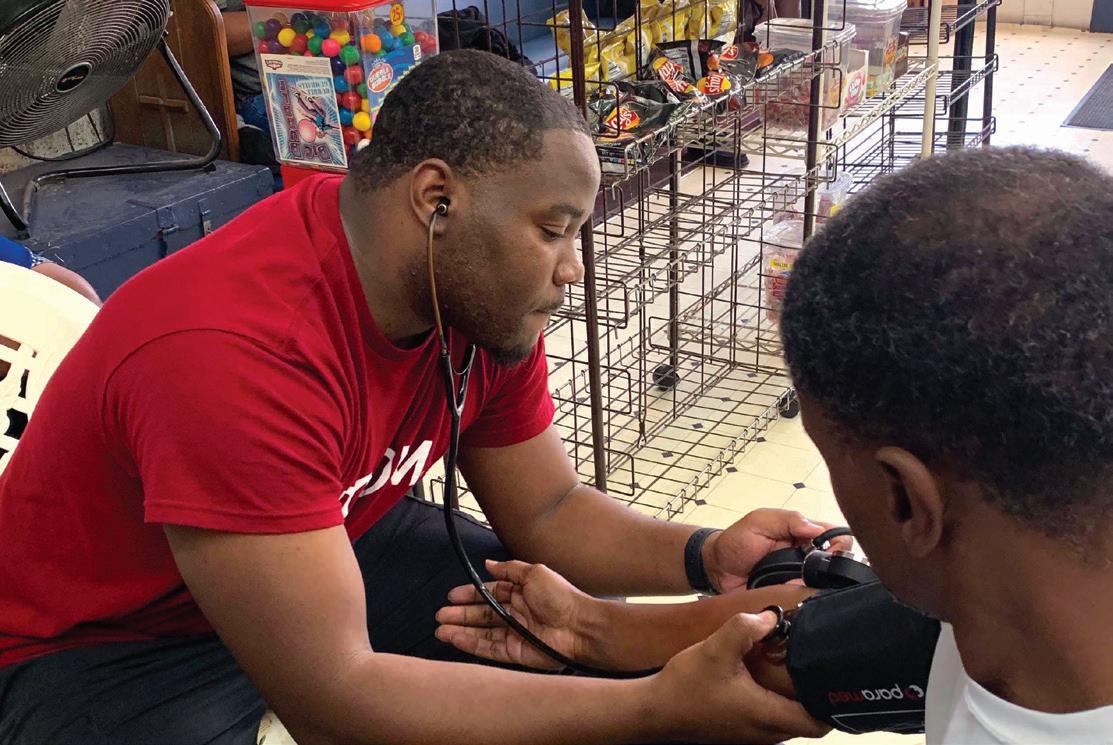
“Some of the participants were unaware of their high blood pressure, so we were able to advise them and educate them on what a safe blood pressure reading is, symptoms of high blood pressure, ways to lower their blood pressure with lifestyle changes, and what could happen if it goes untreated,” said Mr. Dove.
Jennifer Mitchell, EdD, assistant director of diversity and community relations, said that Brothers in Medicine is essential to the community: “It amplifies our current Black male students as future physicians, scholars and positive Black male role models for the rural South Georgia community.”
PCOM’S FIRST PEER-REVIEWED ACADEMIC JOURNAL SET FOR FALL LAUNCH
When the premiere issue of the Journal of Integrated Primary Care (JIPC) publishes in late fall (digitalcommons.pcom.edu/ jipc), it will stand as the only publication to reach the entire spectrum of allied health professionals working within primary care and mark the College’s first online, open-access, peerreviewed scientific journal.
Covering primary care, internal medicine, family medicine, nursing, behavioral health, pharmacy, physical therapy, pediatrics, health education, healthcare administration and social work, JIPC aims to grow the evidence base in support of integrated primary care models.
Each issue will contain four to five cutting-edge observational and experimental studies of integrated care treatment approaches and best practices related to collaborative delivery models, including at least one PCOM student-authored manuscript, say editors-in-chief Robert A. DiTomasso, PhD, ABPP, dean of the School of Professional and Applied Psychology, and Michelle R. Lent, PhD, associate professor, clinical psychology. Drs. DiTomasso and Lent say the launch of JIPC coincides with market factors—the expanding inclusion of allied health services within primary care on the one hand, and the documented cost savings associated with integrating physical and behavioral
health within primary care on the other—that enable primary care providers to more effectively treat the whole patient.
JIPC will highlight the work of PCOM’s integrated primary care researchers as well as collaborative researchers around the world. There are no fees for publishing articles selected for inclusion in the journal, following peer review.
For more news, stories, event photos, videos and podcasts from PCOM, PCOM Georgia and PCOM South Georgia, visit pcom.edu/news.
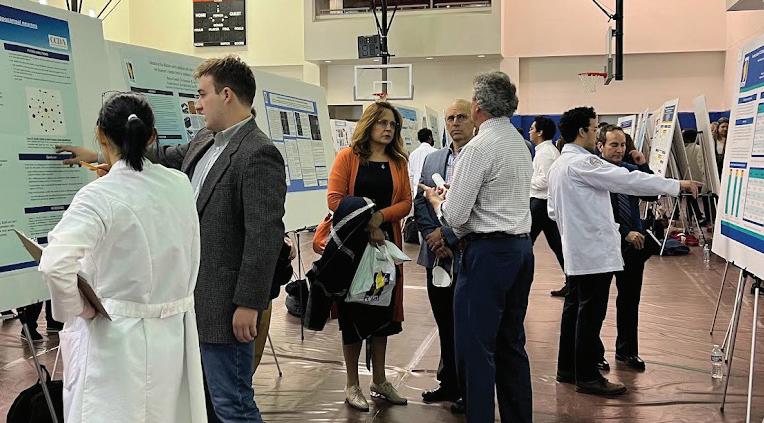
DIGEST 2023 7
Brothers in Medicine hosted health screenings at a barbershop in Moultrie. Photo: Evan Curry (DO ‘26)
An announcement that the JIPC will launch in the fall came during Research Day.
Q&A
ANUPRIYA GROVER-WENK, DO ’13: Turning a Passion for Mentoring into a Career
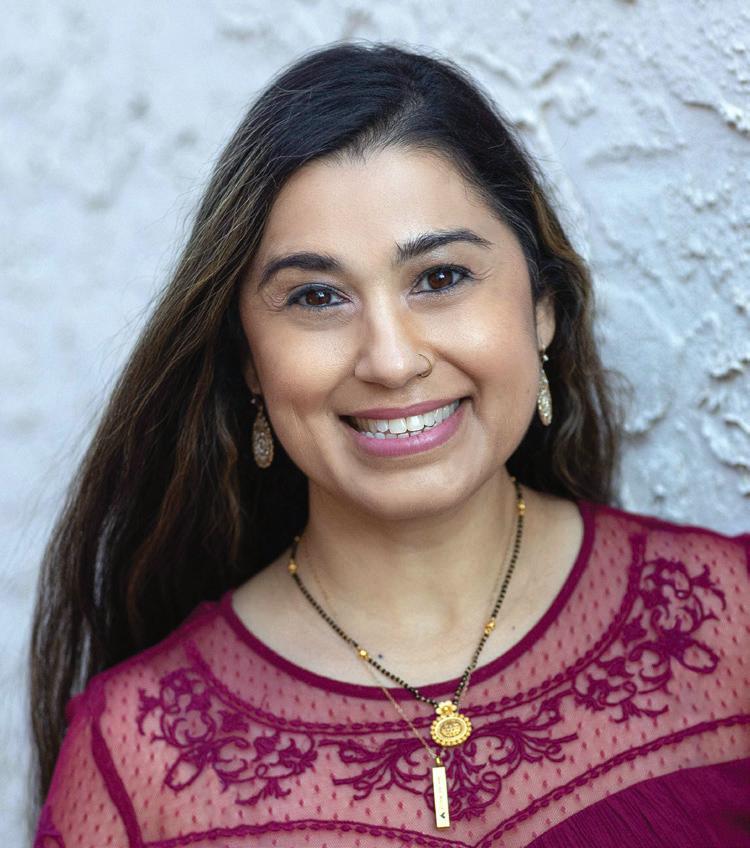 by Meghan McCall
by Meghan McCall
Anupriya Grover-Wenk, DO ’13, has made it her mission to guide the next generation of physicians. After completing a faculty development and medical education fellowship and co-launching a family medicine residency at Tufts University School of Medicine, Dr. Grover-Wenk is using her expertise to assist students through the medical school and residency application processes. In February 2023, she founded Maitri Coaching & Consulting with the goal of helping students submit their strongest applications and increasing diversity in medicine through compassionate mentorship and coaching. In a recent interview, Dr. Grover-Wenk discusses the importance of mentorship.
DURING YOUR FELLOWSHIP, YOU FOCUSED YOUR RESEARCH ON MENTORSHIP, SPECIFICALLY AMONG WOMEN IN MEDICINE. WHAT DID YOU FIND AND HOW HAS THAT KNOWLEDGE INFLUENCED YOU?
Women have certainly come a long way in medicine, but we still have a ways to go. A woman’s career path is riddled with barriers, often related to managing both a career and expectations at home. Women also face so many more barriers to leadership roles in medicine than their male counterparts do. One of the ways the literature suggests that female physicians could advance in their careers is if there were more mentorship opportunities available to support us through the unique challenges we face. I really fell in love with that idea and made it my mission going forward to serve as a mentor. It’s why I dedicate my time to helping PCOM’s American Medical Women’s Association and First-Generation Student Initiative. I was able to get where I am on the shoulders of many mentors before me. Many of my mentors were male and they were excellent, but there is something unique about having a female mentor.
HOW CAN A MENTOR PROVIDE A MEANINGFUL EXPERIENCE TO A STUDENT?
Remember that you were once looking for a guide to help you become the kind of physician you envisioned yourself to be. Be empathetic, really listen to what they want to achieve, and then ask yourself, “Are you the right person who can guide them toward their goals?” If it’s not you, help them find someone who can be that person.
Consistency is also important. Once you’ve connected with a mentee, set goals on what you want to accomplish together, and schedule check-ins to discuss how to reach those goals. Many students become intimidated by the power dynamic formed between a mentee and mentor. The mentee might not feel com-
fortable reaching out when they are struggling. It helps to think about what you can do periodically to help your mentees. Send them a tip that would have helped you earlier in your career, email an article relevant to their interests, or just ask them how they are.
WHAT INSPIRED YOU TO START MAITRI COACHING & COUNSELING?
I was a non-traditional medical student, starting after a career in investment banking. When I was evaluated for my chances at getting into medical school, the guidance I received was purely based on metrics. People looked at my GPA and my MCAT scores and suggested I consider “easier” schools. When I served on medical school admissions and residency match committees, I recognized that many talented students receive poor guidance and could present stronger applications to get into programs on their first attempt. Another issue I began to see was the lack of diversity in medical schools. Underrepresented minorities and those from marginalized communities still make up a small proportion of medical students. Yet our patient population is far more diverse than what we may see in most medical school classes.
WHAT MAKES MAITRI DIFFERENT?
Maitri is a Sanskrit word that has many meanings, but my favorites are “loving-kindness” or “to take an active interest in others.” With Maitri, I approach working with students from a coaching perspective. I help with things like mock interviews and preparing personal statements, but I also focus on mindset work to help improve issues around confidence or imposter syndrome. Medical students and residents have some of the highest rates of depression; I want to provide my clients with tools to be able to face the challenges of the medical training journey in a healthy way.
PHILADELPHIA COLLEGE OF OSTEOPATHIC MEDICINE 8
ADVANCING ALUMNI
ALUMNI GIVE BACK THROUGH PCOM PILLARS VOLUNTEER PROGRAM
Each year, over 1,000 alumni enrich the experiences of current students through the PCOM Pillars Alumni Volunteer Program. Whether sharing their expertise with students through mentoring, precepting and speaking opportunities or advancing the College by serving in the Alumni Association, any alum who devotes their time to PCOM is considered a PCOM Pillars volunteer.
Since its inception in 2017, PCOM Pillars has impacted students in remarkable ways. Alexandra Marasa (DO ’25) connected with several alumnae through PCOM Pillars as she planned the American Women’s Medical Association’s annual networking brunch in Philadelphia. “The alumnae who participate make the event very special. I am proud of how we are able to gather a large group of motivated, passionate women to learn about and from one another,” she says.
PCOM Pillars volunteers have worked with students from all PCOM locations. A recent PCOM South Georgia graduate, Jessica Youssef, DO ’23, worked with an alumna to prepare for her residency interview through the Mock Residency Interview Program. “The program connected me with an alum who ultimately gave me the confidence to share the best version of myself to each program. Beyond the mock interview, she became a shoulder to lean on in the application process. I matched to my top choice, and I look forward to being an alum so I can pass it forward,” she says.
SUPPORT PCOM GEORGIA’S FUTURE
Walk the halls of PCOM Georgia and you’ll find a new display outside the Office of Student Affairs. The Elements of PCOM Georgia’s Future is a periodic table to recognize donors who celebrate and support the campus’s future. Donors can support PCOM Georgia and leave their legacy by securing a personalized tile on Elements of PCOM Georgia’s Future display. With a commitment of $1,000, a donor can select up to four lines of text to appear on the tile. Donors may select from available elements and will receive notification from Institutional Advancement once the tile has been installed. All gifts will be designated to the PCOM Georgia Operations Fund.

PCOM Pillars volunteer Jessica Mitchum, DO ’15, dedicates significant time to students by serving on alumni panels and speaking at events. Dr. Mitchum gives her time to PCOM because of the influence that alumni had on her while she was a student at PCOM Georgia. “PCOM has played a vital role in our journey to get where we are today in our careers. So much of alumni success is because others poured into us at some point, and we should want to pay it forward,” she explains.
Larissa Dominy, DO ’93, volunteers as a preceptor to students in her practice, Panda Bear Pediatrics. For Dr. Dominy, the rewarding aspects of volunteering are what keep her participating each year. “When I can transform an anxious and hesitant young student doctor into a kid-loving physician, then I have done my job! It also warms my heart when a now practicing physician who’s a former student emails me years after being in my office and asks for advice on how to start precepting students themselves. That reaffirms to me that I must be doing something right if I am the reason and the role model for their choice to also teach students in their career,” she says.
Interested in volunteering? Complete a PCOM Pillars Interest Form at alumni.pcom.edu/pillars.
DIGEST 2023 9
The generosity of these donors demonstrates a commitment to the tradition of yesterday and the vision of tomorrow.



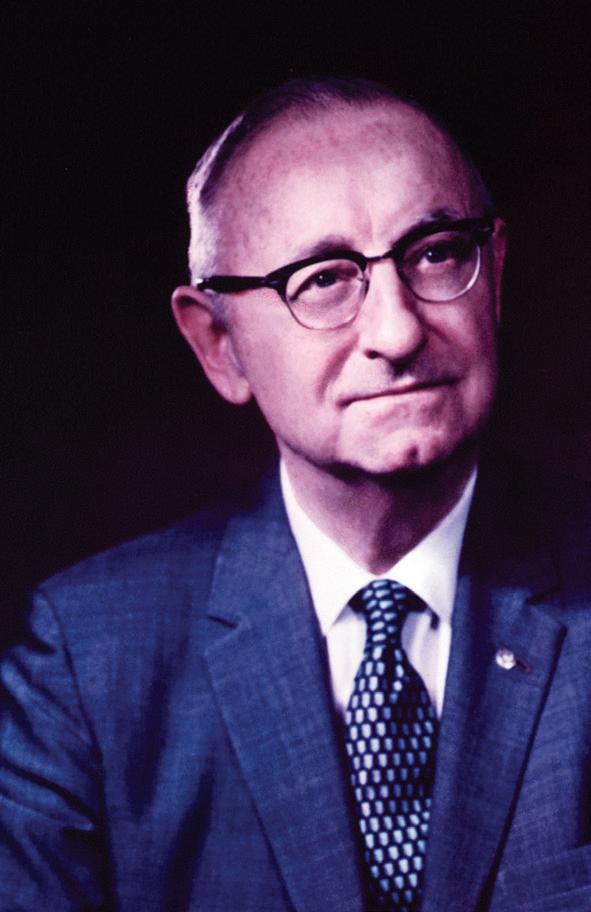



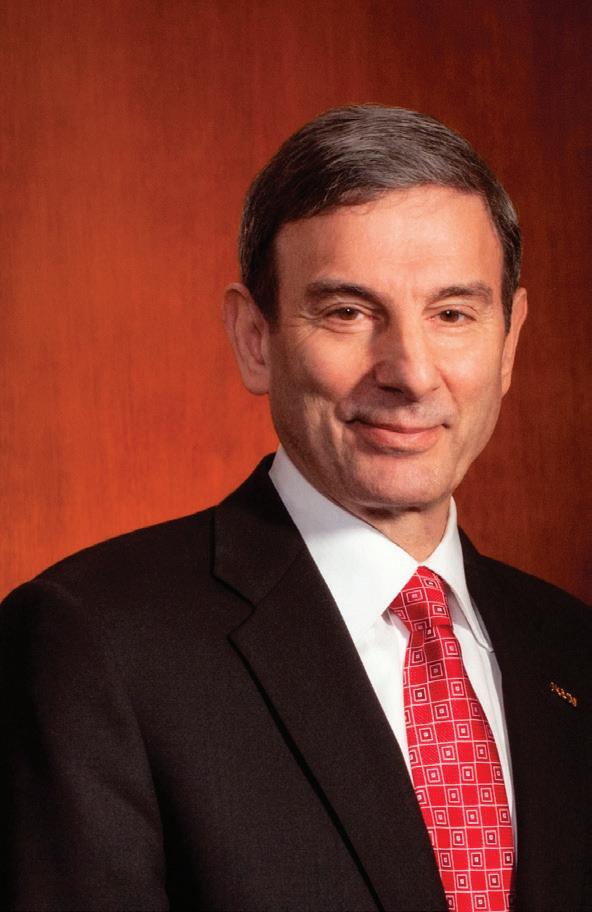

PHILADELPHIA COLLEGE OF OSTEOPATHIC MEDICINE 10 125 YEARS THROUGH 125 STORIES
Information in this article is taken from Cy Peterman’s The Seventy-Fifth Anniversary History of Philadelphia College of Osteopathic Medicine and Carol Benenson Perloff’s history, To Secure Merit: A Century of Philadelphia College of Osteopathic Medicine 1899-1999. PCOM’s Archives, Osteopathic Digest, and yearbooks were also consulted.
AT THE HELM
Portraits of those who have led PCOM during its nearly 125-year history

 by Jennifer Schaffer Leone
by Jennifer Schaffer Leone




Philadelphia College of Osteopathic Medicine has enjoyed the leadership of eight visionary presidents throughout its nearly 125-year history. Their biographical sketches record their accomplishments, as well as significant aspects of College history during each administration.

DIGEST 2023 11
OSCAR JOHN SNYDER, DO
PRESIDENT FROM 1899 TO 1904; TRUSTEE
As the faculty enlarged, disagreements about remuneration ensued. In 1904, faculty wrote an ultimatum in which they threatened to resign unless Drs. Snyder and Pressly stepped down and turned over their stock to the corporation. Both did so, passing leadership of the College into the hands of the board. Yet Dr. Snyder remained close to the leadership of the College throughout his life and continued his passionate campaign for the profession.
In 1905, Dr. Snyder led Pennsylvania’s osteopathic physicians in their bid to the state legislature for a bill to legalize osteopathy in Pennsylvania, an effort that met success in 1909. He founded the Pennsylvania Osteopathic Association and acted as president from 1900 to 1909. He then served as the first chairman of the new Pennsylvania State Board of Osteopathic Examiners from 1909 to 1930. He was president of the Associated Colleges of Osteopathy, president of Osteopathic Clinical Research and president of the American Osteopathic Association.
Oscar John Snyder, DO, began his early career as a teacher and then in federal government service. He was drawn—later in life— to the study of osteopathic medicine when his sister’s sight was restored after osteopathic manipulative treatment.
Dr. Snyder graduated from the Northern Institute of Osteopathy in 1899, by which time he and fellow teaching-student Reverend Mason Wiley Pressly, DO, had formed plans to establish an osteopathic institution in Philadelphia. They legally incorporated the Philadelphia College and Infirmary of Osteopathy on January 24, 1899.
Dr. Snyder served as the first president of the College from 1899 to 1904, and as a trustee until his death in 1947. He taught osteopathic symptomotology, therapeutics and jurisprudence. He also established and managed a private medical practice with Dr. Pressly, the two physicians contributing portions of their earnings to the College.
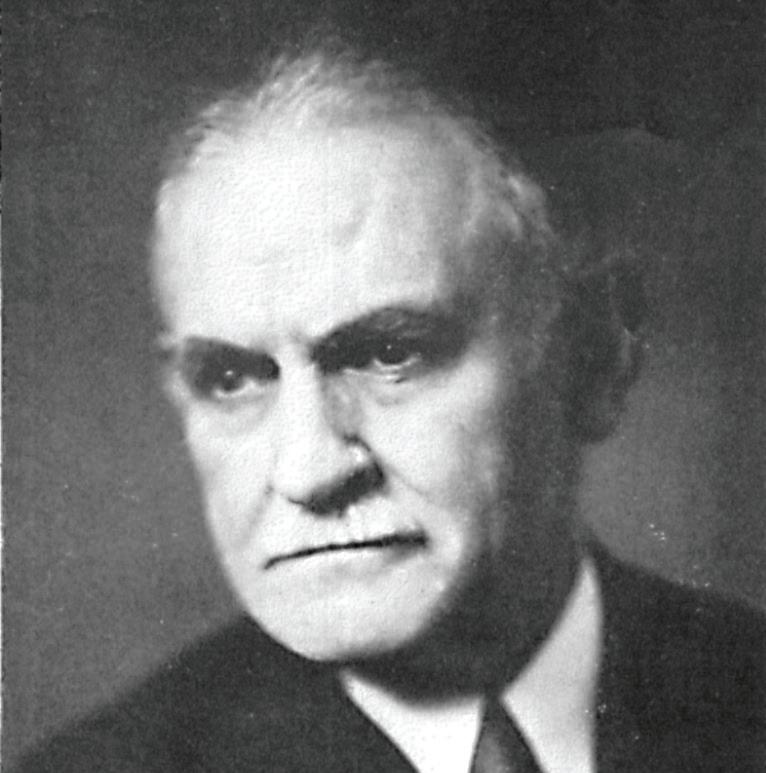
During his tenure as president, Dr. Snyder saw a flourishing of osteopathy in Pennsylvania that triggered a period of growth and expansion at the College: facilities, students, faculty. His fledging College outgrew its first rented space at 21 S. 12th Street and established a first campus at 33rd and Arch Streets. Dr. Snyder awarded the College’s first degrees in 1899 to a transfer student, and to the first class (two students) in 1900.
“Great statesmen have developed in America throughout its short history, yet few will be as vividly remembered as Oscar John Snyder. His dynamic personality, his tenacity and sincerity of purpose, knew no defeat. Many a noted public figure felt the whip of his tongue—he feared no man. To those of us who are left behind, ‘O.J.’ Snyder will be remembered as a figure without comparison. He typified all the properties from which the word virtue was developed. He was in the forefront of battle—his word was his bond—he was courageous but not rash—he was generous but not extravagant. His very carriage and figure marked him as a man carrying the obligations of a great destiny—a leader—a Founder!”
– “A Tribute to the Memory of the Founder” by Otterbein Dressler, DO, dean, Philadelphia College of Osteopathy, July 1947
PHILADELPHIA COLLEGE OF OSTEOPATHIC MEDICINE 12 125 YEARS THROUGH 125 STORIES
WILLIAM E. BRANDT, DO 1921
ACTING PRESIDENT, 1952; PRESIDENT FROM 1953 TO 1957
William E. Brandt, DO 1921, served as the College’s second president following a nearly 50-year period (1904 to 1953) during which the College’s board of chairmen directed the growth of the institution. He was named acting president following the consolidation of the College and hospital into a single corporation, the Philadelphia College of Osteopathy (PCO), in 1952, and fully appointed to the office in 1953.
Dr. Brandt, an alumnus, was a practicing osteopathic physician who turned to sports writing, public relations and broadcasting before culminating his career in higher education. He began his work in journalism with the Philadelphia Record in 1912, and subsequently worked on the staffs of the Bulletin, Evening Ledger and New York Times. In 1934, he succeeded Ford C. Frick as manager of the National League Service Bureau, a post he held for ten years. He would go on to develop and record a radio sports program over the Mutual Broadcasting System. Dr. Brandt’s name would become synonymous with baseball during the period from World War I and into the 1930s.
In 1950, Dr. Brandt joined Muhlenberg College, his undergraduate alma mater, as executive assistant to the president and public relations director—a position that prepared him to serve as executive assistant to the chairman of the Board of Trustees of PCO in 1951. At both educational institutions, he combined his knowledge of public relations with administrative expertise.
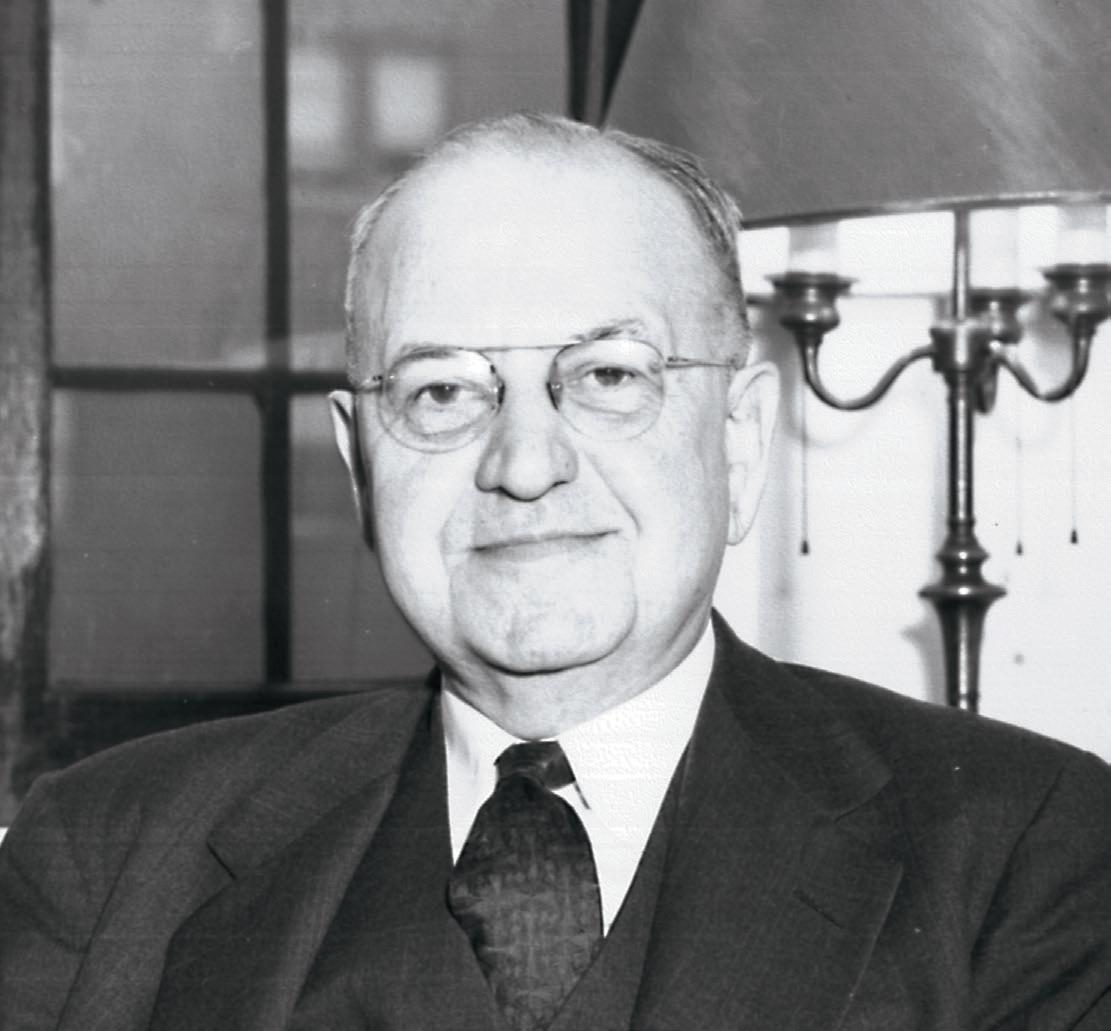
In 1952, Dr. Brandt succeeded Frederick A. Long, DO 1924, as dean at PCO. Sherwood R. Mercer, AB, AM, assumed the position a year later when Dr. Brandt was appointed president. Dr. Brandt served as president for five years, overseeing the College, then located at 48th and Spruce Streets, during a time of facility expansion and historic celebration (75th anniversary). During his tenure, PCO pioneered educational standards within the osteopathic profession and produced physicians who increasingly were viewed to be on par—and in competition—with their allopathic counterparts. Also of note, under Dr. Brandt’s direction, the Osteopathic Digest took its place among publications of the profession.
Upon his retirement from PCO, Dr. Brandt acted as interim editor of the American Osteopathic Association’s publications in Chicago. He passed away in 1963.
“Time Magazine of November 1st was a popular issue all over the world of Osteopathy. Page 77 carried a headline ‘Vision of the Future’ and the text conveyed a scholarly statement of the fundamental principle of Osteopathy, first enunciated by Dr. Still and the basis of osteopathic practice and progress ever since. It says that just last week (!) before a packed audience at the New York Academy of Medicine, Dr. René Jules Dubos suggested a radically new (!) approach: work not on the microbes but on the patient (!!!) …. This ear has absorbed a multitude of comments by D.O.’s all over …”
– Dr. Brandt in a quip for Osteopathic Digest, December 1954
DIGEST 2023 13
FREDERIC H. BARTH, DSC (HON.), LLD (HON.)
PRESIDENT FROM 1957 TO 1974; CHANCELLOR
A businessman, civic leader and government servant, Frederic H. Barth, DSc (Hon.), LLD (Hon.), devoted over a quarter of a century of active leadership to the College. Born in Brooklyn, New York, Dr. Barth was a long-time resident of Philadelphia who graduated from the Philadelphia College of Textiles and Science. He operated rubber and hardware supply companies and held patents for textile equipment.
His interest and belief in osteopathic medicine began when his arthritis was improved through visits to an osteopathic physician. When he was invited in 1948 to serve as a member of the board of directors of the hospital and then as a member of the board of directors of Philadelphia College of Osteopathy, he undertook the service wholeheartedly. By the year’s end, he became chairman of both boards. Dr. Barth was a driving force behind the amalgamation of the two entities into a single Pennsylvania corporation. When the merger was completed in 1953, he served as president of the combined board.
In 1957, Dr. Barth was elected president of the College, a post he held until 1974, directly stepping into the role of chancellor.
Dr. Barth understood the social, professional and financial context in which the College had to develop. He sought to have the College become a Pennsylvania domestic corporation to make it eligible to receive support from the Commonwealth for its educational program.
Under Dr. Barth’s leadership, the Women’s Homeopathic Hospital at 20th and Susquehanna Avenue was purchased for inpatient and outpatient services and became a major teaching facility. He administered the purchase of the Moss estate on City Avenue for a new campus and hospital complex and procured the funds for the construction of the Frederic H. Barth Pavilion Hospital and H. Walter Evans Hall. He originated healthcare outreach clinics in Philadelphia and Sullivan County, and developed the program that resulted in the construction of Overmont House.
Dr. Barth played a significant role in the educational activities of the osteopathic profession. A member of the American Association of Osteopathic Colleges, he served as its president in 1969. He likewise sought out areas of civic service. In 1959, President Eisenhower appointed Dr. Barth acting postmaster of Philadelphia, and in 1971, President Nixon placed him on the United States delegation to the United Nations Commission on Human Rights.
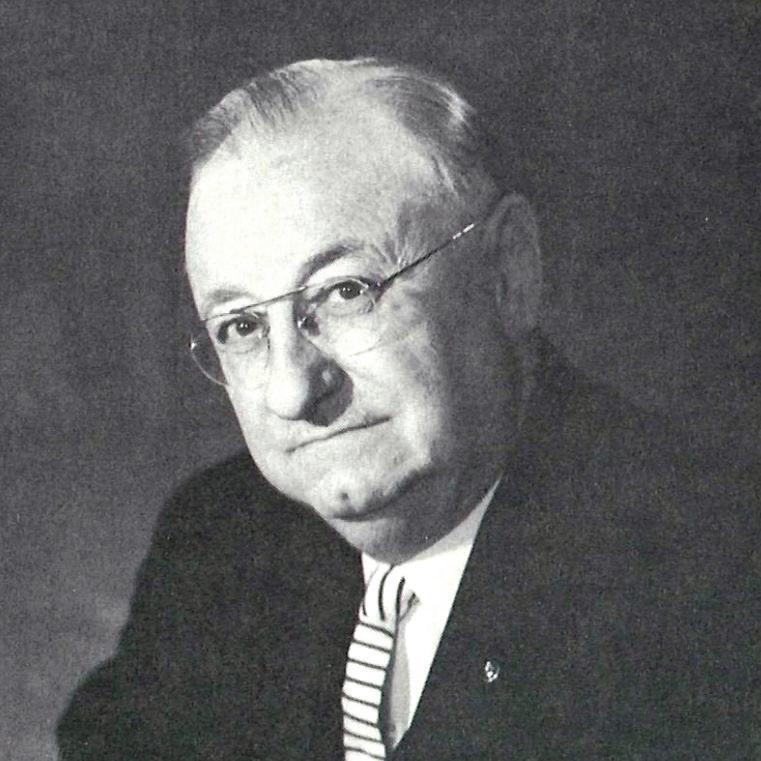
Dr. Barth was the recipient of the O.J. Snyder Memorial Medal in 1970. In 1976, he died in the osteopathic hospital named in his honor, Frederic H. Barth Pavilion.
– Dr. Barth, 1964
PHILADELPHIA COLLEGE OF OSTEOPATHIC MEDICINE 14 125 YEARS THROUGH 125 STORIES
“ We must do everything we can to continue the improvement of health care. We must do so, however, in such a way as to preserve the freedom which has been the basis of the progress of health care to the high level it has attained. … that an integral factor in the freedom of health care is the continuing independence of the osteopathic profession as a separate and distinct school of the healing art.”
Address
THOMAS MIFFLIN ROWLAND, JR., DO (HON.), LLD (HON.), DSC (HON.)
PRESIDENT FROM 1974 TO 1984
Thomas Mifflin Rowland, Jr., DO (Hon.), LLD (Hon.), DSc (Hon.), joined the College staff in 1950, a veteran of World War II with service in the European Theater of Operations with the 442nd Troop Carrier Command of the US Army Air Forces. He was a graduate of Temple University who had done postgraduate studies in public administration. He progressively advanced through administrative posts at the College—assistant registrar, registrar, director of admissions, administrative assistant to the president, vice president for administrative affairs, and executive vice president—before becoming PCOM’s youngest president at age 49, in 1974.
During his tenure as president, Dr. Rowland coordinated the operation of Barth Pavilion, inaugurated a School of Allied Health and nurtured the growth of the PCOM Healthcare Centers. He directed the purchase and renovation of an empty office building next to campus and designated the complex the Osteopathic Medical Center of Philadelphia.
Under Dr. Rowland’s watch, PCOM grew to become the ninth largest medical college in the United States in terms of enrollment and the largest of the 15 osteopathic colleges.
Dr. Rowland was a dedicated educator, a recipient of the Christian R. and Mary F. Lindback Foundation Award for Distinguished Teaching. In 1960, he was appointed to the faculty as instructor in public relations and professional economics, areas of study that emphasized the relationships and responsibilities of the osteopathic physician to the community. In 1972, the department was named the Department of Community Health; Dr. Rowland served as its chairman. As president, he worked tirelessly to support, enrich and expand the faculty through the implementation of a whole-time faculty plan and the recruitment of PhDs.

Dr. Rowland enthusiastically supported alumni activities and athletics. He instituted the position of class chairman, the Annual Giving Campaign and the Founders’ Day Alumni Dinner Dance. During his earlier years at the College, he coached the basketball team to victory; as president, he backed the formation of soccer and rugby clubs.
Dr. Rowland’s impact extended beyond the PCOM community. Devoted to advancing the osteopathic profession as well as osteopathic education, he served on various committees of the American Osteopathic Association and on the board of governors and as president of the American Association of Colleges of Osteopathic Medicine. He also maintained a lifelong interest in politics. He served as leader of Philadelphia’s 11th ward, vice chairman of the GOP City Committee, and delegate to four Republican National Conventions, heading the delegation from Philadelphia in support of Ronald Reagan in 1980.
The last nine months of Dr. Rowland’s life were spent in the hospital he labored to strengthen. He worked to the very end of his life, losing his battle with lung cancer in 1984.
DIGEST 2023 15
“Above all stands your character and your interest in and deep concern for people. All who have known you and worked with you have felt the reassurance of your presence, your support and your advice. You have built an enviable career of your sense of the importance of each person, your loyalty to the osteopathic profession and your dedication to PCOM.”
– Citation for the degree Doctor of Laws, honoris causa, presented to Dr. Rowland, 1973
J. PETER TILLEY, DO, MSE (RAD.), FAOCR
PRESIDENT FROM 1984 TO 1990
J. Peter Tilley, DO, MSe (Rad.), FAOCR, a radiologist with dual certification in nuclear medicine, joined the College’s faculty in 1966 and served as vice chairman of radiology and director of nuclear medicine. He was vice president of operational affairs and chairman of the professional staff prior to his election as the fifth president of PCOM in 1984.
Following the death of Dr. Rowland, who had been a stalwart figure at PCOM for more than three decades, Dr. Tilley attracted the trust and respect of the board, staff and faculty while providing interim leadership. He had strong osteopathic roots; his father, R. MacFarlane Tilley, DO 1923, was a PCOM alumnus. Dr. Tilley himself was a graduate of Kirksville College of Osteopathic Medicine who fulfilled his internship and residency training at PCOM. He understood the importance of a DO administrator who would be able to stabilize the political environment.
Dr. Tilley’s presidency also came during a time when PCOM experienced a historic fiscal deficit. The period marked the emergence of managed health care; reimbursement policies changed the face of medicine and impacted the demand for medical education. At PCOM, an academic medical center, the situation was compounded. Already battling tuition increases, the College was forced to help finance Barth Pavilion through a period of low census and management problems.
fundamental reward of a caring person-to-person relationship persists. We are in a time of fundamental change; the long-term under-supply of physicians has been replaced by a perceived physician over-supply. This, in conjunction with attempts to decrease the price of medical care, has resulted in competition, regulation, and a general preoccupation with the business of medicine. This time of change means jeopardy and opportunity. . . . Our future can be secured by the earned commitment of our graduates, faculty, hospital staffs and organizational leaders. You have my commitment. We must stand together.”
Dr. Tilley and the PCOM Corporation envisioned and implemented a corporate reorganization to diversify the financial responsibility of the institution. This provided a means to include more members of the professional staff in the governance of the various corporate entities. Unfortunately, the reorganization did not effectively correct the problems of the hospital.
While struggling to reestablish firm financial footing, Dr. Tilley looked at new ventures to grow the institution. In 1989, he proposed selling Barth Pavilion. For the staff, faculty and alumni whose lives had revolved around the osteopathic hospital, selling the facility was not a viable option. Factions developed over this issue, which ultimately contributed to Dr. Tilley’s resignation in 1990. Members of the board resigned at that time as well.
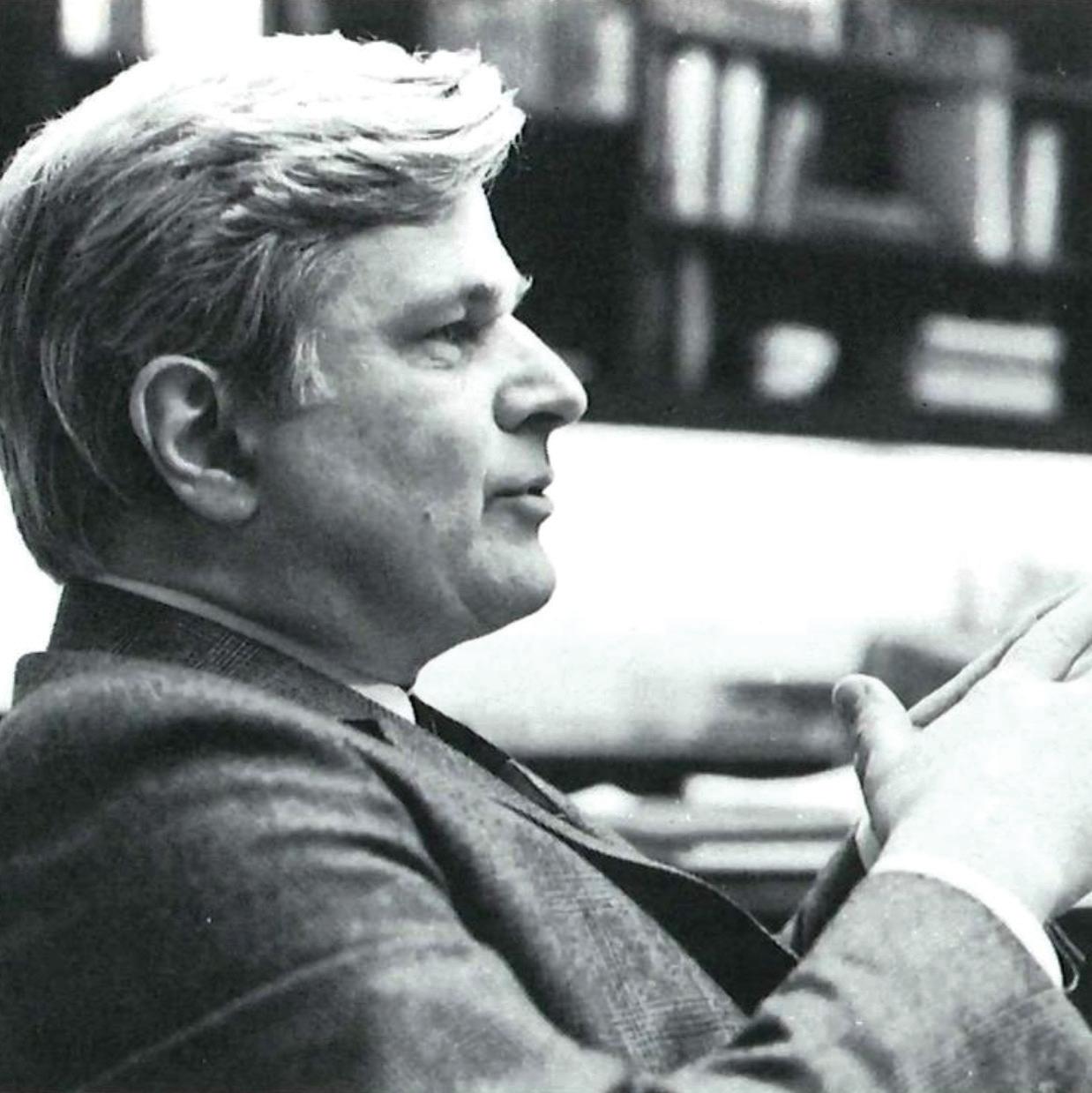
PHILADELPHIA COLLEGE OF OSTEOPATHIC MEDICINE 16 125 YEARS THROUGH 125 STORIES
“The environment of medical practice may change, but the
– Dr. Tilley, Commencement and Inauguration, June 1985
LEONARD H. FINKELSTEIN, DO ’59, MSC ’63, FACOS
ACTING PRESIDENT AND CHAIRMAN OF THE BOARD 1990; PRESIDENT FROM 1990 TO 2000; CHANCELLOR; PROFESSOR EMERITUS
A former pharmacist, researcher and clinician in the field of urologic surgery, Leonard H. Finkelstein, DO ’59, MSc ’63, FACOS, joined the PCOM faculty in 1970. In 1973, he was named chairman of the Division of Urology and, in this capacity, advanced the College’s urologic specialty and residency program.

In 1989, Dr. Finkelstein led a group of clinical faculty opposed to the sale of Barth Pavilion. He became the College’s acting president and chairman of the board upon the resignation of Dr. Tilley and the Honorable J. Sydney Hoffman [board chairman] in 1990. The acting portion of his title was soon dropped, and he was appointed the College’s sixth president and chief executive officer. Herbert Lotman, LLD (Hon.), assumed the position of chairman of the board.
As president, Dr. Finkelstein would preside over a decade of transformative progress at PCOM, ensuring the efficacy of the College’s mission and restoring stability to the institution.
Dr. Finkelstein was responsible for the purchase of Metropolitan Hospital’s Parkview Division (1990), and the ultimate sale of both Parkview and Barth Pavilion to Graduate Health System in 1993. A strike by District 1199C of the National Union of Hospital and Health Care Employees, the loss of the College’s state subsidy, and the hemorrhaging cost of reimbursement policies made many realize
the hospital sales were the only way to save the College. Through these transactions, Dr. Finkelstein orchestrated a financial turnaround for the College. Within the fiscal year, the College’s financial status moved from a $6 million deficit to a $4 million surplus.
Throughout his tenure, Dr. Finkelstein enhanced the College’s curriculum, expanded the graduate medical education program, and oversaw an ambitious master facilities plan that resulted in a modern campus. He instituted an administrative team, including Kenneth J. Veit, DO ’76, MBA, dean, and Samuel H. Steinberg, executive vice president. Furthermore, he rebuilt the College’s financial foundation through a $25 million capital campaign.
He was a staunch advocate for the osteopathic profession, its teaching and growth. He served as president of the American Osteopathic Foundation Board of Directors and the Pennsylvania Osteopathic Medical Association. He was a recipient of the Christian R. and Mary F. Lindback Award for Distinguished Teaching, the Distinguished Osteopathic Surgeon Award from the American College of Osteopathic Surgeons and a Presidential Citation from the American Osteopathic Association for his commitment to unity within the osteopathic profession. He was awarded both the PCOM Alumni Association Certificate of Honor and the O.J. Snyder Memorial Medal.
In 2000, Dr. Finkelstein stepped down as president to serve as chancellor, a post he held until his death in 2019. He retired from his academic posts in 2014 and was named professor emeritus in 2015.
DIGEST 2023 17
“Well, I guess my strength would be that I am about as focused as anybody can be. I have had a vision and a mission, and I’ve just stayed with it. And I think that if I had not done anything [else], I’ve established myself as credible, and when I say something, that is the way it is. And that whether people like me or don’t like me, I hope that I’m looked at as being fair. I have tried to do what was in the best interest of the College, the people that work for the College who are part of the College, and those that have gone through the College. Because what they are and what the College is, is what I am.”
– Dr. Finkelstein in a 1996 interview for PCOM’s Oral History Project
MATTHEW SCHURE, PHD
PRESIDENT FROM 2000 TO 2014
“With the strong foundation forged by our history, and an unlimited future fueled by our energy and resolve, this institution will make an ever greater difference in the lives of those it touches. May we continue to experience great joy as we do our work, and may we gather to reflect upon the outcomes of our efforts and collectively exclaim: ‘How filled with awe is this place.’ ”
– Dr. Schure, Inauguration, January 25, 2002
Matthew Schure, PhD, was installed as the College’s seventh president and chief executive officer in 2000. Prior to his post at PCOM, he spent 30 years at New York Institute of Technology (NYIT), an institution founded by his father. At NYIT, Dr. Schure served as professor of behavioral sciences, associate dean for academic assessment and chair of the department of community medicine; he was appointed president and chief executive officer in 1991.
Among the major strategic priorities of Dr. Schure’s tenure at PCOM was growth of the College, both in scope and size. He directed the addition of graduate programs in organizational development and leadership, forensic medicine, and school psychology, and he enlarged clinical teaching fellowships. In 2001, Dr. Schure oversaw the purchase of the former City Avenue Hospital. The building was razed, and a parcel of the land was sold. Investment income from the sale was earmarked for need-based student scholarships. In 2005, he led the opening of PCOM Georgia (Suwanee, Georgia), the College’s first branch campus and first reach into the South.
During Dr. Schure’s tenure, the Center for Chronic Disorders of Aging was created to enhance basic science and clinical research. Competency-based assessment as a method to train students was propelled by the opening of the College’s first clinical learning and assessment center.
In collaboration with the PCOM Board of Trustees, Dr. Schure aligned strategic objectives with business plans. He was able to suppress the rate of tuition increases for more than a decade. At the same time, he substantially built the College’s endowment during two recessionary periods. The Fund for PCOM grew to a reliable $1 million unrestricted annual fund program. Dr. Schure was a proponent of osteopathic education. He served as chairman of the American Osteopathic Association Council on Pre-doctoral Education and chairman of the board of governors of the American Association of Colleges of Osteopathic Medicine.
A native of Queens, New York, Dr. Schure held a bachelor’s degree from Queens College and a doctoral degree, a master of philosophy degree, and a master of arts degree in educational psychology from Columbia University. He died in 2023.

PHILADELPHIA COLLEGE OF OSTEOPATHIC MEDICINE 18 125 YEARS THROUGH 125 STORIES
JAY S. FELDSTEIN, DO ’81
PRESIDENT FROM 2014 TO PRESENT
Jay S. Feldstein, DO ’81, was appointed the eighth president and chief executive officer of the College in 2014, bringing to the post leadership acumen in healthcare management and patient care. Board-certified in emergency medicine and occupational medicine and a fellow of the American College of Preventive Medicine, Dr. Feldstein previously served as president of the Northern Division, Pennsylvania Managed Care Plans, and as corporate chief medical officer/senior vice president and chief medical officer/senior vice president, medical affairs, at AmeriHealth Caritas. He also held executive positions at Aetna, Concentra Health Center, Occupational Health Resources, Inc., and Spectracare Occupational Health Services.
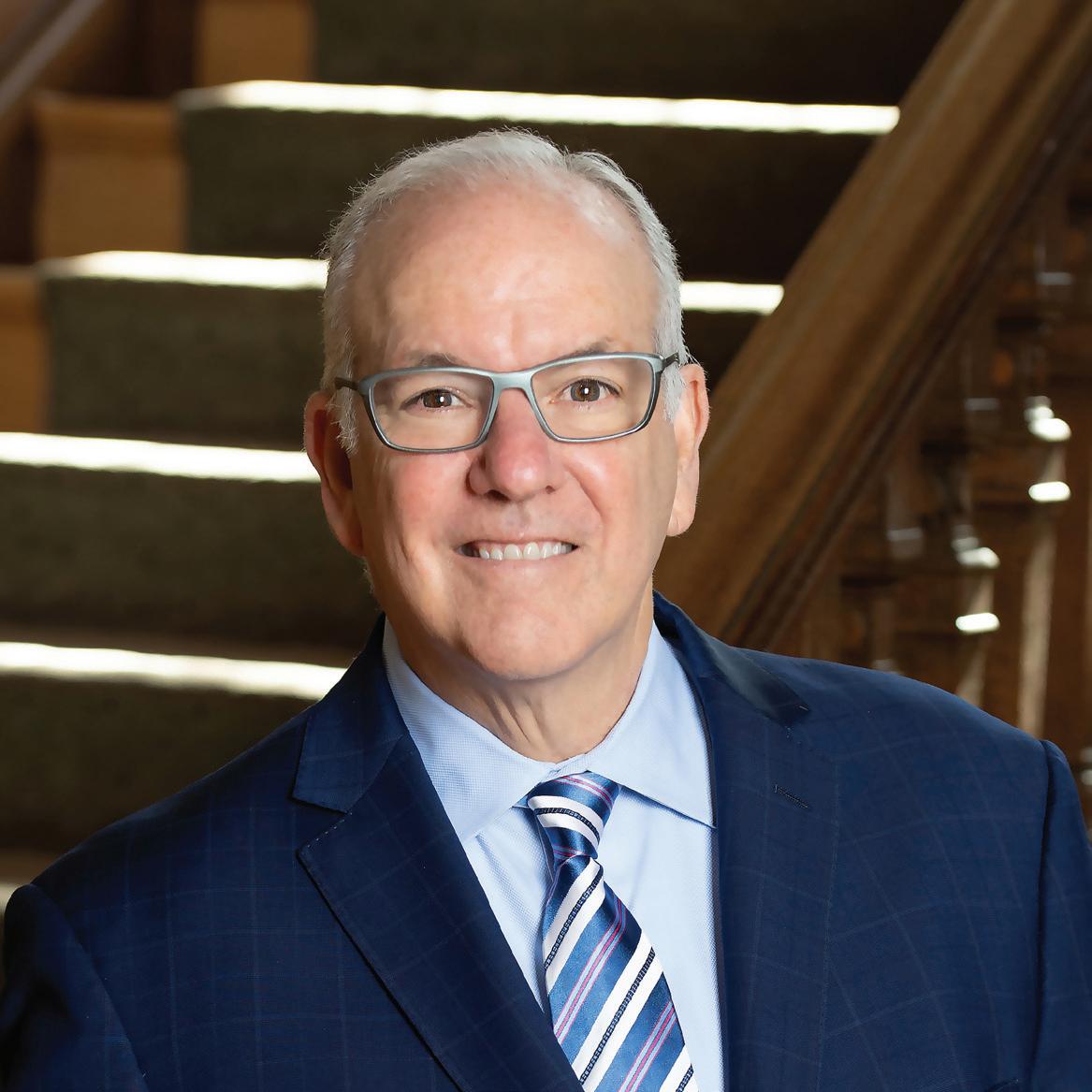
In his first year at PCOM, Dr. Feldstein initiated a strategic planning process for the institution, resulting in PCOM 2020: A Shared Vision; a second plan, PCOM 2025: Path to Greater Excellence, followed in course. He also launched the PCOM Primary Care Innovation Fund to stimulate innovation and entrepreneurship in health care.
Beginning in 2016, Dr. Feldstein steered the establishment of PCOM South Georgia, extending the College’s commitment to the state of Georgia. The rural teaching location opened in 2019.
Dr. Feldstein navigated the College through the unprecedented COVID-19 pandemic and the ensuing recession and affirmed institutional commitment to the advancement of health equity. In 2020, he created the President’s Council on Equity, Inclusion and Justice, and in 2021, he formed the Community Wellness Initiative. Dr. Feldstein continues to lend his experience to programs that enhance pathway opportunities for academically diverse learners, diversify the healthcare and scientific workforce, and foster equity in healthcare access and health outcomes. For his work, Dr. Feldstein was awarded the CEO Leadership Award from the Pennsylvania Diversity Council, and the inaugural Diversity, Equity, and Inclusion Unification Award from the American Osteopathic Association. He was also appointed by Pennsylvania Governor Josh Shapiro and Lieutenant Governor Austin Davis to serve on the administration’s Transition Advisory Committee on Health and Human Services, advising on education and health care in underserved areas across of the Commonwealth.
Throughout Dr. Feldstein’s tenure, the College has expanded academic degree programs and conceived a Medical Education Center of Excellence. Strategic partnerships formed with Chestnut Hill Hospital (acquired in 2023 through a College Alliance with Temple Health and Redeemer Health), St. Christopher’s Hospital for Children, Bayhealth and other healthcare facilities have enlarged clinical training opportunities for DO, physician assistant studies and pharmacy students. Student housing has been added through the conversion of Overmont House, now Meta Christy House. The renovation and expansion of Family Medicine at PCOM, and addition of vybe urgent care, have bolstered the patient service capacity. Research at the College has also been fortified; a long-term research agreement with Organic Remedies sanctions the study of medical cannabis.
DIGEST 2023 19
“As a community of osteopathic physicians, allied health professionals and behavioral scientists, we continue to advocate for and work toward the betterment of public health, in part, by addressing the inequity and social disparities that we see mirrored in our health system. ”
– Dr. Feldstein, Message to the Community, 2021
PRESIDENT MATTHEW SCHURE, P h D
Matthew Schure, PhD, who served as PCOM’s seventh president and chief executive officer, will be remembered as one of the most impactful leaders in the College’s distinguished history.
by Jennifer Schaffer Leone
Matthew Schure, PhD, who served as PCOM’s seventh president and chief executive officer from 2000 to 2014, died at home on February 1, 2023. He is survived by his wife, Judy, two children and five grandchildren.
During his 13-year tenure, Dr. Schure guided Philadelphia College of Osteopathic Medicine with steadfastness and vision. His leadership was transformational, his accomplishments a legacy. He was a teacher-scholar in both word and action, a man of extraordinary intelligence, of integrity and principle.
Dr. Schure’s historic contributions advanced PCOM’s instructional, research and service missions. He directed the growth of the College’s graduate programs and enlarged clinical teaching fellowships. He supported simulation-based education and assessment within the curricula. And through the creation of the Center for Chronic Disorders of Aging, he helped enhance basic science and clinical research.
In 2001, Dr. Schure oversaw the purchase of the former City Avenue Hospital. The building was razed, and a parcel of the
land was sold. Investment income from the sale supported need-based student scholarships. In 2005, he led the opening of PCOM Georgia, the College’s first branch campus and earliest reach into the South.
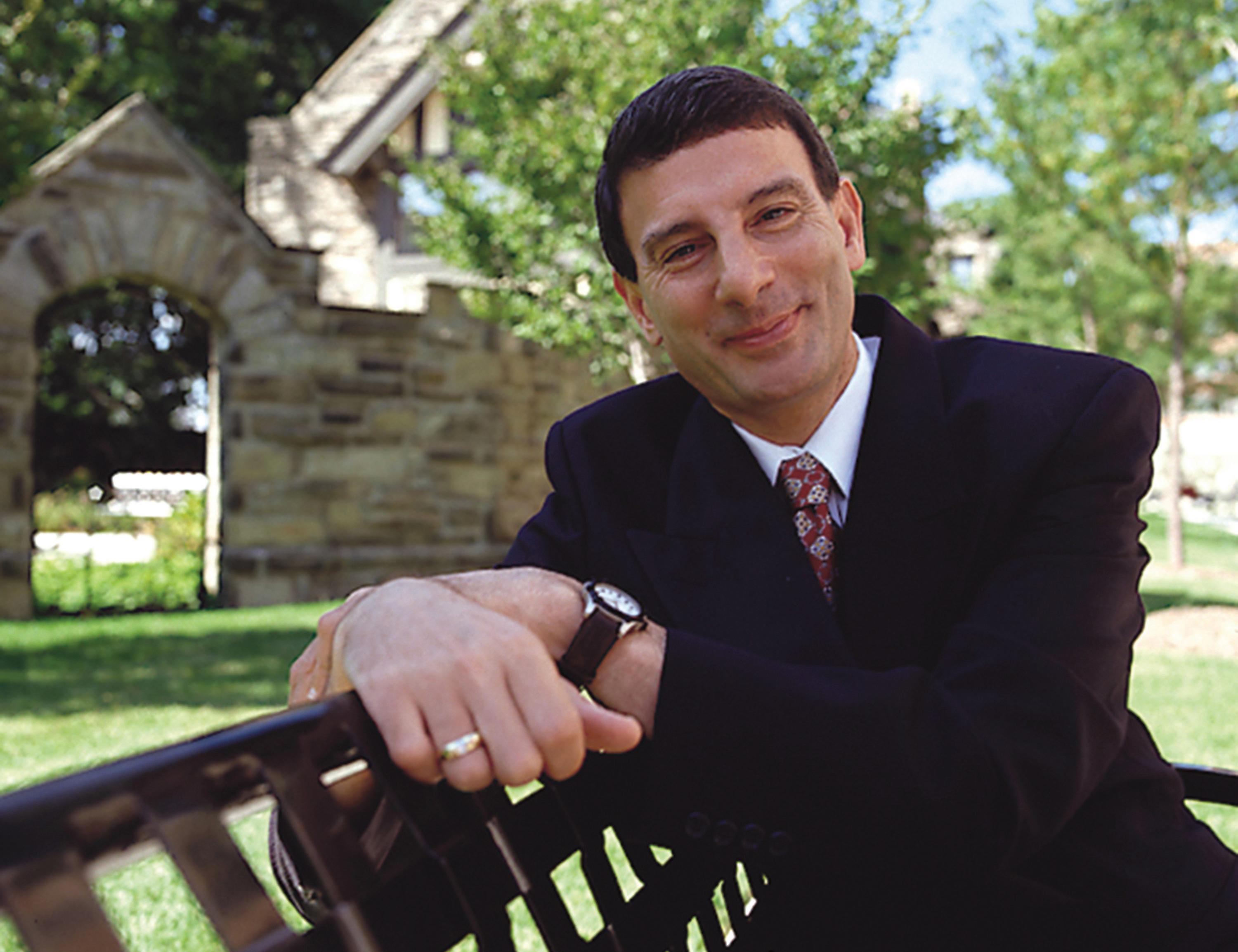
In collaboration with the PCOM Board of Trustees, Dr. Schure aligned strategic objectives with business plans. He suppressed the rate of tuition increases for more than a decade. At the same time, he substantially built the College’s endowment during two recessionary periods [see biography on page 18].
Dr. Schure was genuinely proud of the PCOM community and found great strength in it. He referred to PCOM as a family, one recognized for academic excellence and collegiality. He often said that, “the sense of community [at the College] is incomparable, the product of a multitude of caring acts.”
In words and photographs amassed by Digest Magazine, Dr. Schure’s beloved community recalls his legacy. May his memory be—for all of us—a blessing.
PHILADELPHIA COLLEGE OF OSTEOPATHIC MEDICINE 20 IN MEMORIAM
“Matt gave full measure of heart and soul to PCOM. He was among our College’s greatest leaders. He was driven by a steady moral compass and a resolute belief in the power of education to improve lives.”
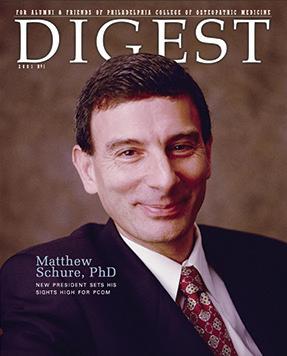 – Jay S. Feldstein, DO ’81, president and chief executive officer
– Jay S. Feldstein, DO ’81, president and chief executive officer
“Throughout its history, our College has been most fortunate to have the right president at the right time. Each president has brought his unique skill set to the school for growth and expansion and at times, survival. Matt was, undoubtedly, the right president for PCOM for 13 years he served. He brought experience and intelligence to navigate the College into its current multi-campus, multi-program environment, positioning us well for the next decade of future challenges and growth.”
“President Schure came from New York with a fresh strategic vision. He expanded the College’s graduate program offerings and brought PCOM Georgia to fruition. But for me, it was President Schure’s demeanor that had the greatest impact. He graciously opened his door and heart to the community; he had such a wonderful way about him, a profound goodness. He lived his beliefs and convictions. He was genuinely interested in everyone and everything. He instilled a culture of family.”
– Lavinia Lafferty, retired executive assistant to the president and secretary to the Board of Trustees
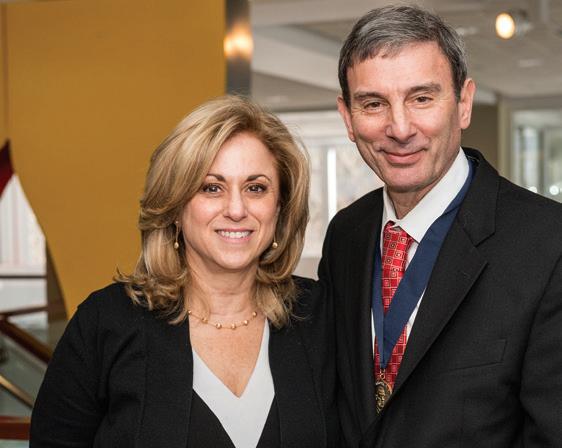
“I introduced President Schure to PCOM Georgia’s DO class in 2005, and my words are as true today as they were almost a decade ago: He is a man of importance, but he is also a man of modesty. He is a man of faith, who understands practical aspects of interpersonal relationships. He is a man who believes in the sacredness of life, who acknowledges the value of a life well lived. He is a man of vision, who has an unclouded view of the potential for osteopathic, pharmacy and biomedical sciences education in the South. He is a considerate man, who values the opinions of others. He is a family man, who glows when considering the accomplishments of family.”
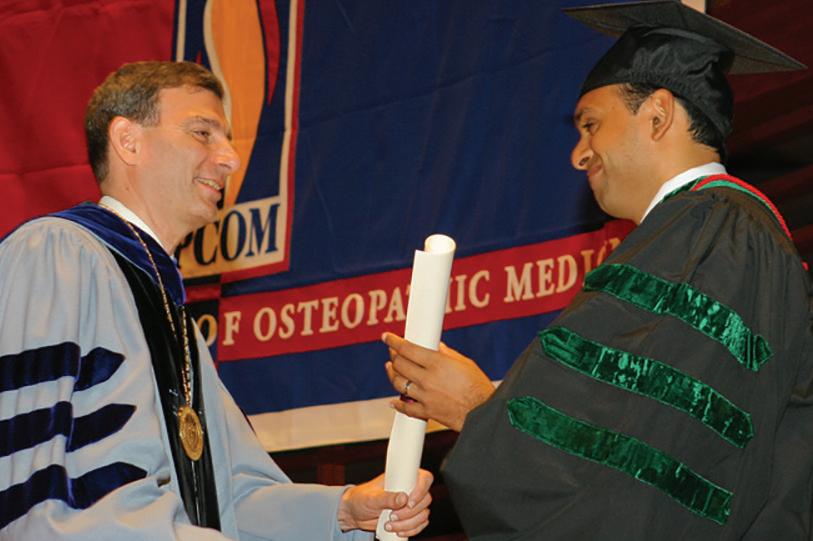
– John Fleischmann, former campus officer, PCOM Georgia [words offered on the occasion of Dr. Schure’s retirement]
TRIBUTE GIFTS
The Matthew Schure, PhD, Endowed Scholarship was established in honor of Dr. Schure. Checks may be made payable to the PCOM Foundation, attention Institutional Advancement, 4180 City Avenue, Philadelphia, Pennsylvania 19131 or online at pcom.edu/giving.
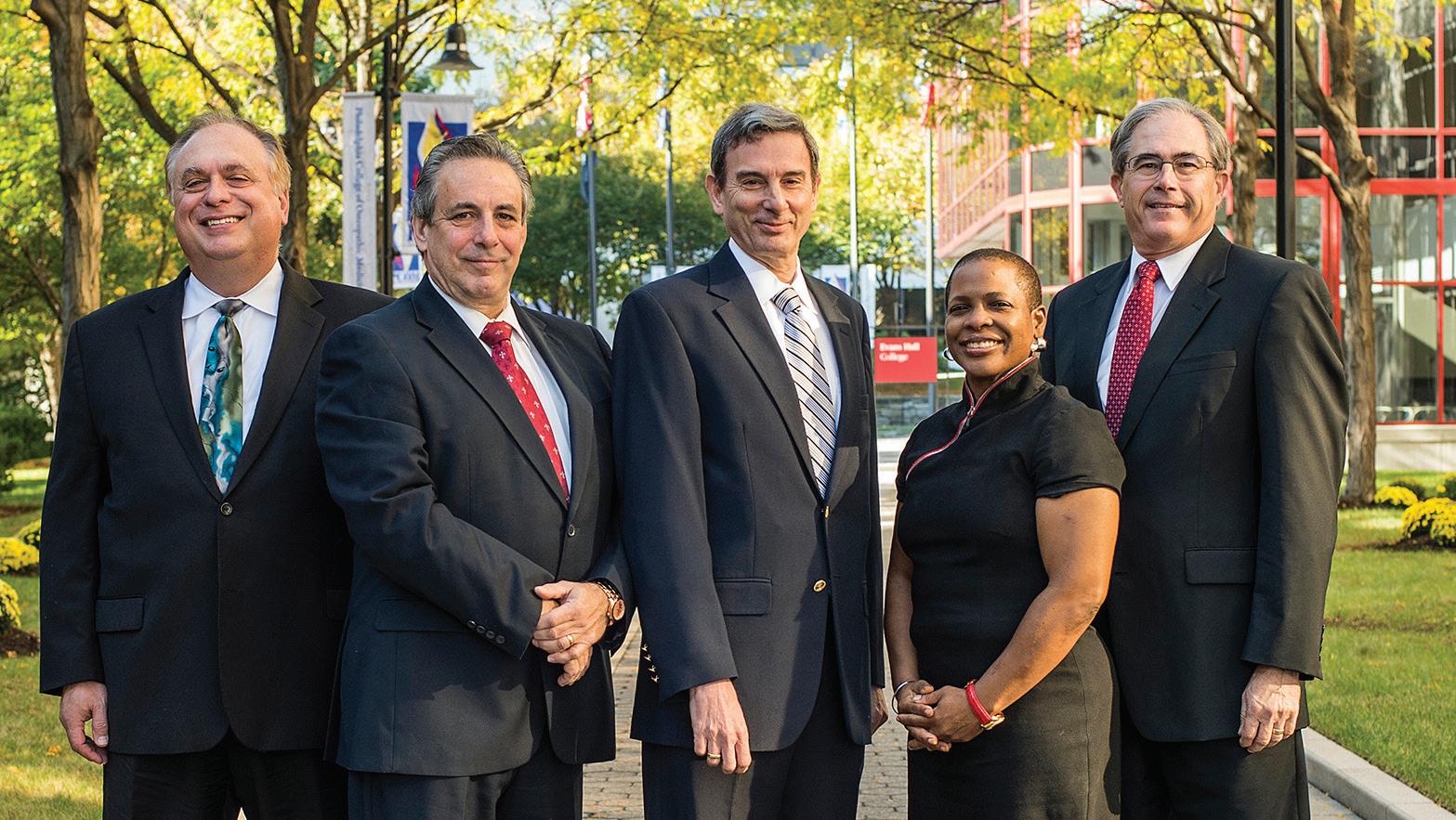
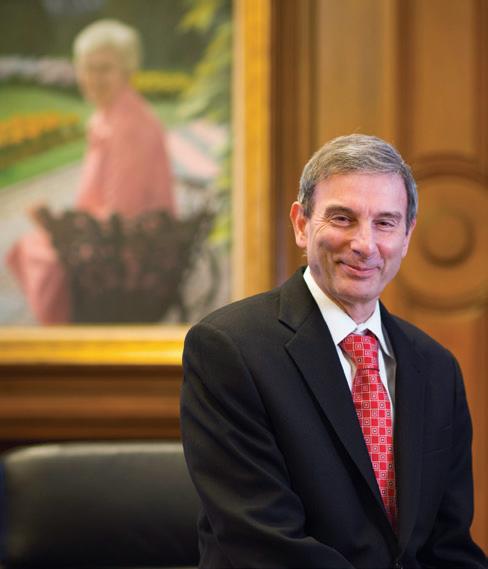
DIGEST 2023 21
– Kenneth J. Veit, DO ’76, MBA, provost and senior vice president for academic affairs
CELEBRATING OUR HISTORY OF INCLUSIVENESS
Our anniversary provides an opportunity to consider the principles and aspirations central to the osteopathic profession and to our College—among them, a history of inclusiveness. In this segment of our series, 125 Years
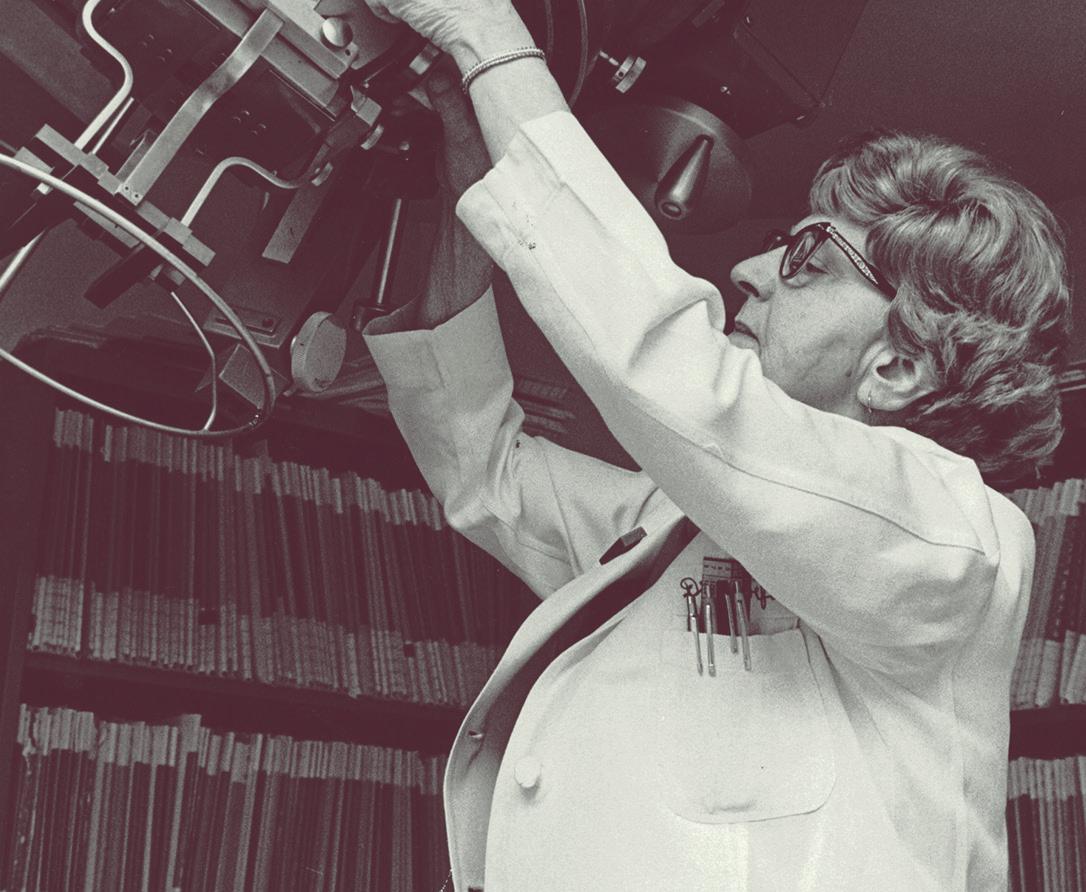
Through 125 Stories, reflections focus on early women faculty, alumni of color, first-generation and other underrepresented healthcare professionals and leaders who work toward diversity, equity and inclusion. Reflections likewise include military alumni who paved the way for osteopathic physicians and surgeons to become commissioned medical officers and/or who faced challenges while obtaining social equality in the eyes of the government and public.
ALICE ALINE SWIFT, DO ’34, MSC (OST.)
“Dr. Swift was a long-term member of the Radiology Department at PCOM [retired as vice chairman of the department]. I was a resident, and she was one of my mentors. She was a very organized person and believed that if you conducted procedures in an orderly fashion, you would be rewarded with good, accurate outcomes. … On one occasion, I was attempting to do a barium enema— introduce barium into the patient’s colon. It was a catastrophe. The barium was not in the patient’s colon. It was on the patient, on me, on the table, on the floor, on the technician. I had failed in a dramatic and humiliating way. I remember that exam to this day. … Dr. Swift looked into the room and said, ‘Can I give you a hand?’” I said a grateful ‘Yes.’ She helped clean up the mess, and we started again. She established a quietly competent atmosphere, and we successfully completed the exam. I expected a sharp critique, but she said, ‘I know you know how to do this exam, and you had a bad day. There will be bad days.’ … I joined the department after I completed my residency training. She knew when to be critical and when to be just human and supportive. She showed me how to treat the people I was training. … Dr. Swift was a formal person 99 percent of the time. You knew that there was more to her, but you didn’t get a look at it very often. … She did the mammography at the hospital and didn’t have a lot of time for other things. But I knew that I could go to her and say, ‘Look, I’m in a conundrum with this particular case. I just don’t know which way to go.’ As a radiologist, you want to be careful not to give people reasons to do a tremendous amount of additional studies that don’t go anywhere. On the other hand, you don’t want to overlook anything. Dr. Swift was really good at that. I could count on her.”
As told by J. Peter Tilley, DO, MSe (Rad.), FAOCR, former president,
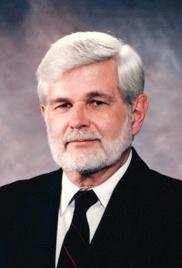 PCOM
PCOM
PHILADELPHIA COLLEGE OF OSTEOPATHIC MEDICINE 22
Dr. Swift taught radiology at PCOM for 30 years; she retired in 1976 as vice chairman of the Department of Radiology.
125 YEARS THROUGH 125 STORIES
Anniversary stories by Janice Fisher and Jennifer Schaffer Leone
IDA C. SCHMIDT, DO ’35, FACGP, FAAO
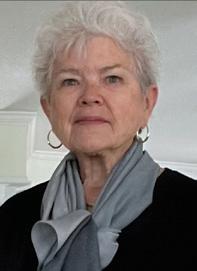
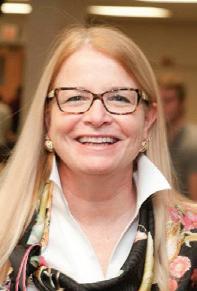
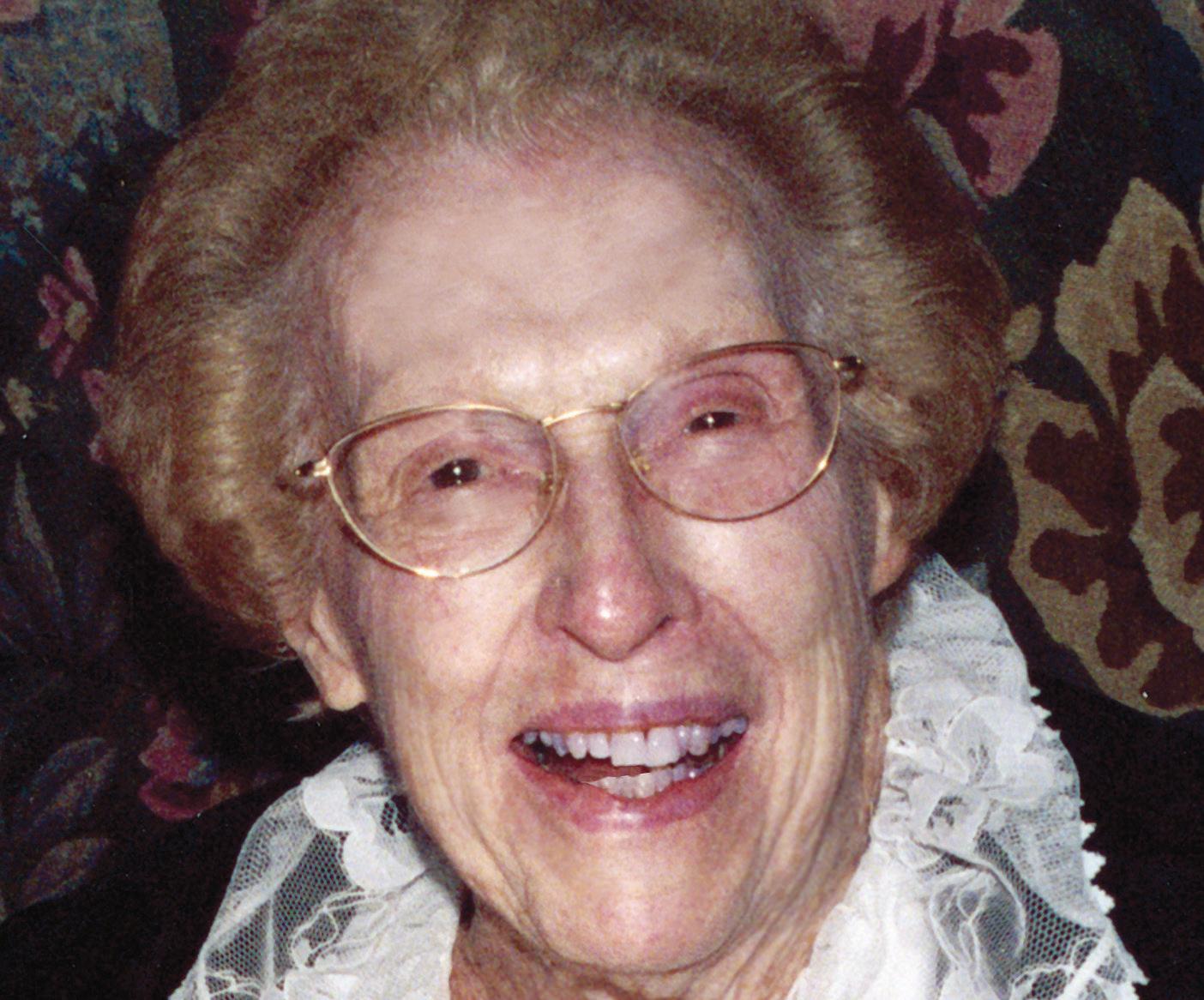
“I worked with Ida Schmidt one day a week for almost the last 10 years of her life. I had a wonderful experience with her. When I started in the [OMM] lab in 1999, she was in her late eighties— my senior in many respects. But she had a gift of making you feel comfortable and relating to you on your level. And she really had a desire to teach you what you needed to do with the techniques. That put me at ease. And then I was able to relate in the same way to my students. … We had an event called Evening with the Stars, modeled after the event at the American Academy of Osteopathy convocation. You get to hear from the more senior, more experienced clinicians on how they would treat certain problems. That night we were doing foot and ankle. Ida was just super—very comfortable doing her treatment as well as explaining it to us at the same time. It was second nature to her, as if she were breathing. So it was wonderful to watch how skilled she was, and yet you knew how almost effortless it seemed for her. … She was seated in her motorized chair, but she was such a pro by then that it didn’t matter. She knew how to make it work to her best advantage. She had started in osteopathic medicine before there was widespread use of antibiotics, so this was her go-to treatment to make sure that everything was working and aligned as it should be, in order for the body to heal. … The teaching always invigorated her. She looked forward to coming in. She took her accreditation exam from the American College of Osteopathic Family Physicians when she was about 90. You didn’t need to do that to teach. This was for her own edification. … She was a very charming woman, very gentle, informal and warm. She was unassuming—no pretensions. I was so blessed to know her and to learn from her.”
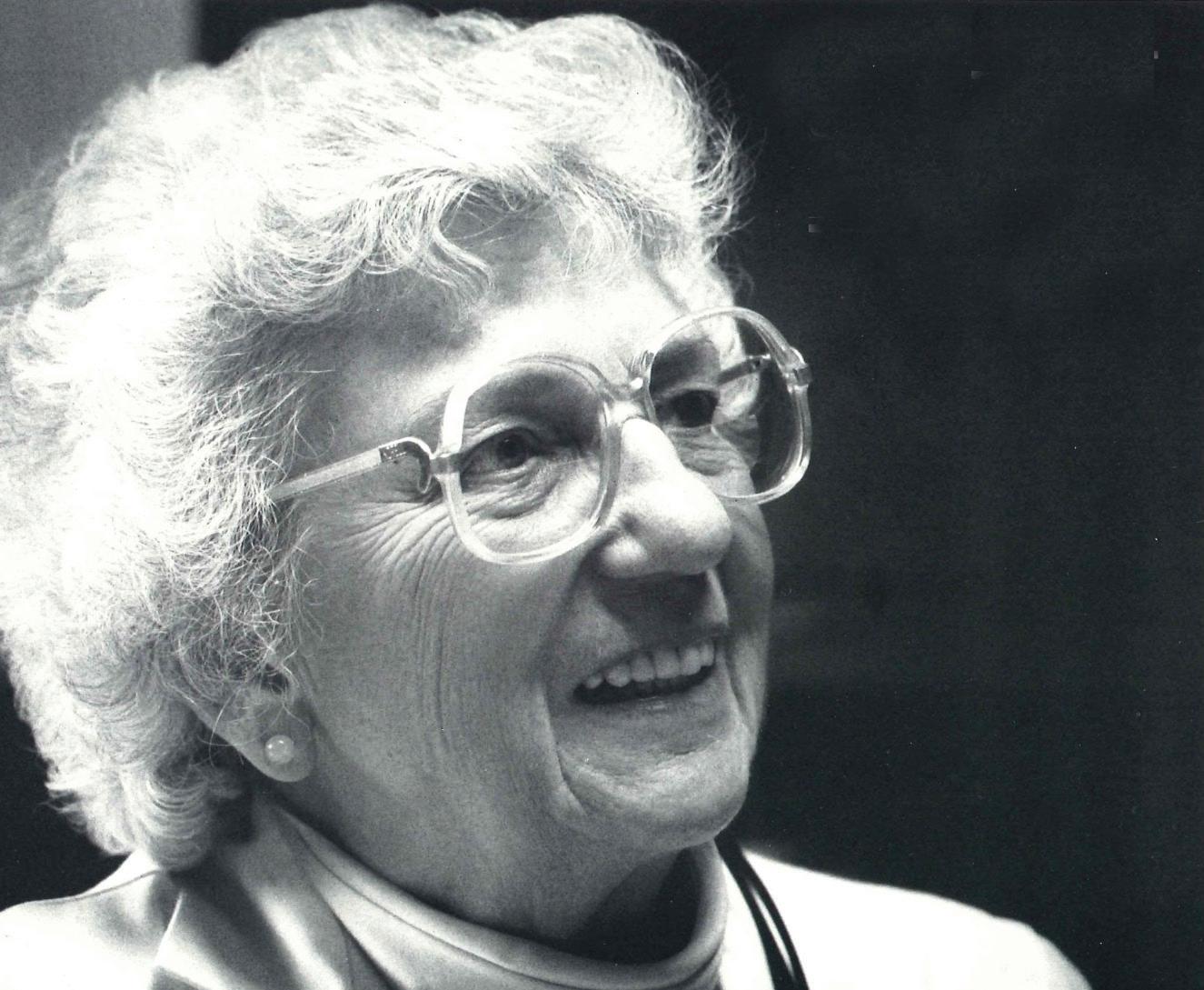
As told by Michelle Hobson, DO ’80, clinical assistant professor, Department of Osteopathic Manipulative Medicine, PCOM
RUTH E. PURDY, DO ’50
“When I was a little girl in Columbus, Ohio, my father was head of the Radiology Department at Doctors Hospital. I rode with him to the hospital, and the school bus picked me up at the emergency entrance. So I stood there in the hall looking at the window, waiting for the school bus. Dr. Purdy would come by and say hello to me. She was the first woman physician I knew [and the first at Doctors Hospital—a woman who would successfully lobby for the first ICU unit in the state.] … She and my father got along very well. Once, Dr. Purdy’s Mercedes was making some sort of a noise, and my father said he’d trade cars with her for two days and figure out what it was. But the next day she gave his back. She’d been driving on US Highway 33. My father was the chief of the volunteer fire department, and she had somehow flipped the switch in his car that turned the horn into a siren and lights. … I had been a geologist, and when I decided to go to medical school I could really count on my fingers the number of people who thought that was a good idea. But fortunately my husband [George O. Faerber, DO ’61] was on that list, and Dr. Purdy was too. … When I graduated from medical school, she sent me a card that said, ‘Congratulations on your degree. Now that you’re done with your academic work, you’ll have to work harder, be smarter. … ’ Inside it said, ‘But being a woman like you, that won’t be hard.’ … I did my training after medical school at Doctors Hospital. She and another woman internist said essentially the same thing to me: I could run something past them with no worry that they were going to say, ‘What do you mean?’ . … Dr. Purdy was a reserved person, but she was friendly and warm. She cared for her patients, and she cared for her friends. … Later on, Dr. Purdy and I shared offices. I was in her office, right at the hospital, one morning a week, with her staff, and one morning a week she was in my office, in an urban area with marvelous parking, with my staff. We didn’t have any financial arrangement. We had a woman’s handshake on it. That arrangement lasted over a decade, until I sold my practice.”
As told by Abigail
H. Faerber, DO
DIGEST 2023 23
Dr. Schmidt taught and practiced OMM for 70 years. She could adjust all 26 bones in the foot with six manipulations.
Dr. Purdy was the first woman DO internist at Doctors Hospital in Columbus. She inspired generations of physicians as a role model and teacher.
Dr. Allen
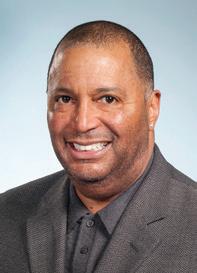
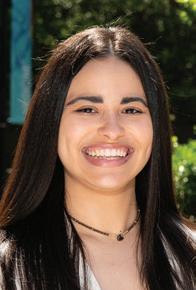
ETHEL D. ALLEN, DO ’63
“My first recollection of Dr. Allen wasn’t connected to PCOM, or even knowing that she was a physician. I was born in the Philadelphia area, and my parents were always socially conscious and politically active. Dr. Allen was held in high regard as a politician. She was the first Black woman to serve on Philadelphia City Council, in 1971, and later she was elected to an at-large Council seat. She was a Republican, which was a little bit different for a Black elected official in Philadelphia, then and now. She repeatedly described herself: as ‘a BFR—a Black female Republican, an entity as rare as a black elephant and just as smart.’ … She entered politics as a byproduct of being a physician. She’d been interested in becoming a doctor from the time she was a little girl. But as a Black woman, she found that her applications to medical school met with resistance. She later championed and mentored underrepresented minorities in medicine. The Dr. Ethel Allen Endowed Memorial Scholarship at PCOM continues to support Black women students. … Dr. Allen treated patients in some of the most underserved communities in Philadelphia, and the socio-economic issues seen in many of these communities are what spurred her to run for elected office. … Her name came up in the Philadelphia press just recently. A Democrat, Rue Landau, won one of five nominations for at-large seats on the Council, and if elected in November she’ll become the first openly LGBTQ City Council member. The Philadelphia Inquirer said, ‘In her victory speech, Landau paid homage to at least two gay Council members who were not out during their political tenure.’ One of them was Dr. Allen. … In 1976, after Governor Milton Shapp had issued an executive order to create the Pennsylvania Council for Sexual Minorities, Dr. Allen successfully lobbied for him to issue a proclamation in support of Gay Pride Week. And in 1979, when Governor Dick Thornburgh appointed her Secretary of the Commonwealth of Pennsylvania, she became the highest-ranking Black woman in the state, and was responsible for Thornburgh declaring June to be Gay Pride Month in Pennsylvania. … Dr. Allen was a trailblazer: before her time, and looking to serve. She deserves more recognition for her efforts to lift up impoverished people, to improve the health outcomes of underserved communities, and to champion the rights of those who lacked them.”
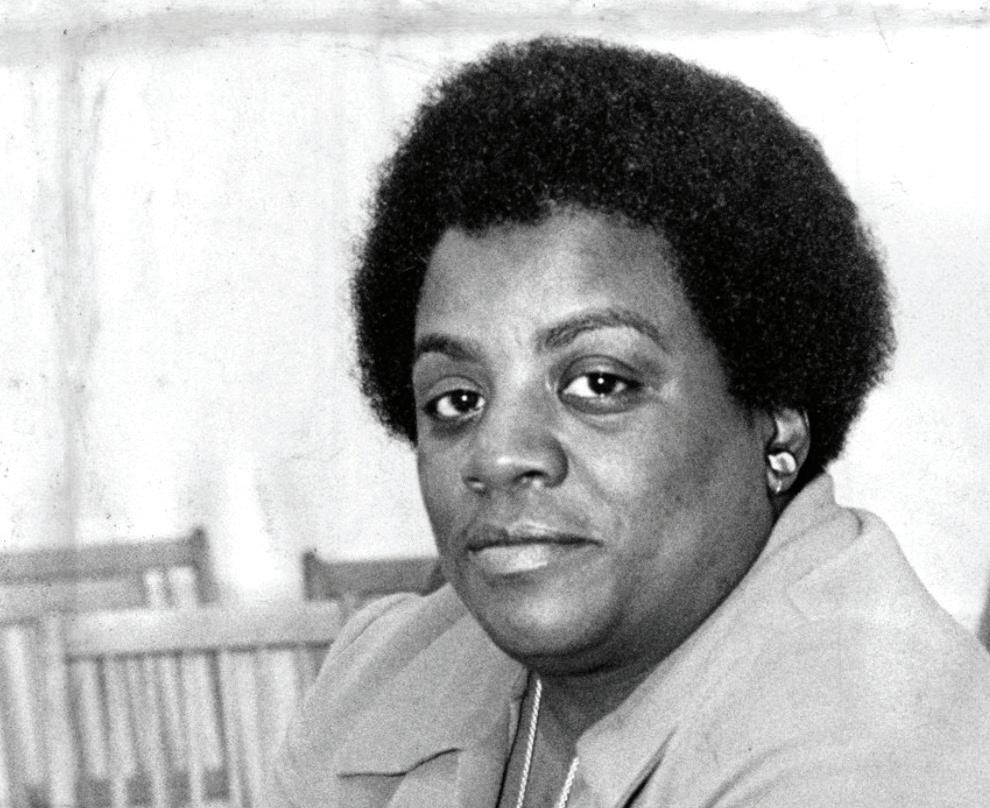 As told by A. Scott McNeal, DO ’88, vice chairman, PCOM Board of Trustees
As told by A. Scott McNeal, DO ’88, vice chairman, PCOM Board of Trustees
During his 50-plus years in practice in Lancaster, Pennsylvania, Dr. White’s community involvement reached far and wide.
HAROLD F. WHITE, DO ’61
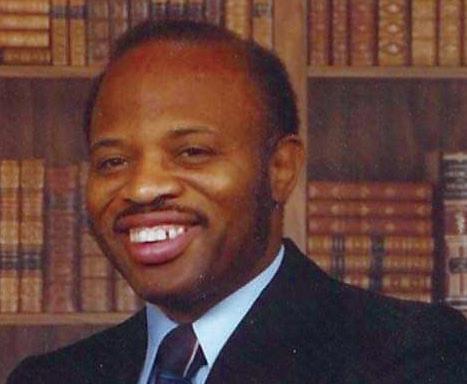
“Dr. White was a family doctor who practiced osteopathic medicine in my hometown, Lancaster City, Pennsylvania, for 50 years. My mom came to the United States when she was eight years old, and Dr. White was her first doctor here. He ended up being the primary doctor for three generations of my family. … He understood the struggle of poverty and empathized with my grandma, who was raising three children in a new city. No matter where you were, or the time of day, if you needed Dr. White, he was there. He even did house calls. He didn’t care where you were from. He didn’t care how much money you had or if you had insurance. … Later in life, Mom had some serious back issues, and Dr. White was the first doctor to treat her with osteopathic manipulation. She had very severe spinal herniations, and no one had ever tried this. I thought, ‘What’s going on?,’ and he explained it to me when I was a little girl. … He was very proud of what he learned from PCOM. He had a PCOM poster in his office, and now his daughter is going to give that poster to me. That’s a full circle moment. … When I told him I wanted to be a doctor, he looked at me. Then he grabbed a little piece of scrap paper, and he wrote something—I remember ‘biology, pre-medicine’—and he handed it to me. He said, ‘Do this, and you’re going to be successful. And don’t let anyone tell you no.’ And that stuck with me. … Not only was I a first-generation college student, but now I’m a firstgeneration osteopathic medical student because of his guidance and faith in me. He was always asking me, ‘How are those grades? If they’re not an ace, I don’t want to know!’ He had a sense of humor. ‘An 89? That’s not good enough! You’ve got to get a 90.’ … Dr. White used to tell patients to believe in themselves, to advocate for themselves. He was a true osteopathic physician in that he saw beyond the symptoms. He saw the whole person, and not just the person, but the family. And not only the family, but the future for the family. That’s something I take very personally. I plan to follow in Dr. White’s footsteps as a family doctor and look forward to serving the same populations with such a giving heart as he did. Today, I am a mentor for high schoolers and pre-meds, and in that way, I’m also honoring Dr. White’s memory.”
As told by Caroline Veronica Ruiz (DO ’26)
PHILADELPHIA COLLEGE OF OSTEOPATHIC MEDICINE 24 125 YEARS THROUGH 125 STORIES
was the first African American woman on Philadelphia City Council and a physician practicing in North Philadelphia.
WILLIAM M. KING, DO ’62
“I had been in practice for a year when I attended a continuing medical education conference on new techniques for ENT. I sat across from Dr. Bill King, who said, ‘I’ve never seen you before.’ He ended up inviting me to do some hours in his practice in Germantown. That’s how it started, and I was there for about two years, before my own practice got too busy for me to continue. A lot of doctors practicing now got their start in Bill King’s office, picking up a few hours … Bill practiced in what had been a huge funeral home, with beautiful waiting rooms to make his patients feel valued. It was a very successful business—he rented space to a pharmacy, an X-ray unit, a big physical therapy unit, all of them managed by his staff. … Saturday hours were 7 a.m. to 7 p.m., and sometimes we wouldn’t get out till 9 or 10 p.m. I think I saw 86 patients one day. … He was particularly fond of the many children in his practice, remembering most of their names and making up special names for some … Bill had been a biochemist at the NIH National Heart Institute. On lunch breaks—though we were so busy we hardly had any—he would talk to me about the disease process and how medications affected it. … Bill had a gorgeous home, like a museum, with stuffed animals and all kinds of carved masks and objects that he collected from his travels around the world. His swimming pool was like a Hollywood setup. But he got delight in seeing others’ delight in what he had. Some medical students got married in his house; organizations had their meetings there. . . . What was really his thing was philanthropy. He gave so much to the community. … He was a Central High alum and the largest contributor to a new media center there, funded by alumni donations, that opened in 2005. It was named for him. … He derived pleasure from what he was able to do for other people. One day he said to me, ‘Bullock, come here. I have something for you.’ He showed me a refrigerator full of prime rib. I had never set my eyes on a chunk that big; I had to use a saw to get it into my fridge. It was absolutely the best. That’s the way he was.”
As told by Oliver Bullock, DO ’78, professor emeritus, PCOM
LEONARD W. JOHNSON, DO ’64
“Up until the mid-1990s, PCOM’s entering classes of African American students were very small. In my class (1989), entering in August of 1985, there were five African Americans, four women and myself. Dr. Johnson made it a point to get to know all of us. He made it a point to be nurturing. … He invited us over to his family medicine practice in West Philadelphia to show us what it was like in private practice in the inner-city African American community, and about the need for giving back and taking care of people that were less fortunate. He also wanted us to see what was required to own and manage a private practice, because most of us did not come from families where Mom, Dad, or any family members were physicians. So he wanted to show us how a practice could be set up—the functionality of it, the logistics—and I think he did an excellent job. … Dr. Johnson was very devoted to young people and to helping them recognize the importance of postsecondary education. Whether it was to study medicine, engineering, law, nursing, teaching—he just wanted young people to pursue college. … He was an amazing man, very driven. He wasn’t concerned about the number of hours he put into the day. He would make rounds well into the evening after he finished a long day of office hours and community engagements. It wasn’t unusual for him to go to the hospital to finish rounds at 9 or 10 o’clock at night. Once office hours ended, it was all about how he could reach out to the community beyond medicine. … He was engaging and created relationships where patients could feel very comfortable about confiding in him. He was a great mentor in helping to teach us how to osteopathically/holistically interact with patients. He had the respect of everybody throughout the community. He was just a very likeable person. … Dr. Johnson made a big sacrifice in maintaining a private practice in a less desirable part of the city for well over 30 years. There were a lot of impoverished people in that community, and he didn’t turn anyone away. His legacy will live on forever.”
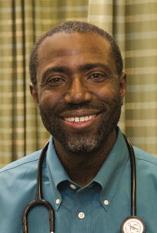
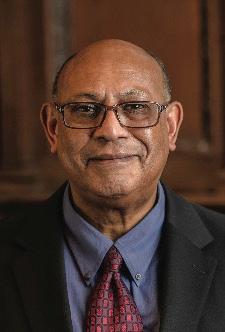
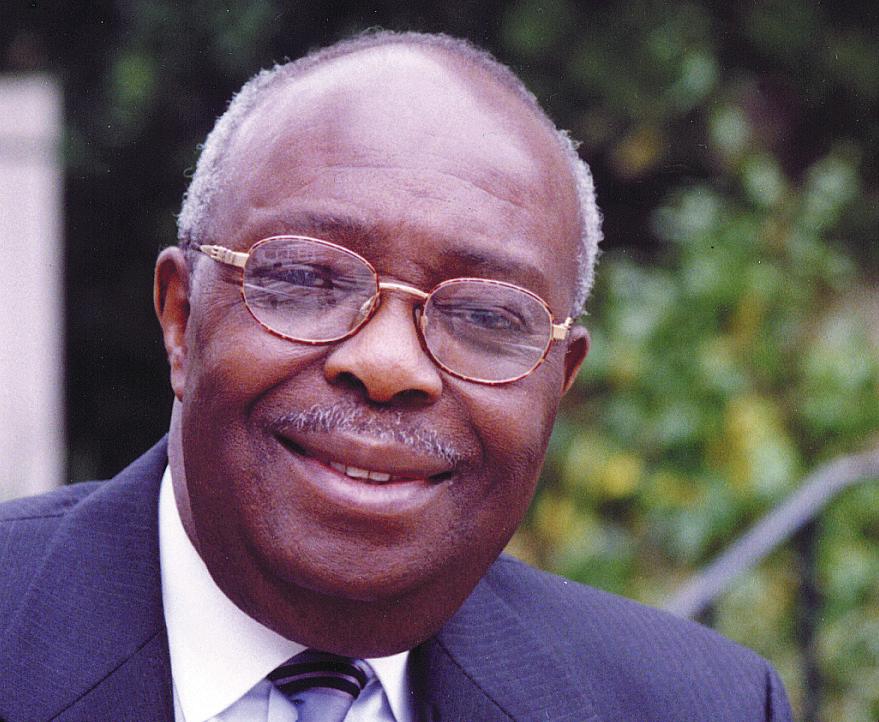
As told by J. Steven Blake, DO ’89, MSc
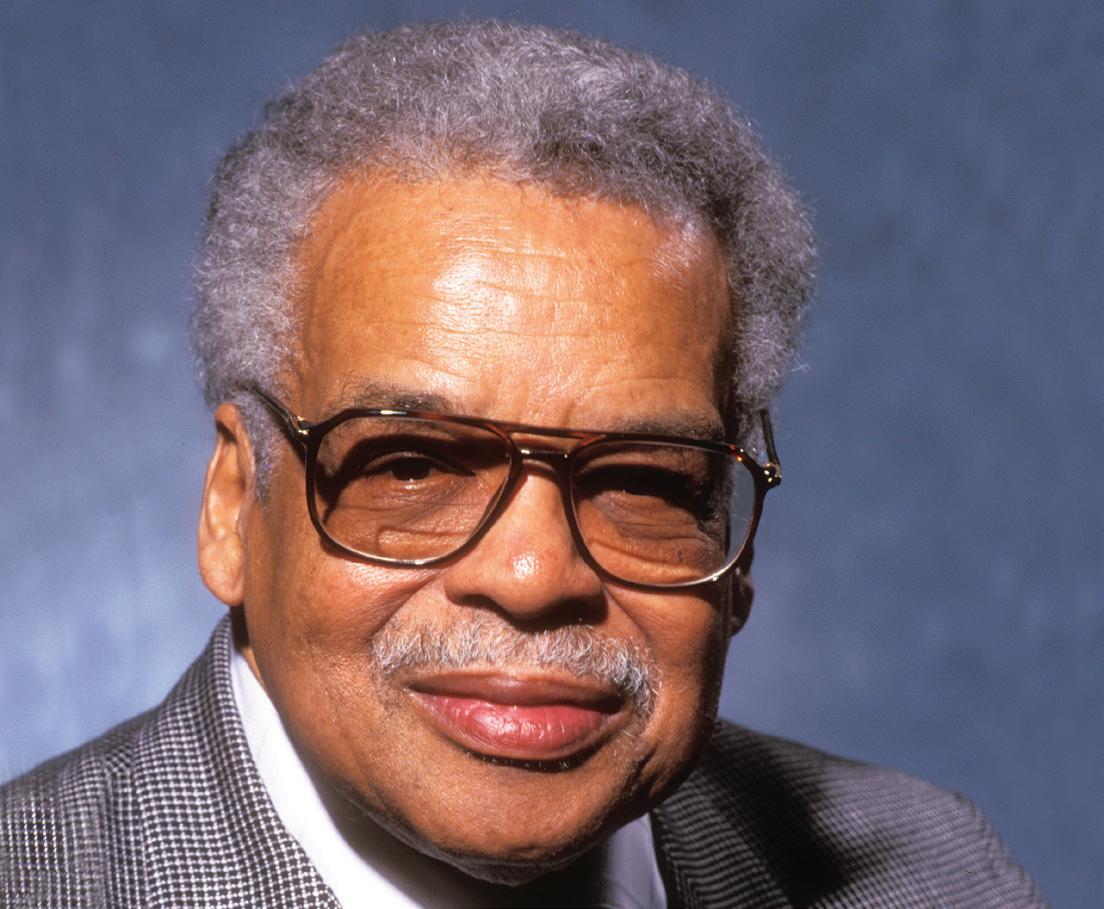
DIGEST 2023 25
Dr. King was a philanthropist. Among his beneficiaries were educational institutions including PCOM.
Dr. Johnson took great pride in mentoring PCOM students in his clinic in West Philadelphia.
In 1974, Dr. Leis became the first osteopathic physician fully trained in plastic and reconstructive surgery.
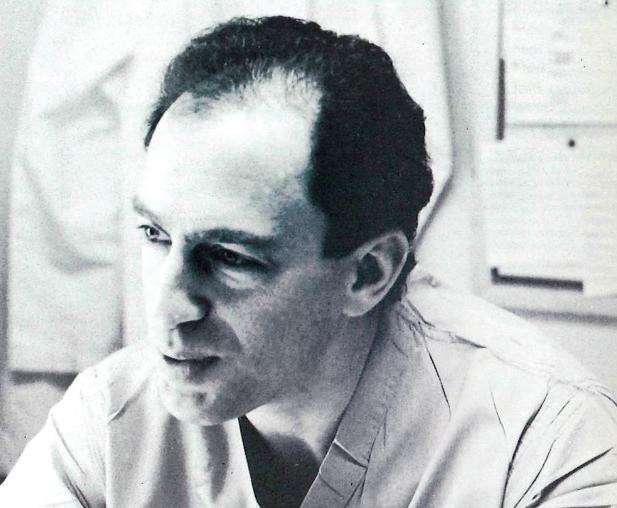
SHERMAN LEIS, DO ’67
“I graduated from medical school in 1995, did a year of internship in 1996, and spent four years as a Navy flight surgeon and working with NASA. Then I took a year off for my own transition as a transgender woman. … I had always hoped and dreamed to be a plastic surgeon, and I went to Abington Hospital to jump back into my career. My reviews were stellar, but they let me go. I was devastated and ended up switching to Suburban Mercy Suburban Hospital for the four remaining years of general surgery. Dr. Leis operated there too, and none of the other residents were interested in plastic surgery, so there was nobody to help him. About a half-dozen plastic surgeons rotated through that hospital, so I ended up getting this incredible plastic surgery experience. I was in the right place at the right time. … Dr. Leis created the Plastic and Reconstructive Surgery residency at PCOM in 1991, and he’s really the father of plastic surgery for the osteopathic profession. None of us would be here if it weren’t for him. When I was trying to get into a plastic surgery residency, there were only three spots in the whole country that a DO could qualify for. I was one of two people selected for the PCOM program that year. … At that time, hospitals in Philadelphia were closing, selling, restructuring—it was like musical chairs. Dr. Leis fought hard to get into places where previously only MDs got in. He wanted to make sure we had a full and balanced education. We were in five or six different hospitals, and it’s made all the difference in the breadth of my skills. … In the middle of my rotation with him, he became ill and was out of commission for a couple of months. I had to go make my own residency, which enabled me to get some very specialized training in transgender medicine. … Dr. Leis listened to people, and everyone came in as an equal. No matter how down and out somebody was when they came to see him, he would listen to them and try to help them. … He was an innovator, and he didn’t limit himself. At conferences, he always asked about controversial subjects. He challenged people, and he stood up for what he believed in.”
As told by Christine N. McGinn, DO ’95
Dr. Peterson was among the youngest to graduate from osteopathic medical school when she obtained her degree from PCOM Georgia at the age of 24.
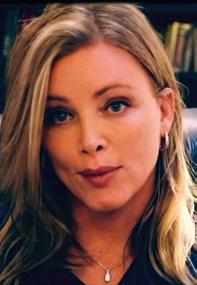
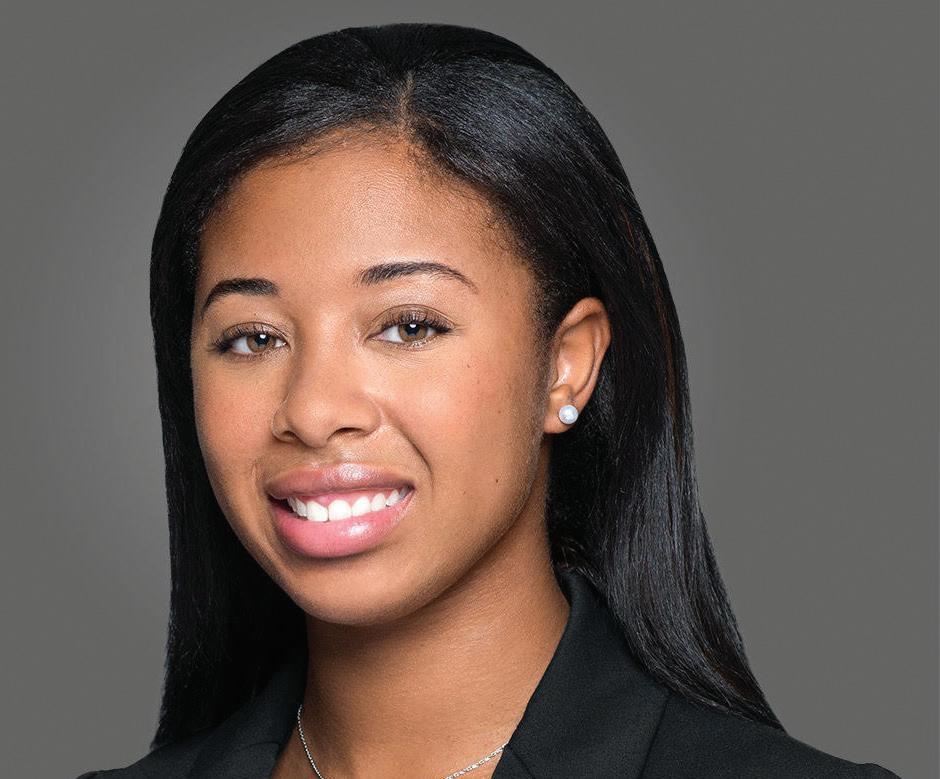
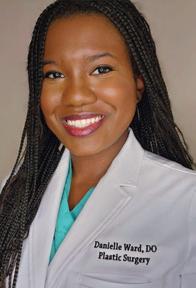
ASHLEY ROXANNE PETERSON, DO ’19
“When I began medical school at PCOM Georgia, I wasn’t sure what to expect. I was starting on a new journey, in fulfillment of a lifelong dream—in a new state, in a new city, at a new school, surrounded by new people I did not know. When I met Dr. Peterson, whom I affectionately refer to as Roxy, I knew I had found my person. We connected during orientation week, and while I didn’t know her age, I was immediately drawn to her ambition, sweet demeanor, and thirst to make waves in the world of medicine. We became friends, and I realized just how phenomenal Roxy was and is. … Through the years, we worked together in various leadership positions, and I enjoyed watching her grow into an amazing leader. She not only became my little sister, but she was more like a big sister to my own daughter. It was because of Roxy that I was able to be the best version of myself as a single mother and medical student. She often spent her free time watching my daughter so that I could succeed. … You wouldn’t have known it from her ability to command the attention of a room or from the invaluable wisdom she imparted to her peers, but Roxy was only 19 when she began medical school. She was among the youngest to graduate from osteopathic medical school when she obtained her degree from PCOM Georgia at the age of 24. She then went on to complete her family medicine residency at Morehouse School of Medicine. She wasn’t in residency long when she received the Morehouse School of Medicine inaugural Top 10 Under 40 award, and I remember crying happy tears as I sat in attendance for her recognition at the Atlanta Black 40 Under 40 awards. I was so proud. (Did I mention while doing all of this she also formed excellent content and engaged in interviews for her podcast and ran a clothing business?) … Today she is boardcertified in family medicine and is practicing in a geriatrics clinic. She is married to another wonderful physician; I was blessed to witness their union and continued love. … Roxy is a true portrait of resilience, grace and what it means to make her family proud. She often speaks about being inspired by her enslaved ancestors and family members who were unwilling participants in the Tuskegee Airmen Study. Roxy inspires me daily.”
As told by Danielle Ward, DO ’18
PHILADELPHIA COLLEGE OF OSTEOPATHIC MEDICINE 26 125 YEARS THROUGH 125 STORIES
JULIA PATTERSON, DO ’23
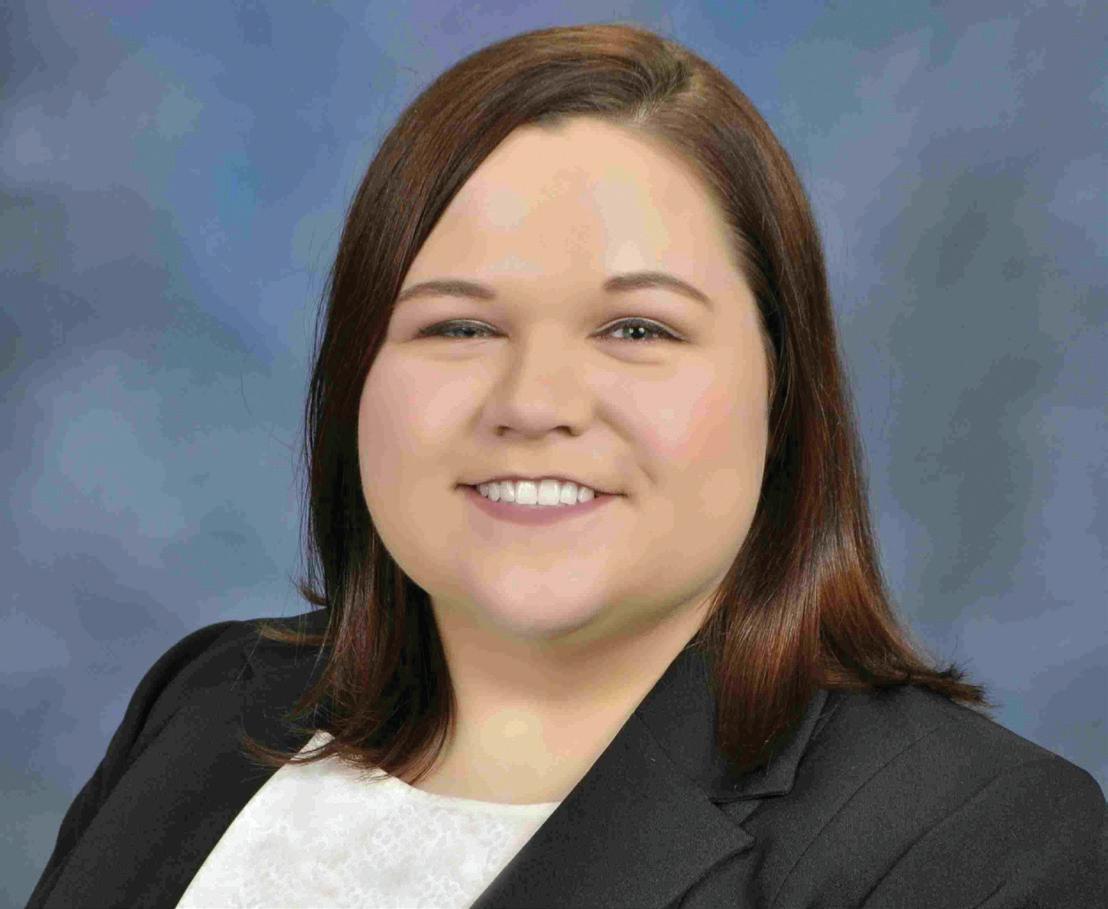
“Julia arrived as one of our inaugural students from a small nearby town, Tifton. I was assigned to check in with her regularly as her faculty mentor … The first six or eight weeks of the DO program are a bit daunting. Things feel scary and overwhelming. And then, as she worked through that—I know it’s a process, but it seemed like a light switch was flipped, a spark ignited. When Julia realized she could do this, she belonged here. What I saw was the change in her confidence—really becoming successful in the classroom and seeing herself for who she is and all her talent. … That inaugural class is very tight. It was a brand-new campus—brandnew everything—and they built strong friendships and provided each other with a lot of support. … Julia arrived at PCOM South Georgia with a tremendous service record in rural health working with migrants. She was part of the Moultrie Farmworker Health Project—this is one of the largest agricultural areas east of the Mississippi. She’s also worked with Called to Care, a faith-based organization that supplies children in foster care with clothing and necessities. She’s worked with Habitat for Humanity and Adopt a Mile. She’s involved with Hope House in Moultrie, a center that helps women with unplanned pregnancies, providing necessities and also parenting education. … While at PCOM she participated in the Scholars Program of the Southwest Georgia Area Health Education Center, a community-driven nonprofit seeking to increase access to healthcare by improving the number and distribution of healthcare providers in 38 counties. This offered hands-on training and the opportunity to work with students in other health professions, as well as increasing her professional contacts. … Julia will begin her residency as an internal medicine physician at Archbold Hospital in Thomasville, Georgia, which is just 20 miles south of Moultrie and not far from Tifton. Where residency training takes place is where physicians are more likely to stay. … Julia is exactly the kind of student we were looking for. She’s South Georgia bred, and when she’s speaking with patients here, these are the people who helped raise her, the community she grew up within. Patients know she understands their experiences.”
CHARBEL M. AOUN, MS/BIOMED ’20, MS/ODL ’21 (PHARMD ’25)

“I met Charbel on my first day at PCOM. He and I soon realized we had graduated from the same school, Georgia State University, and even the same program. And his nonprofit, the Georgia First Generation Foundation, is near and dear to my heart, because that’s my research interest. That’s how our friendship/mentorship blossomed. … The foundation started in 2016 as a student club when Charbel was an undergraduate. He is the first in his family to go to college, and he wanted to find ways to help other first gen students. He got a grant to form the foundation, and now it’s one of PCOM’s community partners in Suwanee. Valerie Cadet, assistant dean of health equity integration, PCOM Georgia; Michael Feng, DO ‘23; and Diana Tran, PharmD ‘21, serve on the board. The foundation is devoted to providing resources for first generation students who are passionate about achieving academic success after high school. There’s a focus on Gwinnett County schools. … Students are introduced to the industry’s best in various fields, with keynote speakers at an annual summit, student and career panels, and scholarship presentations. Success, Service and Scholarship are the organization’s three pillars. … Charbel has two master’s degrees from PCOM, and now he’s in a doctoral program, and on top of that he’s a director of a nonprofit. But he’s always offering to volunteer, to step in whenever I need him. ‘Charbel, I need a healthcare student panel. Can you serve on it?’ ‘Sure, I can do that.’ A month after I started in my position, I had to help a middle school with their STEM certification. ‘Charbel, are you available?’ ‘Of course, I can do that.’ … So many of our students want to do community work and want to be involved at so many levels. They have that same drive and determination that Charbel has. … I’ve heard Charbel speak about the ways in which his Lebanese cultural identity has an impact on how he works and how he presents himself on campus. First gen students are a diverse group, very proud of their backgrounds. Some are the first in their families to be formally educated in this country. My overarching goal is to make sure I support my students in whatever they want to do, whatever goals they have.”
As told by Jennifer
H. Shaw, PhD, chair and associate professor of physiology, Department of Bio-Medical Sciences, PCOM South Georgia
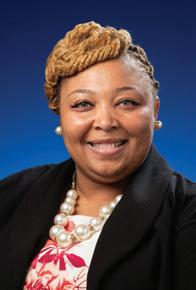
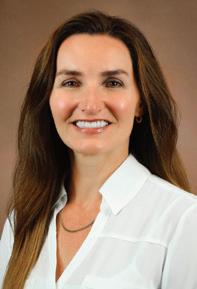
DIGEST 2023 27
As told by Christy Y. Finley, EdD, Diversity & Inclusion Program Coordinator, PCOM
Dr. Patterson, from Doerun, Georgia, was a member of PCOM South Georgia’s inaugural DO class.
Mr. Aoun is the founding executive director of the Georgia First Generation Foundation.
JAMES H. BLACK, DO ’62, LLD (HON.), RDML USN (RET)
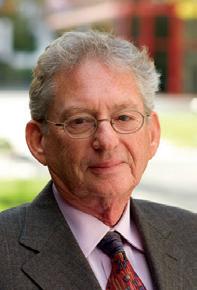
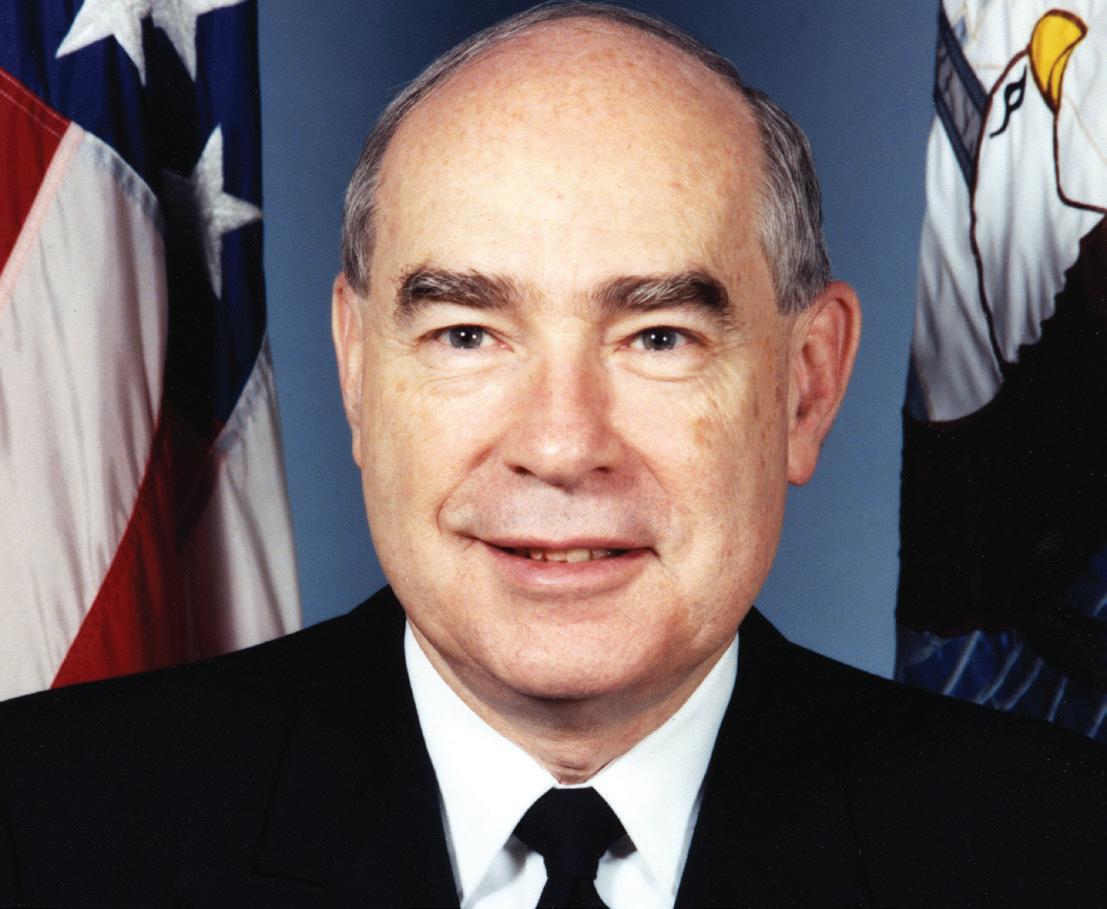
“Jim and I were PCOM classmates. He completed an internship at the Fort Worth Osteopathic Hospital and then an anesthesiology residency. He practiced in Fort Worth for more than 10 years until he decided to join the Navy and became a flight surgeon [assigned to the USS Ranger (CV-61)] … Jim is a very private and unassuming person who will not tell you that he retired after many years with the rank of Rear Admiral; that he was Fleet Surgeon for both the Pacific and Atlantic Fleets; that he was Commanding Officer of the Naval Hospital in Oak Harbor, Washington, and of the Naval Hospital in Yokosuka, Japan; that he was Medical Advisor to the Supreme Allied Commander Atlantic, which is the NATO Command. He was the third DO to achieve flag status in the Navy. I learned all this when we became reacquainted when he moved to Broward County to be close to his elderly mother. … My wife, Lila, and I were fond of cruising to many countries, and Jim and his wife, Joann, were wonderful companions to us and to our son and his family. Jim was like an uncle to our grandchildren during our shared visits to Colorado every summer. … One of Jim’s exciting stories—I recall having dragged it out of him—was when he was lowered from a helicopter to a surfaced submarine to examine a seaman who had appendicitis. There must be more such stories that I haven’t heard yet. … Jim is an active member of the Board of the Navy League of Fort Lauderdale, which supports visiting ships and their crews as well as providing a social and educational platform for retired members of the Navy and Marines. He even got me to join as a supporting member. … Jim is a man of impeccable ethics and faith and is a patriot of the highest order. He has been a loyal supporter of the College since graduation, presently serving as a member of the PCOM Board of Trustees. Jim’s advocacy was instrumental in helping PCOM students receive Naval scholarships and his work smoothed the way for the commissioning of PCOM military officers. He has received PCOM’s highest award, the O.J. Snyder Memorial Medal. No one doesn’t like and respect Jim Black.”
As told by Murray Zedeck, DO ’62
RONALD R. BLANCK, DO ’67, MACP, LTG USA (RET)

“I got to know Dr. Blanck as a former recipient of the O.J. Snyder Memorial Medal. Institutional Advancement has always been very proud of him as our alumnus. He served a tour in Vietnam as a battalion surgeon—one of the first DOs to practice medicine as a commissioned Army officer. He later became the Army’s Surgeon General. He was Commander at Walter Reed Army Medical Center. He was the president of the University of North Texas Health Science Center. For the same reasons, though, I was intimidated. Why would he want to talk to me? … But he is one of the genuinely warmest individuals I have ever met. He has an ease with people and a great deal of humility. … At one Founders’ Day, his wife told me, ‘Ron’s been after me to hike the Appalachian Trail with him. I don’t want to do it, but I don’t want him to go by himself.’ For years, I myself had been wanting to hike the Trail. … So Ron and I have been hiking the Appalachian in sections for probably 10 years. … When we’re done hiking, and we go to a hut or a clearing, I see the same warmth from him that I do in every single setting. He doesn’t turn it on and off. He makes conversations with everybody. … Usually, when you’re hiking a distance, you leave a car in one spot, drive to your other destination, and then hike back to the first car. During one hike, as we were heading toward my car, I had a sudden realization. I said to Ron, ‘I have something really bad to tell you.’ He said, ‘Tell me.’ I said, ‘I left the keys in the other car’—the car that was 40 miles away—and he stopped for a second. He was processing it, and he said, ‘That is really bad.’ … It was a horrible rainy day. We got out on the road, and that man stuck his thumb out. He’s a threestar general on some country road with his thumb out. A German couple that was touring the United States stopped. … And he never said one word to me about it, not even in a joking way. I see that in how he behaves with everybody he meets. He makes me want to be a better person, because I see his generosity of spirit.”
As told by Pamela J. Ruoff, senior manager, alumni special services, PCOM
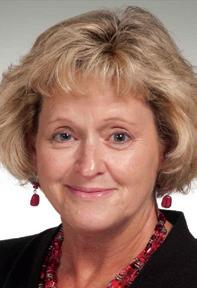
PHILADELPHIA COLLEGE OF OSTEOPATHIC MEDICINE 28 125 YEARS THROUGH 125 STORIES
Dr. Black served as fleet surgeon for the US Navy’s Atlantic Fleet, command surgeon for the US Atlantic Command, and medical advisor to the Supreme Allied Commander Atlantic.
Dr. Blanck retired as the Surgeon General of the US Army and commander of the US Army Medical Command.
MARINA N. VERNALIS, DO ’77, FACC, COL. MC USA (RET)
“I met Marina in the mid to late seventies when I started as an attending at National Naval Medical Center, as well as continuing my attending work at Walter Reed. She was one of my first residents, and she impressed me from day one with the clarity and completeness of her presentations. I was thrilled to learn that she was a fellow PCOM graduate [one of 14 women in her class of 275]. … At some point after her residency and after her first Navy assignment—she had had a Navy health professions scholarship—Marina decided to come over to the Army, for a variety of reasons. She was on staff at Walter Reed. By then I had gone to the assignments branch, so I kept running into her and seeing her progress. Things were not easy in those days, I’ll tell you quite frankly, for a woman, particularly in cardiology, and there was skepticism about noninvasive cardiology, which was her area. Cardiac ultrasound and all the imaging wasn’t nearly as sophisticated then as it is today. She did very well, and assumed greater and greater leadership positions. … Some years later, when I was commander of Walter Reed Medical Center North Atlantic Region Medical Command, again she was one of the people I counted on to provide the leadership, ultimately as chief of Cardiology Services. Marina had the background of being an outstanding clinician and teacher who was also involved in research. … Upon her retirement from the Army she went to the Integrative Cardiac Health Project at what was then Walter Reed Army Medical Center. It put together education, patient care, and research in a single integrative program. … Marina has it all. She’s the complete physician—she provides superb patient care, she has exceptional communication skills. But then she’s taken it further, to do what many physicians try to do—though not all do it as well as Marina—and that is teach. Along with the research skills, the administrative experience—they all combine in making her a superb leader.”
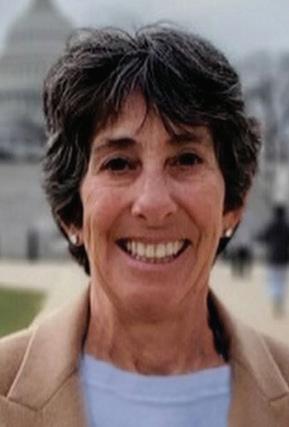
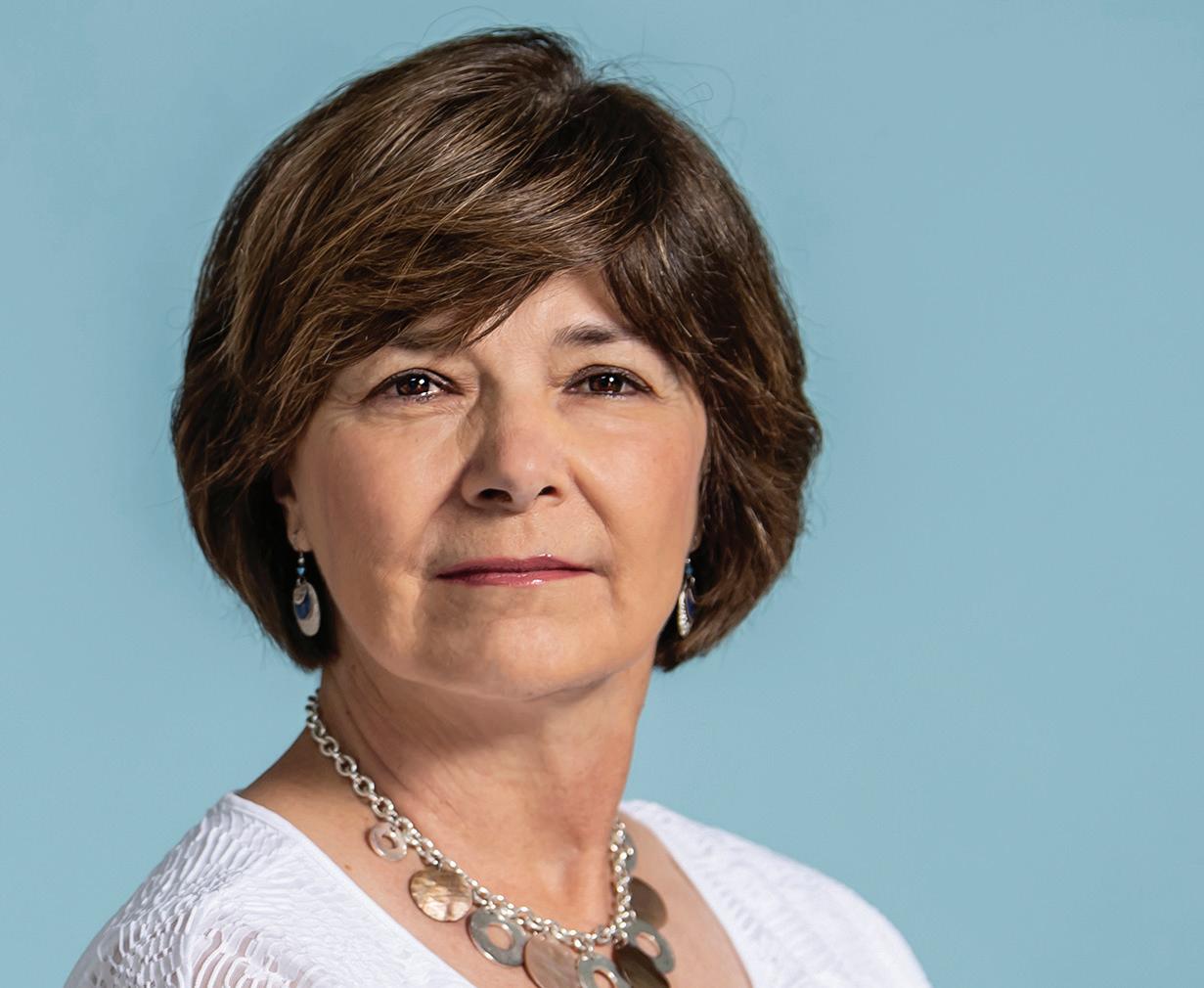
LES R. FOLIO, DO ’87, MPH, MSC (RAD), MAS, COL. USAF (RET)
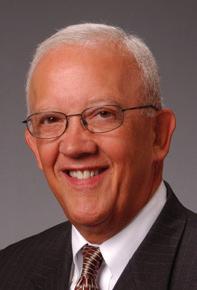
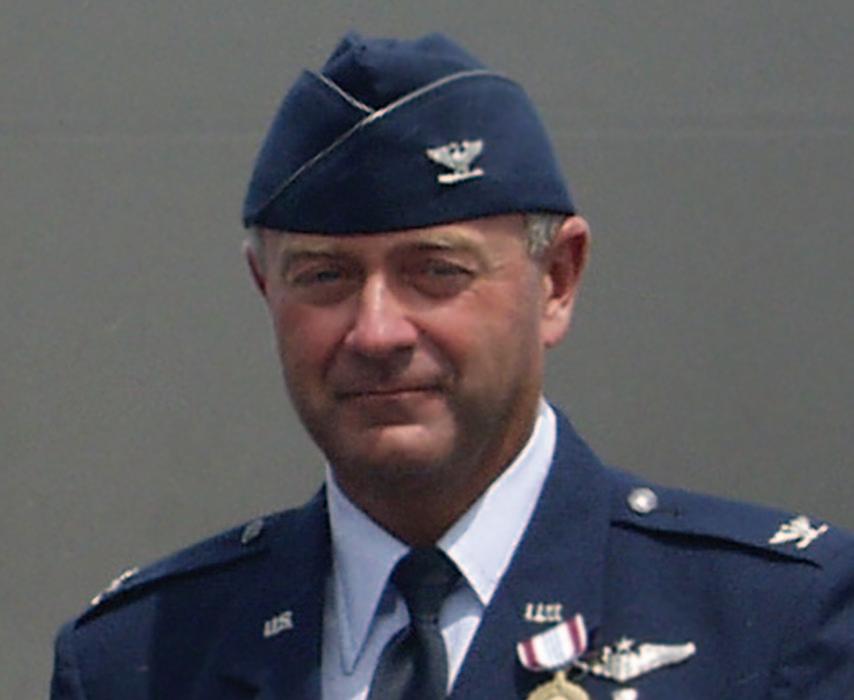
“Les is pure energy. He probably popped out of his mother inventing something, and he has not stopped. We were classmates at PCOM, and because of the alphabet—Finkelstein, Folio—I think we shared a cadaver in Anatomy lab. … It was very apparent that when Les was a medical student, his brain was constantly on fire. He never stopped thinking and doing. He was truly a force of nature. … He’s a retired colonel—he was a radiologist and flight surgeon in the Air Force. Until recently he worked for the National Institutes of Health. Now he’s at the Moffitt Cancer Center in Tampa. The guy could never retire; he’s just got so many years ahead of him to make a difference. … Les found a role for himself to be able to use his talents in innovation and technology as an interventional radiologist and a cancer radiologist. For people like Les, medical school is a launching pad. He has a master’s degree in aeronautical science and another in public health. … And he also is a very compassionate person, very empathetic. PCOM gave him that foundation of understanding anatomy, physiology, biochemistry. … Les is a gem—warm, very welcoming. He has a great imagination. When you engage with him, you just have to be ready. He’s pretty hilarious. … He’s got over a hundred patents. He sees a problem, a gap, and wants to address it. He’s been ahead of his time for many, many years. He would say, ‘Well, you know, we can fix this by utilizing technology,’ whereas most of us had no idea what he was talking about. Now, 25 or 30 years into the future, a lot of those ideas are now coming to fruition. … Remember in Star Trek Dr. McCoy would use his tricorder to look at vital signs? Now we’re utilizing remote patient monitoring real-time, and we’re leveraging augmented intelligence to advance cancer imaging analytics and diagnostics. Les’s ‘Quadcorder’ allows physicians to use hyperlinks to look at patient imaging and pathology slides. … He’s a futurist with an understanding of the physician–patient relationship and the challenges of our healthcare system. And now he’s putting all this together and trying to fix it.”
As told by Lisa Finkelstein, DO ’87
DIGEST 2023 29
As told by Ronald R. Blanck, DO ’67, MACP, LTG USA (RET)
Dr. Vernalis was the first woman to serve as chief of cardiology, Walter Reed Army Medical Center, and as cardiovascular consultant to the US Army Surgeon General.
Dr. Folio retired from the Air Force as a Colonel in 2009. His assignments included Walter Reed Army Medical Center, Uniformed Services University and the Pentagon.
ON LEADERSHIP & LEGACY


H. William Craver, III, DO ’87, FACOS, as he caps 30 years of service to the College
by David McKay Wilson
HWilliam Craver, III, DO ’87, FACOS, dean and chief academic officer at PCOM South Georgia, retired in April, capping 30 years of service to PCOM, which included administrative stints at each of the College’s three campuses.
Dr. Craver, who completed his surgical residency at PCOM’s Osteopathic Center of Pennsylvania in 1992, devoted his career to building PCOM’s academic program while contributing to the profession at the national level.
Dr. Craver began his career in health care as a physical therapist in the field of sports medicine at Penn State University in 1979. Four years later, he enrolled at PCOM. Following his postgraduate training, he began his surgical practice while serving from 1992 to 1997 as academic coordinator of PCOM’s residency programs and teaching surgery to PCOM students and residents. He moved south to PCOM Georgia in 2010, serving as dean and chief academic officer for a decade.
During his time in Suwanee, Dr. Craver played a major role in planning for the establishment of the College’s teaching location in South Georgia, which opened in 2019.
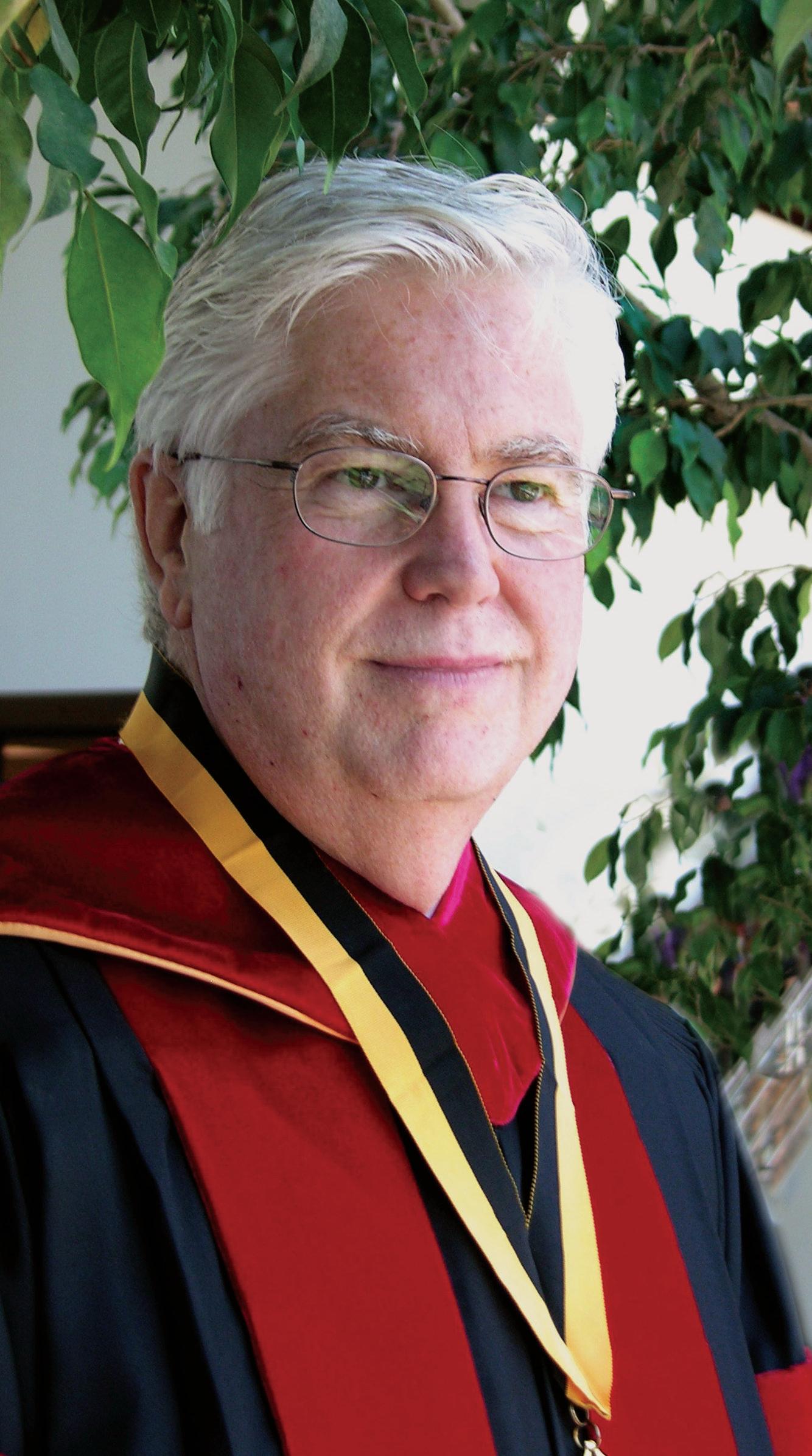
He moved to Moultrie in 2020, shortly after PCOM South Georgia opened for its inaugural class of 59 osteopathic medical students. During the next three years, he served as dean and chief academic officer, helping to shepherd the young campus’s first cohort through to graduation in the spring of 2023.
“You can’t help but be proud of them, and to be part of it,” he said. “They all placed into residencies—significant positions in primary care and in specialties throughout the Southeast and across the nation. That is what I said I was going to do. It was a good time to move on.”
Dr. Craver, who intends to remain in Georgia to be near his two sons and grandchildren, garnered recognition on the national level, with the American Osteopathic Association (AOA) naming him a Guardian of the Profession. At the AOA, he served on the Council on Osteopathic Postdoctoral Training and was named to the AOA’s Mentor Hall of Fame. He also served as chair of the Board of Deans for the American Association of Colleges of Osteopathic Medicine.
He made his mark in Georgia as well. He was named Physician of the Year by the Georgia Osteopathic Medicine Association in 2017 and served on the Georgia Board of Physicians’ Workforce Medical Education Advisory Committee. The Georgia State Senate honored him with a resolution that commended him for “his efficient, effective, unselfish, and dedicated service to the state of Georgia.”
PHILADELPHIA COLLEGE OF OSTEOPATHIC MEDICINE 30 125 YEARS THROUGH 125 STORIES
H. William Craver, III, DO ‘87, FACOS, a general surgeon, played a major role in the establishment of PCOM South Georgia.
The following Q & A offers Dr. Craver’s thoughts on his time at the College and its ventures into the South. His thoughts are especially apt as PCOM moves toward its 125th anniversary.
What does it take to be a good surgeon?
You have to always plan for what could happen, making sure that you are prepared. It’s the critical analysis and preplanning. You need to think three to five steps ahead. In the operating room, you can’t wait. You have to know the danger areas. You need to have the necessary equipment. You need to know if you have to get into a major blood vessel when you will need more than two hands.
The same approach has helped in educational administration. You are trying your best to predict what’s going to be needed in the work setting five to ten years from now. You need to have your graduates positioned for those challenges.
How has the osteopathic medical field developed since PCOM Georgia opened in 2005?
When we came to Georgia in 2005, there were about 1,000 practicing DOs in the whole state. That’s what we came into: people who were unfamiliar with what DOs were, and what they could do. That was part of the excitement of coming down here—to jump into the deep end without a life preserver, to show the community what we could do.
I’ve been part of the rise in the osteopathic profession here. It starts with education—teaching and training competent practitioners and then showing what they can do in the community. When the College opened its Georgia campus, it was the second osteopathic medical school in the South, along with one in Fort Lauderdale, Florida. Now there are osteopathic medical schools in North Carolina, South Carolina, Alabama, Mississippi and Tennessee, and several more in Florida. Today, 25 percent of medical students in the US go to osteopathic medical schools.
Why was it important to open a second campus/teaching location in Georgia?
As we grew in Suwanee, we saw there was a great need in South Georgia, the most underserved part of the state. In Georgia, once you get outside of the Atlanta area, the state is very rural. In some counties in the rural southern part of the state, there’s only one primary care physician. Some counties lack a single OB/GYN. As we were developing residencies in South Georgia, the energy was starting to build but the closest medical school was nearly 350 miles away. President Feldstein saw that nobody else was going into this forgotten area of the state. He said we should do this. It made a statement about who PCOM is. PCOM cares about rural health care. We stand by what we say. It showed that we don’t just have the rhetoric.
Why Moultrie?

We planted ourselves in Moultrie, between five community hospitals within an hour’s drive. We followed the recommendation of Sasaki Associates, Inc., when choosing the best location in the Southwest Georgia region.
It took some time. Back then, folks in Georgia weren’t familiar with osteopathic medicine. They weren’t aware of our educational model and the strength of our students. They wondered if our students would be good physicians. That was a natural reaction. We asked them to take a chance on our students. We told them our students would prove it. First it was a handful of students, then it was a dozen, and it grew, with more opportunities for clinical training. There became a recognition of our campus and of the promise of osteopathic medicine.
What’s the importance of medical care in rural areas?

It’s a place where you can really experience the fullness of osteopathic practice in primary care. We teach our students about wellness. If someone has a disease—how do we fix it? Disease is a deviation from wellness, so how do we get our patients back to a steady-state norm? They need to think about the whole person. Your patient might be a single farmer, and if the farmer gets sick, it can impact much more than just that individual. What is the family status? What is their access to health care? You may be the only caregiver in the county, and they play a crucial part in the health of the people there.
Talk about the challenges faced by new graduates who may want to serve patients in rural settings.
It can be tough if you are in a rural area, serving the working poor in an underserved area who don’t have health insurance, and you’ve got to make sure they get what they need. There are added pressures for graduating physicians. It may be the money, the locale, having to pay back school loans, and having a tough time doing it. You’ve given a decade of your life to study, and you have several hundred thousand dollars of debt. You may want to be in an underserved area, but you also want to pay the bills and raise a family.
Yet in a rural community, physicians can find a kind of gratification that is hard to find in any other kind of practice.
What did you father teach you about the importance of teamwork?
My dad was a football coach at the University of Delaware, Delaware Valley College, Dartmouth and Colorado State. I remember him telling me that it’s not about your press clippings and having your name in the paper. It wasn’t just about you. It’s about if your team is doing well. I used that philosophy at PCOM South Georgia. It was about all the great folks that made great things happen. I certainly didn’t do all the hard work. I was like a coach, moving our whole bunch toward our goal.
DIGEST 2023 31
JOSEPH
KACZMARCZYK, DO ’82
First DO Recipient of APGO Lifetime Achievement Award by Meghan McCall
Joseph Kaczmarczyk, DO ’82, Drexel Hill, PA, is the 2023 recipient of the Association of Professors of Gynecology and Obstetrics’ (APGO) Lifetime Achievement Award. Dr. Kaczmarczyk is the first DO to receive this award in APGO’s 60-year history.
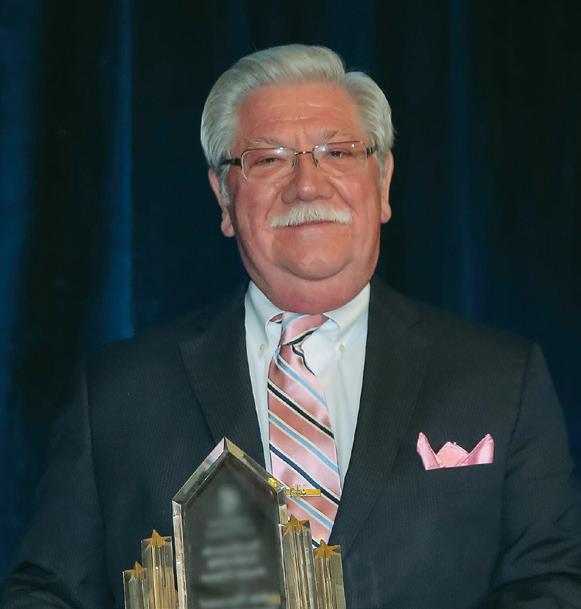
Dr. Kaczmarczyk received the award at the Council on Resident Education in Obstetrics and Gynecology and APGO Annual Meeting held on March 1, 2023, in National Harbor, Maryland. In his acceptance remarks, Dr. Kaczmarczyk stated, “I am deeply honored and profoundly grateful, especially as I read the names of the previous recipients who were the icons, giants, and legends of our specialty.”
While Dr. Kaczmarczyk is honored to be the first DO to receive this distinction, he is more proud of what it symbolizes for the osteopathic profession. “I need to thank APGO for selecting the first DO for this prestigious award at a time when one in four medical students attends osteopathic medical school,” he stated. “From my perspective, this award is not about me. Rather, it’s about the osteopathic profession, opening the door for the DOs who come after me, and, of course, PCOM.”
The APGO Lifetime Achievement Award is given annually to an APGO leader who has demonstrated consistent work in furthering the goals of APGO and OB/GYN academic medicine, commitment to an academic career as evidenced by past activities, and contributions regarded as important to OB/GYN medical education. Throughout Dr. Kaczmarczyk’s career, he has mentored countless colleagues, residents and students. He has led and served on numerous committees, boards and task forces for organizations such as the National Board of Osteopathic Medical Examiners, American Osteopathic Association and American College of Osteopathic Obstetricians and Gynecologists (ACOOG). From 2002 to 2003, he served as president of the ACOOG.
After graduating from PCOM in 1982, Dr. Kaczmarczyk completed residencies and board certifications in obstetrics and gynecology as well as occupational medicine. He is also board-certified in holistic and integrative medicine. In addition, he holds masters’ degrees in physiology and biophysics and public health. In 2018, he earned an executive MBA in healthcare from Saint Joseph’s University.
In 2010, Dr. Kaczmarczyk retired at the rank of captain after a 23-year career with the US Public Health Service and joined PCOM as vice chair and professor in the Department of Obstetrics and Gynecology, assistant OB/GYN residency program director and OB/GYN clerkship director. He was subsequently promoted to assistant dean of clinical education, associate dean of clinical education and associate dean of undergraduate medical education. In 2020, Dr. Kaczmarczyk served as interim dean of PCOM Georgia for 13 months, leading the campus through the uncertain early months of the COVID-19 pandemic. He then returned to PCOM, where he served as vice dean until his retirement in July 2022.
1965
Vincent Lobo, Jr., DO, Bethany Beach, DE, was honored by Bayhealth at a ribbon-cutting ceremony for their new primary care facility in Harrington. Dr. Lobo recently retired after 57 years in practice and was honored at this event for the impact he had on the Harrington community.
1967
Ronald R. Blanck, DO, Fenwick Island, DE, was named interim president of the Foundation for Advancement of International Medical Education and Research (FAIMER). Dr. Blanck assumed leadership of FAIMER in late 2022.
1970
William T. Keweshan, DO, Largo, FL, retired in 2021; his daughter now heads his practice.
1971
Fred R. Bailor, Jr., DO, Easton, MD, is a member of and has completed coursework with the National Genealogical Society of America. Dr. Bailor is also learning to play the electric guitar.
Samuel Strauss, DO, MPH, Round Rock, TX, retired after 45 years of clinical practice in emergency medicine and aerospace medicine. In 2000, he retired from the US Air Force as a colonel and senior flight surgeon. Dr. Strauss served as a staff physician and consultant for 10 years at the Virginia Mason Clinic in Seattle, Washington. He also worked at NASA’s Johnson Space Center in Houston for 10 years. In this role, he provided medical supervision for astronaut spacewalk training and served as a flight surgeon for the Reduced Gravity Flight Program.
1972
Matthew F. Gutowicz, Jr., DO, La Quinta, CA, enjoyed seeing his fellow classmates and alumni in June 2022 during reunion weekend.
David B. Saltzman, DO, Plantation, FL, entered his 44th year of practice as a pulmonologist.
1973
Stuart D. Levy, DO, West Chester, PA, retired from psychiatric practice in May 2021. His daughter, Kathleen, took over his practice upon his retirement. Dr. Levy is enjoying time with his wife, children and grandchildren. Dr. Levy is proud that there are six psychiatrists in his family, including his daughter and niece, both of whom are PCOM graduates.
Marilyn F. Marcus, DO, Miami, FL, retired in November 2022 after 50 years as a family medicine physician.
John P. McLaughlin, DO, Carlisle, PA, was named section chief of gastroenterology at UPMC Pinnacle in Harrisburg.
1974
Richard A. Johnson, DO, Clearfield, PA, joined the staff of Susquehanna Wellness Clinic in December 2022.
Stephen E. Sacks, DO, Newtown Square, PA, entered his 44th year of practicing neurology. Dr. Sacks sends his regards to his 1974 classmates. He is proud to announce that one of his sons graduated from PCOM in May 2022, and another son is a neurology resident at SUNY Brooklyn.
1975
Patricia J. Ausman, DO, Glen Mills, PA, retired from family medicine after 48 years.
Allen J. Zagoren, DO, Selbyville, DE, recently retired and moved back to the East Coast after 42 years in Iowa. Dr. Zagoren continues to teach wound care science.
1976
Joel B. Edelstein, DO, Scottsdale, AZ, retired from internal medicine practice.
Edward C. Weber, DO, Lyndhurst, OH, is a member of the Radiological Society of North America, the American College of Radiology, the American Roentgen Ray Society, the Association of University Radiologists, and the American Association for the Advancement of Science. He is a volunteer clinical professor emeritus of radiology and imaging sciences at the Indiana University School of Medicine. Dr. Weber serves as a consultant for The Imaging Institute and is a clinical assistant professor at the Cleveland Clinic Lerner College of Medicine. He was lead author of Netter’s Concise Radiologic Anatomy (Elsevier, 2008; 2nd ed. 2014) and Practical Radiology: A SymptomBased Approach (F.A. Davis, 2012), and co-author of Normal and Pathologic Anatomy (Elsevier, 2010).
Jeffrey S. Weisman, DO, Trevose, PA, joined the cardiology staff at Penn Presbyterian Medical Center.
1977
Kenneth G. Borie, DO, Randolph, VT, entered his 43rd year of practicing family medicine.
PHILADELPHIA COLLEGE OF OSTEOPATHIC MEDICINE 32 CLASS NOTES
1978
David A. Baron, DO, Altadena, CA, is the chair of the Caucus on Global Mental Health and is a visiting professor at the University of Malaysia Sabah.
1981
Jay S. Feldstein, DO, Gladwyne, PA, president and chief executive officer, PCOM, was appointed to the Board of Directors for the Hospital and Healthsystem Association of Pennsylvania. Dr. Feldstein was featured in the Philadelphia Business Journal in an article titled “PCOM CEO on Why It Chose to Buy Stake in Chestnut Hill Hospital, but Not St. Christopher’s” (January 13, 2023), in which he discussed the College’s latest accomplishments and goals. Dr. Feldstein was also featured in Albany CEO in an article titled “A Successful & Supportive Partnership: PCOM South Georgia & Colquitt Regional Medical Center” (January 19, 2023), and spoke on the importance of regional partnerships with Jim Matney, CEO of Colquitt Regional Medical Center.
1982
Joseph M. Kaczmarczyk, DO, Drexel Hill, PA, received the Angela R. Kyte Outstanding Alumni Award from Lycoming College on June 3, 2023. The award is given to an alumnus/alumna who has demonstrated a lifetime of service to humanity and whose life exemplifies those qualities encouraged and fostered at Lycoming College.
1983
Thomas A. Boyle, DO, Oswego, IL, was appointed as a member of the Illinois State Medical Board. Dr. Boyle will continue to serve as the dean of medicine for Midwestern University’s Chicago College of Osteopathic Medicine.
1984
Maria F. Daly, DO, Falls Church, VA, recently moved back to the East Coast. Dr. Daly holds osteopathic medical licenses in both Maryland and Virginia.
1985
Ronald M. Unice, DO, Meadville, PA, was honored at a lunchtime celebration marking his 35th anniversary with Crawford County Care Center. Dr. Unice has served as
ROBERT J. LLOYD, DO ’91, RES ’96, FACOS
Named interim dean of PCOM South Georgia by Cindy Montgomery
Robert J. Lloyd, DO ‘91, RES ‘96, FACOS, Moultrie, GA, has been named interim dean of PCOM South Georgia following the retirement of H. William Craver, III, DO ’87, FACOS.
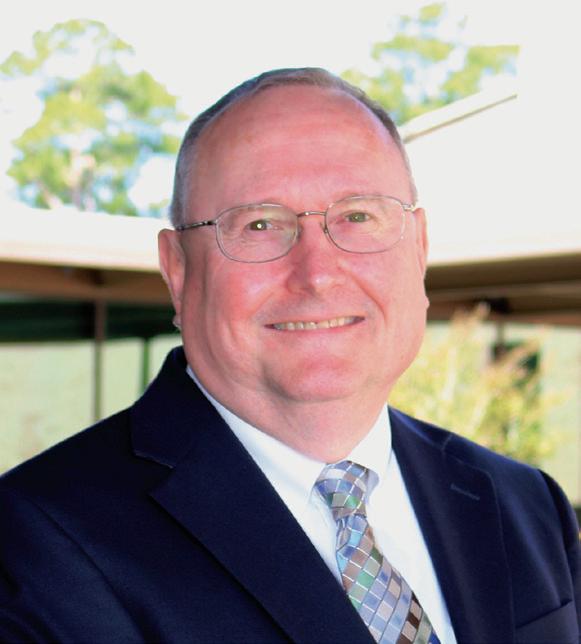
Dr. Lloyd began his career as a general surgeon in west Tennessee, moving later to a rural, underserved area in east Tennessee. “I know what it’s like to practice in a community with limited healthcare resources,” he said. “I want to encourage our students to consider practicing in the many rural and underserved areas in Georgia and throughout the country. These communities need access to well-trained, high quality physicians. In addition, these communities offer an excellent standard of living and are an ideal place to live and raise a family.”
In 2012, he began lecturing at PCOM Georgia. In 2015, he developed a blended learning curriculum for third-year medical students completing their clinical clerkships.
In 2020, Dr. Lloyd transitioned into full-time teaching when he joined the PCOM South Georgia faculty. He also serves as chair of clinical education.
Dr. Lloyd is a fellow of the American College of Osteopathic Surgeons and a member of the National Board of Osteopathic Medical Examiners. He earned a master of science in medical education at Lake Erie College of Osteopathic Medicine in 2022.
the center’s medical director since 1988. His brother, Kenneth Unice, DO ’78, was also in attendance.
1986
Charles J. Sophy, Jr., DO, Beverly Hills, CA, hosted a book signing in Saint Clair, Pennsylvania, for his book titled Family Values in November 2022. Dr. Sophy is a psychiatrist and former medical director for the Los Angeles Department of Children and Family Services. He currently has a private practice specializing in child, adolescent and adult psychiatry in Beverly Hills. Dr. Sophy has been a frequent guest on the “Dr. Phil” show, and the foreword of his book was written by Dr. Phil McGraw.
Mark T. Watkins, DO, Exton, PA, was recognized by Metro Philadelphia as one of the “Power Players in Healthcare” (October 31, 2022). Dr. Watkins is a family medicine physician at the Mazzoni Center, where he specializes in caring for LGBTQ+ individuals and those with HIV and AIDS.
1987
Michael A. Becker, DO, Blue Bell, PA, associate dean, clinical education, PCOM, represented the College at the grand opening of Lehigh Valley Health Network’s Medical Education Center.
1988
John R. Gimpel, MEd, DO, Lafayette Hill, PA, president and CEO of the National Board of Osteopathic Medical Examiners, visited PCOM Georgia and PCOM South Georgia in January to update students and faculty members about recent developments at the organization.
Ronald M. Lieberman, DO, West Chester, PA, is the first doctor in the Main Line region to offer Discseel, a non-surgical pathway to back pain relief.
A. Scott McNeal, DO, Collegeville, PA, was recognized by Metro Philadelphia as one of the “Power Players in Healthcare” (October 31, 2022). Dr. McNeal is the president and CEO of Delaware Valley Community Health, Inc., which operates nine federally qualified health centers in the Greater Philadelphia area.
1990
Emil P. Lesho, DO, Webster, NY, spoke with Rochester First in a segment titled “ ‘The Sooner, the Better:’ Doctors Address Pending Pfizer RSV Vaccine” (November 3, 2022).
Christine F. Purcell-Giesa, DO, Collegeville, PA, received the 2022 Bruce D. Horton, DO, Lifetime Achievement Award from the American College of Osteopathic Emergency Physicians in October 2022.
1991
Christopher D. Still, DO, Winfield, PA, received Geisinger’s 2022 Henry Hood Award for Clinical and Research Excellence. Dr. Still is the director of Geisinger’s Center for Obesity and Metabolic Research.
Michael S. Weiner, DO, East Lansing, MI, was named chief medical officer of Michigan State University Health Care.
1992
Ann Orchard Brotzman, DO, Nazareth, PA, received a master of science degree in medical informatics from the University of Texas. Dr. Brotzman also earned a certificate in physician leadership through the American College of Physicians.
Wende A. Goncz, DO, Pittsburgh, PA, began her term as president of the medical staff at UPMC Passavant in January 2023. Dr. Goncz is the first DO and anesthesiologist to hold this position. Dr. Goncz was also accepted as a fellow in the American Association of Clinical Directors.
Richard T. Jermyn, DO, Collingswood, NJ, was appointed interim dean of Rowan-Virtua School of Osteopathic Medicine in February 2023.
DIGEST 2023 33
1993
Keith P. Radbill, DO, Marlton, NJ, was bestowed the award of fellow of the American Osteopathic Academy of Addiction Medicine. Dr. Radbill was also named medical director of outreach and presented a webinar on alcohol use disorder for the New Jersey Association of Mental Health and Addiction Agencies.
Susan M. Robins, DO, Chesterfield, SC, was named program director for the McLeod Family Medicine Rural Residency Program in December 2022.
Joseph W. Stauffer, DO, Sarasota, FL, was appointed chairman of the board of directors for BioFuse Medical Technologies, Inc.
1994
Michael A. Hassman, DO, Mount Laurel, NJ, was recognized by Metro Philadelphia as one of the “Power Players in Healthcare” (October 31, 2022). Dr. Hassman oversees clinical trials and serves as chief medical director for CenExcel HRI. He also serves as a family medicine physician at Advocare Berlin Medical Associates.
1998
Brock Generalovich, DO, Youngstown, OH, was honored by the University of Pittsburgh’s Varsity Letter Club as a 2023 Awardee of Distinction.
Robert A. McMurtrie, Jr., DO, King of Prussia, PA, was appointed chief medical officer for Mercy Fitzgerald Hospital and Saint Francis Hospital.
David R. Sheba, DO, Uniontown, PA, joined the staff of Penn Highlands Orthopedics and Sports Medicine.
1999
Janie L. Orrington-Myers, DO, Terre Haute, IN, was interviewed and featured in an article by the Tribune-Star titled “2022 Women in Business: Dr. Janie Myers” (January 2, 2023). Dr. Myers was also nominated as the honorary chairperson for Susan G. Komen of Wabash Valley in October 2022.
2001
Arthur Jones, Jr., DO, Lincoln, DE, joined the staff of TidalHealth OB/GYN in Seaford.
2002
Timothy A. Leone, DO, Mechanicsburg, PA, joined the medical staff of Penn Highlands Healthcare. He provides trauma, acute surgical care, and general surgery services.
Justin John Sheba, DO, Uniontown, PA, joined the staff of Penn Highlands Orthopedics and Sports Medicine.
2003
Keith L. Leaphart, DO, MBA, Philadelphia, PA, was recognized as one of “The 100 Most Influential People in Philadelphia” in the 2022 edition of Philadelphia Magazine
2004
Susan McCaughan, MS/Biomed, Denver, CO, was interviewed for a faculty feature for University of Colorado Anschutz School of Dental Medicine (December 19, 2022). Dr. Somerset earned a doctor of dental medicine degree from Temple University Kornberg School of Dental Medicine and a doctor of pharmacy degree from the University of the Sciences in Philadelphia.
2005
Heather L. Davis, DO, Wilmington, NC, was named vice president of clinical affairs for the coastal region at Novant Health in January 2023.
Trina L. Michael, DO, Reading, PA, joined the medical staff as the new chief medical officer at Penn Highlands Healthcare in October 2022.
Chavone D. Momon-Nelson, DO, MBA, Carlisle, PA, spoke to LAD Bible for an article titled “People Are Shocked After Learning About How Long You Should Keep Your Underwear” (November 5, 2022).
2006
R. Jason Hartman, DO, Philadelphia, PA, offered advice on the dangers of IV vitamin therapy in an article titled “IV Vitamin Therapy: Are Vitamin Infusions the Key to Good Health?” on the blog “Abbey’s Kitchen” (November 16, 2022).
Leanne T. Labriola, DO, Sewickley, PA, was featured in a video segment by Healio titled “New Tear
Film Diagnostic Device Measures MMP-9, Osmolarity in One Sample” (September 30, 2022), in which she discussed the OcuCheck biosensor, a tear film diagnostic device. Dr. Labriola is the president and co-founder of InnSight Technology, founded in 2014.
John S. Michel, DO, MBA, Philadelphia, PA, was recognized by Metro Philadelphia as one of the “Power Players in Healthcare” (October 31, 2022). Dr. Michel is the lead physician at Excel Medical Center, LLC, which focuses on providing preventative medicine and treatment of diseases in 14 clinics across Philadelphia.
2007
Anthony J. Wehbe, DO, MBA, FACOI, Mickleton, NJ, spoke to Technical.ly for an article titled “Following a Global Crisis, What Is Technology’s Role in Healthcare Innovation?” (November 2, 2022).
2008
Allison A. Aggon, DO, Jenkintown, PA, was inducted as a fellow into the Philadelphia Academy of Surgery in December 2022.
Justin R. Buland, DO, Akron, OH, was appointed as site director for neonatology for Akron Children’s Hospital in the Mahoning Valley. Sallee Eckler Jones, DO, PhD, Clarkston, WA, was interviewed by Northwest Public Broadcasting for an article titled “Don’t Wait Until It’s Too Late: Doctors Advise on Breast Screenings, Self-Exams” (October 28, 2022).
Rhonda Parker, DO, RES ’08, Montrose, CO, chief medical officer at Montrose Regional Health, has been elected to the Colorado Medical Society board, representing Districts 3 and 4.
Andrea L. Read, DO, Rogers, AR, was named executive medical director for Circle of Life in December 2022.
Jessica R. Terrana, DO, Blue Bell, PA, was recognized by Metro Philadelphia as one of the “Power Players in Healthcare” (October 31, 2022). She is the director of the Suburban Family Medicine Residency Program and vice-chair of the Family Medicine Department at Suburban Community Hospital.
2009
Rita L. Baldino, PsyD, Kelayres, PA, announced her candidacy for Schuylkill County commissioner for 2023.
Zachary P. Englert, DO, Lincroft, NJ, was recognized by Continental Who’s Who as a Top Pinnacle Professional for his contributions to the trauma and general surgery fields.
Eugene G. Haas, DO, Blue Bell, PA, was elected to the American Academy of Urgent Care Medicine board of directors for the 20232025 term.
Lauren Rossman, DO, Pittsburgh, PA, was named one of Pennsylvania Medical Society’s 2022 Top 40 Physicians under 40. Throughout the pandemic, Dr. Rossman treated the sickest members of her community in the ICU as a critical care medicine specialist at St. Clair Hospital. She created an online forum for female interventionists that was a key lifeline for her peers throughout COVID-19.
Steven A. Sluck, DO, Waverly, PA, joined the Geisinger 65 Forward Health Center team in Scranton in November 2022.
2010
Scott Gary Glickman, DO, RES, Las Vegas, NV, was recognized by Continental Who’s Who for his achievements as a specialist at the Center for Neurosurgery Las Vegas. Eileen Lightner, PsyD, Vancouver, WA, recently retired and relocated to Washington State to be closer to her grandchildren.
Carla R. Renaldo, DO, Arden, NC, joined the primary care providers at AdventHealth Medical Group Multispecialty in South Asheville. Mary Elizabeth Vitucci, DO, North Wales, PA, was recognized by Metro Philadelphia as one of the “Power Players in Healthcare” (October 31, 2022). Dr. Vitucci is the director of medical education and director of osteopathic education at Suburban Community Hospital, where she also serves as the associate program director of the family medicine residency.
2011
Tyler Inchul An, DO, Duluth, GA, was recognized by Marquis Who’s Who for his years of expertise and his work as a gastroenterologist with GI North PC (January 19, 2023).
PHILADELPHIA COLLEGE OF OSTEOPATHIC MEDICINE 34 CLASS NOTES
Jenna Ann Brown, DO, West Milton, PA, was appointed medical director of Rose View Nursing and Rehabilitation in November 2022.
Derek J. Golna, DO, Dillonvale, OH, joined the family practice team at WVU Medicine Harrison Community Hospital in October 2022.
Carrie D. Watson, DO, Gainesville, FL, was recognized by Continental Who’s Who for her work as a trauma surgeon at Piedmont General Surgery Associates.
2013
Scott D. Glassman, PsyD, Cherry Hill, NJ, director, Applied Positive Psychology Program, PCOM, discussed the potential impact of artificial intelligence-simulated empathy in Psychology Today (April 21, 2023).
2014
Nicholas J. DeMarco, PsyD, Philadelphia, PA, was recognized by Metro Philadelphia as one of the “Power Players in Healthcare” (October 31, 2022). Dr. DeMarco is the director of IDD and mental health supports at Philadelphia Coordinated Health Care, where he oversees behavioral health initiatives that support individuals with intellectual and developmental disabilities across the region.
Richard M. Pescatore, II, DO, Mullica Hill, NJ, was named chair of the editorial board of Emergency Medicine News
Douglas M. Phelan, DO, Salem, NH, is currently serving as president-elect of the New Hampshire Academy of Family Physicians. He was recognized by New Hampshire Magazine as a 2023 Top Doc. Dr. Phelan is a family medicine physician at DMC Primary Care. Dr. Phelan also serves as a board member for the New Hampshire Academy of Family Physicians and an alternate delegate for the state to the national American Academy of Family Physicians.
Kamina Richardson, MS/ODL, Bear, DE, authored a chapter in the book titled Know That You Are Worthy: Experiences from FirstGeneration College Graduates, published in February 2023.
LeeAnn M. Tanaka, DO, Philadelphia, PA, wrote an article for Healio.com titled “Hooked on Primary Care with LeeAnn Tanaka, DO” (February 13, 2023). Dr. Tanaka
SARAH DEMARCO, PSYD ’14: FORENSIC PSYCHOLOGIST SPECIALIZING IN FIREARMSPECIFIC EVALUATIONS
by Meghan McCall
Sarah DeMarco, PsyD ’14, Weehawken, NJ, a forensic psychologist with Pirelli Clinical and Forensic Psychology in Verona, New Jersey, is one of the tristate area’s few experts in conducting firearms evaluations that are used to determine if individuals are fit to obtain or regain possession of guns.
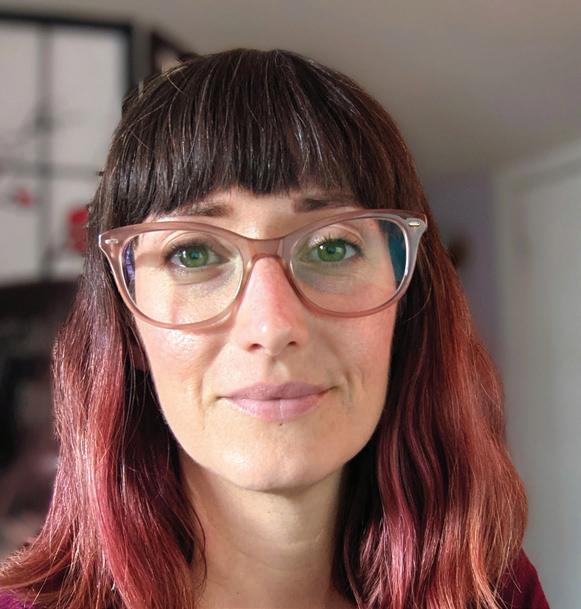
Forensic psychology was not officially recognized by the American Psychological Association as a specialty until 2001, but it is one of the most competitive specialties within the field. Dr. DeMarco credits the practicum and internship opportunities she had at PCOM with setting a solid foundation for her career, saying, “With how new, exciting, and competitive the field is, it took a lot to get to where I am. At PCOM, my forensics and corrections-type practicums helped me land an extremely competitive internship working with the New Jersey state correctional system. That really connected me to the right people.”
One of those connections was with Gianni Pirelli, PhD, ABPP, Dr. DeMarco’s colleague and owner of the group practice in which she works. “He realized there was a huge gap in the intersection between mental health and firearms and created this area of expertise. We are really some of the very few experts in conducting evaluations in this area,” she explains.
Firearm evaluations are a particular type of forensic mental health assessment that are required for some individuals as they apply to own a gun or seek to have their gun rights restored. While they include traditional violence, suicide and domestic violence risk assessments, firearm-specific evaluations also factor in personal interview information, response style and aspects such as firearm exposure, culture and understanding of safety principles. In a typical day, Dr. DeMarco spends a lot of her time in legal discovery. She then weighs the data she uncovers against state statutes for firearms to determine ownership suitability.
“We’re not the ultimate decision-maker in legal cases, but our work is essential to the decision-making process,” Dr. DeMarco explains. “Oftentimes judges very heavily rely on our opinions.”
While this type of work is essential to court systems, firearm issues may also arise in the clinical context. However, few medical and mental health practitioners have any training or knowledge in the area to apply to their own practice. “We’re taught in school how to conduct suicide and violence risk assessments, and we’re told to ask about guns in the context of these evaluations. However, research shows that the majority of folks in both of these disciplines receive virtually no formal training on firearms — what to know about them, what safe use looks like and what to do when gun issues arise in clinical practice,” explains Dr. DeMarco.
To fill this gap in knowledge, Dr. DeMarco and Dr. Pirelli wrote a book published by Oxford University Press in 2023 titled Firearms and Clinical Practice: A Handbook for Medical and Mental Health Professionals. The book educates on basic firearms principles, firearm safety, subcultures, foundations for federal and state firearm-specific laws, and how to handle firearm-specific issues that arise in therapeutic and clinical contexts. It also provides a semi-structured framework on how to conduct firearms evaluations.
discusses why she chose a career in family medicine.
2015
Jessica N. Brumfield, DO, Moultrie, GA, was interviewed by the Moultrie Observer for an article titled “Local Physicians Talk Rural Medicine: Scholarships, Loan Repayment and Way of Life” (February 10, 2023).
Khiara D. Cureton, MS/ODL, Atlanta, GA, was appointed as a member of the Competency Standards Commission to review and evaluate competency requirements for education, examination, experience, and continuing edu-
cation of the Certified Financial Planner Board of Standards, Inc. Hobie S. Fuerstman, DO, Atlanta, GA, was the subject of the cover story of Vermont Maturity Magazine (November 1, 2022). The article focused on his work in preventative medicine and his practice, Preventative Medicine Vermont, which he purchased in 2020.
Spencer S. Smith, DO, McMurray, PA, is an orthopedic surgeon specializing in adult reconstruction and joint replacement surgery of the hips and knees at Florida Orthopaedic Institute.
2016
Andrew J. Castellano, DO, Albany, NY, joined Cardiology Associates of Schenectady, a practice of St. Peter’s Health Partners Medical Associates.
Surjeet D. Dheer, DO, New Castle, DE, joined the staff of Infusion Solutions of Delaware in 2022. Dr. Dheer had research published in the Journal of Clinical Rheumatology in September 2022 titled “Age-Related Differences in the Treat-to-Target Approach to Rheumatoid Arthritis Management in an Urban Clinic.” Dr. Dheer was also appointed as a council representative for the
DIGEST 2023 35
ON A PERSONAL NOTE
Laura C. DePalma, DO ’09, Lincroft, NJ, and her husband, Zachary Englert, DO ’09 , welcomed their third child, Olivia Millie Englert, on June 29, 2022.
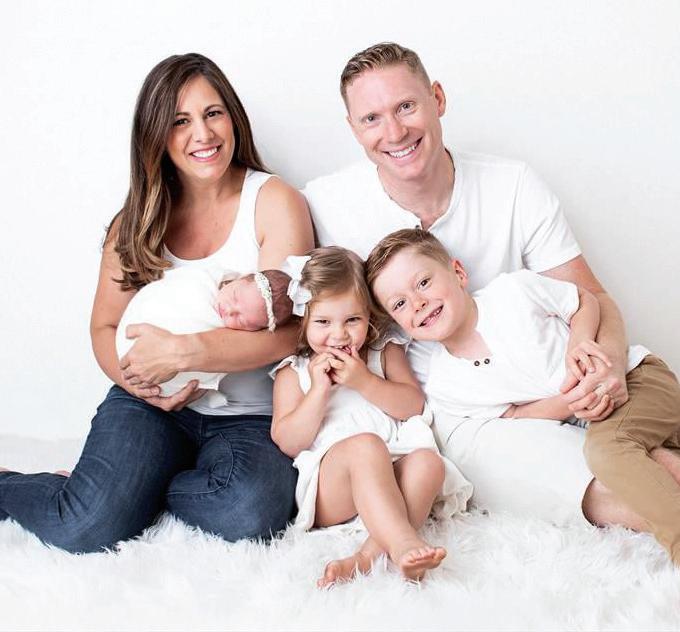
Surjeet D. Dheer, DO ’16, New Castle, DE, welcomed a daughter in 2019 and a son in 2021.
Janet M. Friedman, PsyD ’06, Myrtle Beach, SC, and her husband, Michael, will be celebrating their 50th wedding anniversary on September 1, 2023.
Hilary S. Haack, DO ’13, Berlin, MD, and her husband, Geoffrey Sirockman, DO ’13, welcomed their second child, Lily Elizabeth Sirockman, on March 12, 2023.
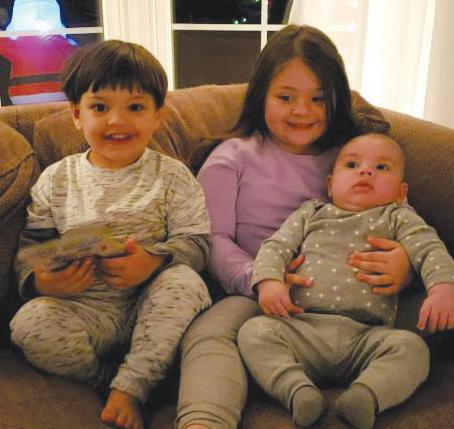

Eugene G. Haas, DO ’09, Blue Bell, PA, is happy to announce the birth of his third child, Ignatius Maximilian Haas, born on August 12, 2022.
Ruark Lanham, MS/ODL ’07, Wyncote, PA, married Pamela Jordan on August 22, 2022.
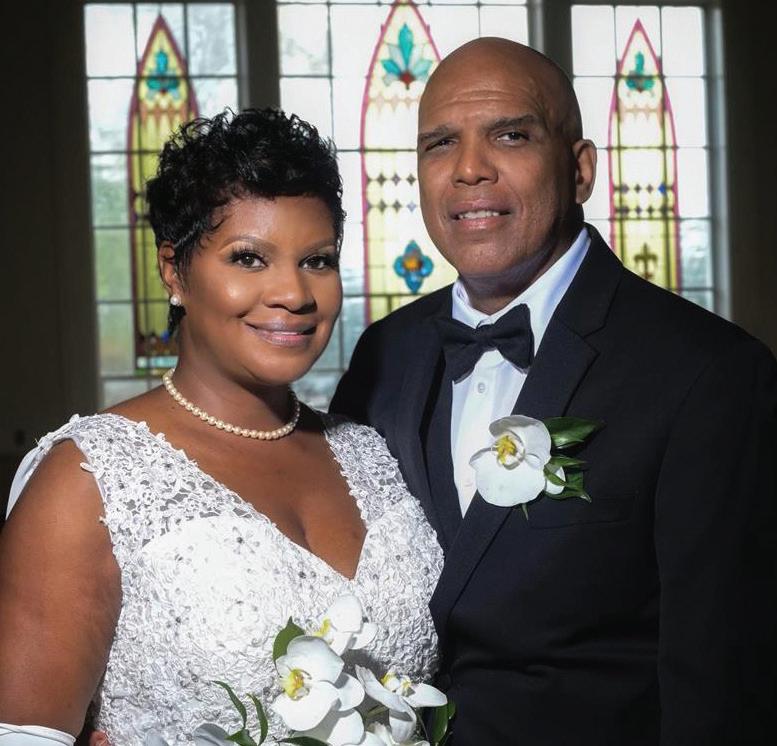
Douglas M. Phelan, DO ’14, Salem, NH, and his wife, Stephanie, welcomed their baby girl, Eleanor, in December 2022.

Pennsylvania Rheumatology Society during fellowship.
Brianna M. Hitchner, DO, Thurmond, NC, joined the staff of Hugh Chatham Health in January 2023 as a family medicine physician.
Dieynaba M. Toure, DO, Dallas, TX, accepted a new position with HealthTexas Provider Network, a member of Baylor Scott & White Health System.
Heather R. Wortham, DO, Fleming Island, FL, joined the staff of Lakeland Regional Health Grasslands Campus as an orthopedic trauma surgeon.
2017
Mai-Lynn Bui, DO, Conyers, GA, joined the staff of Piedmont Physicians Neurology of Rockdale in December 2022.
Alexander M. DiGregorio, DO, Shalimar, FL, was awarded the Air and Space Achievement Medal by the US Air Force in December 2022 for his accomplishments while assigned as a staff internist. He was notified in January 2023 of his selection to the rank of major.
Nicole L. Hardeman, DO, Chatsworth, GA, joined the staff of Hamilton Family Medicine Clinic in November 2022.
Jacob C. Ogden, DO, Dubois, PA, joined the staff of Penn Highlands Interventional Pain Center as an interventional pain medicine specialist in January 2023.
2018
Dimitry Belogorodsky, MS/ Biomed ’14, DO, Lehighton, PA, joined the LVPG Orthopedics and Sports Medicine–Carbon staff in January 2023.
Zachary A. Kopelman, DO, Fort Irwin, CA, was selected for fellowship training in gynecologic oncology at the Walter Reed National Capital Consortium Gynecologic Cancer Center of Excellence.
Danielle M. Ward, DO, Miami, FL, shared her story of becoming an osteopathic plastic surgery resident in the March 2023 issue of the DO titled “Plastic Surgery Residency, Content Creation, Single Mom-ing and More: How This DO Juggles It All.”
GEAR UP AT THE COLLEGE’S ONLINE SPIRIT STORE
You can now purchase products including apparel and novelties at PCOM’s online Spirit Store (pcom.nbsstore.net). Special merchandise is branded for alumni from PCOM, PCOM Georgia and PCOM South Georgia. The store offers shipping as well as merchandise pickup at all campus locations.

PHILADELPHIA COLLEGE OF OSTEOPATHIC MEDICINE 36 CLASS NOTES
DePalma family
Dheer children Haack children
Haas children Lanham wedding
IN MEMORIAM
David Coffey, DO ‘84, Philadelphia, PA, June 2, 2023
Leonard M. Evans, DO ‘84, Lower Merion, PA, December 12, 2022
Janet Longenecker Flack, RN ‘48, Plantation, FL, December 2, 2022
Dennis C. Graham, DO ‘73, Pilesgrove, PA, December 29, 2022
Maurice C. Hothem, DO ‘67, Falmouth, ME, February 15, 2023
Larry M. Kjeldgaard, DO ‘86, Hurst, TX, April 18, 2022
ALUMNI GATHERINGS
Chester J. Madzelan, DO ‘73, York, PA, February 5, 2023
Francis Murray, DO ‘74, Somerdale, NJ, January 4, 2023
Brendan J. O’Brien, DO ‘64, Macungie, PA, December 4, 2022
Samuel J. Pietrandrea, DO ‘67, Ridgewood, NJ, February 27, 2023
Gerald E. Smith, DO ‘29, Roslyn, PA, May 23, 2022
1. ORLANDO ALUMNI RECEPTION – ACOFP
PCOM took over Disney in March. Alumni gathered in Orlando during the American College of Osteopathic Family Physicians’ Annual Convention and Scientific Seminars for an evening reception at Disney’s Coronado Springs Resort.
2. SCHOOL OF PROFESSIONAL AND APPLIED PSYCHOLOGY NETWORKING NIGHT
PCOM hosted a Networking Night for the School of Professional and Applied Psychology in April. The event provided an opportunity for alumni from PCOM’s counseling, psychology, school psychology, and organizational development and leadership programs to catch up and build connections for future career opportunities and referrals.
3. SOUTH JERSEY AREA ALUMNI RECEPTION – AROC
In April, alumni connected during a reception at the Hard Rock Hotel and Casino in Atlantic City, New Jersey, held in conjunction with the Atlantic Regional Osteopathic Conference.
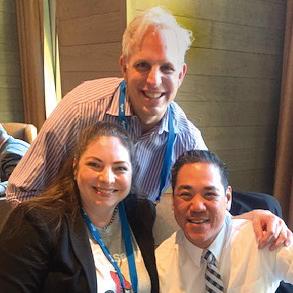
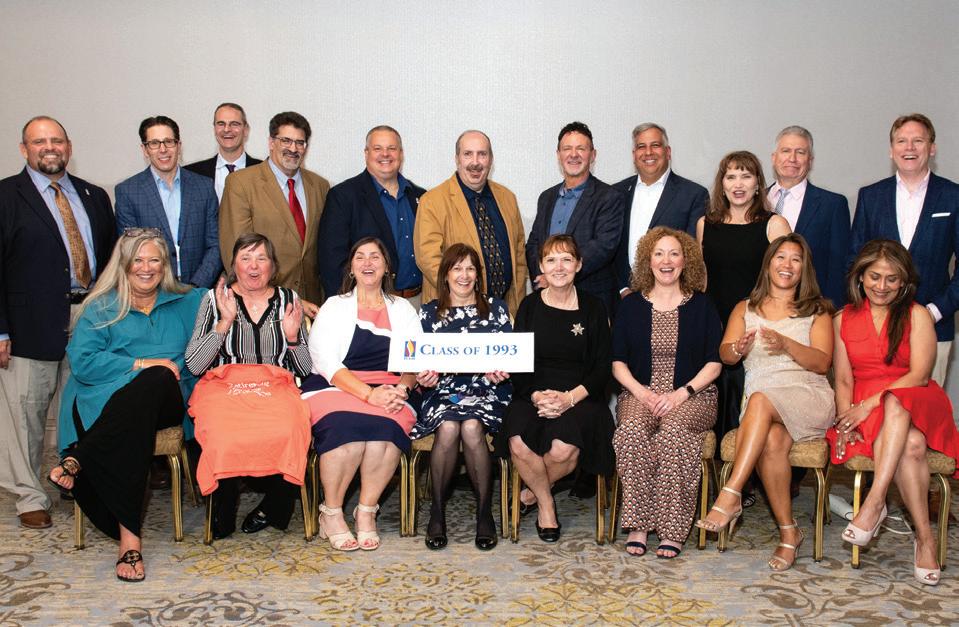
4. POCONOS AREA ALUMNI RECEPTION – POMA
In May, alumni gathered at Kalahari Resort for a reception during the Pennsylvania Osteopathic Medical Association’s Clinical Assembly. Students presenting at the conference were also invited to connect with alumni at the event.
5. ODL ANNUAL COMMUNITY CELEBRATION
Alumni, students, faculty, and staff from Organizational Development and Leadership program caught up at the program’s annual end-of-year celebration in early June.
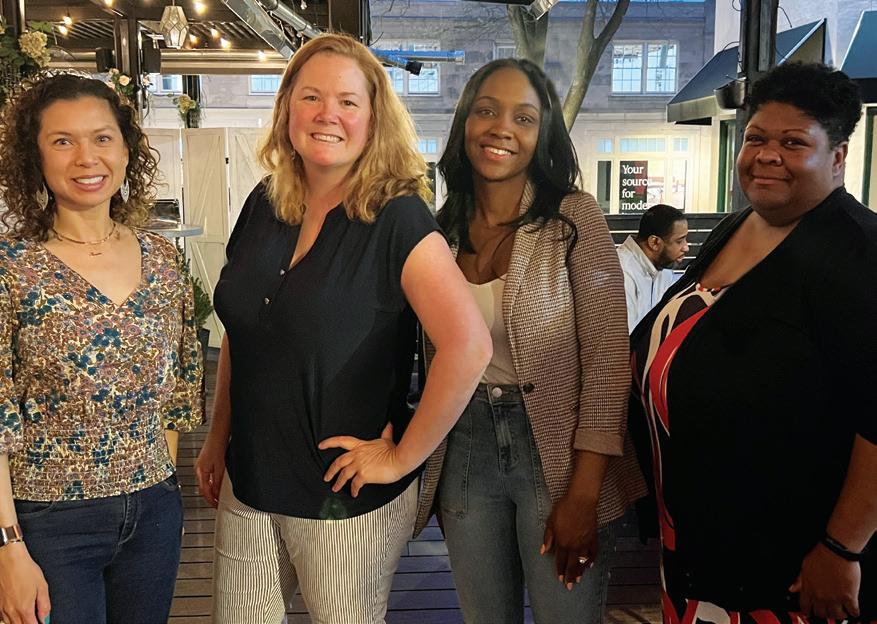
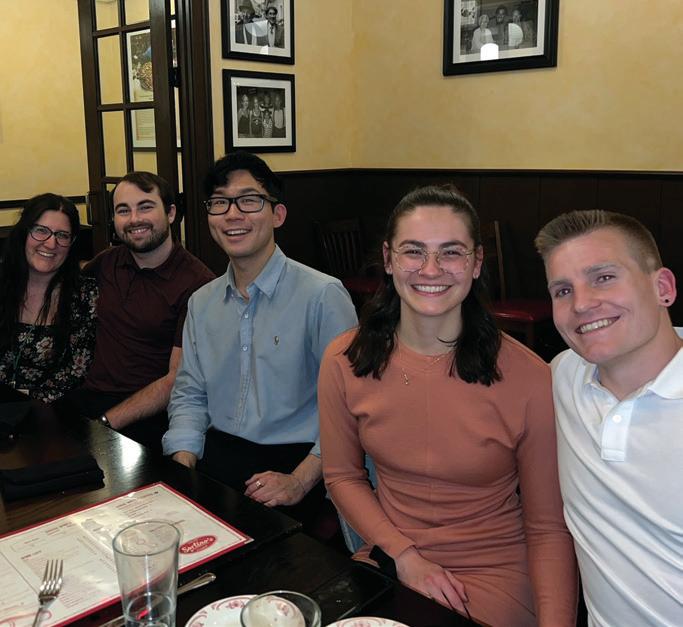
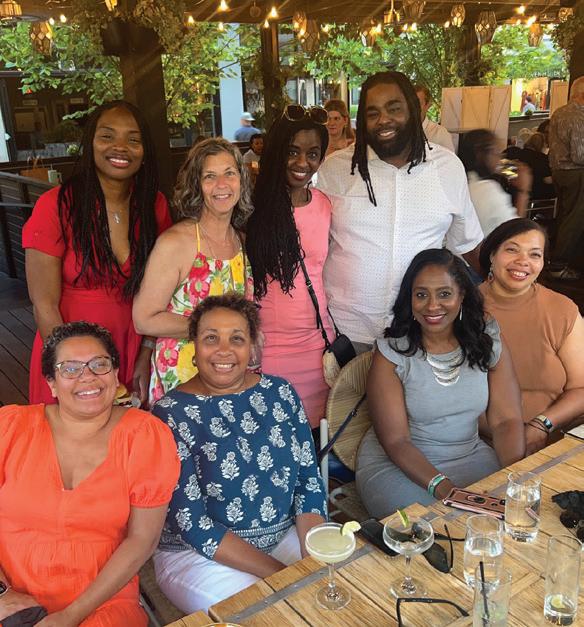
6. PCOM REUNION
Over 140 alumni from Philadelphia DO classes ending in 3s and 8s reconnected in June during PCOM’s Reunion Celebration. The day kicked off with a 50th reunion luncheon honoring the 50th reunion class of 1973, as well as the 55th, 60th, and 65th reunion classes of 1968, 1963, and 1958. In the afternoon, alumni got a glimpse into the lives of current students with campus tours. All reunion classes celebrated at the Grand Reception in the evening that featured food stations, cocktails, and dancing.
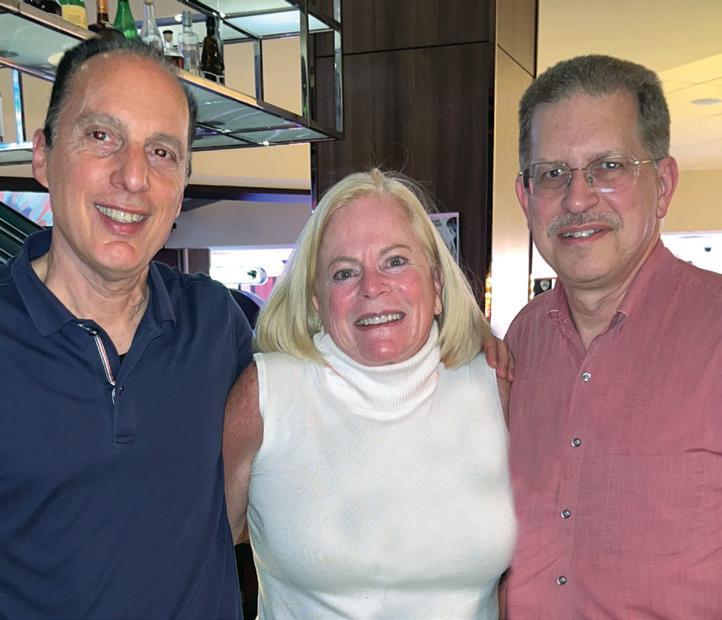
DIGEST 2023 37
1 2 3 6 5 4
THE BUST OF OSCAR JOHN SNYDER, DO

It was the Bicentennial year in the Bicentennial city. The College marked its traditional Founders’ Day in combination with an Alumni Dinner Dance. More than 700 members of the PCOM family assembled to witness— before frolicking the night away—President Thomas M. Rowland, Jr., present the O.J. Snyder Memorial Medal to Mortimer J. Sullivan, DO 1921, a general practitioner, radiologist, and member of the Board of Trustees. A bronze-colored bust of O.J. Snyder, the College’s co-founder and first president from 1899 to 1904, flanked Dr. Rowland’s side.
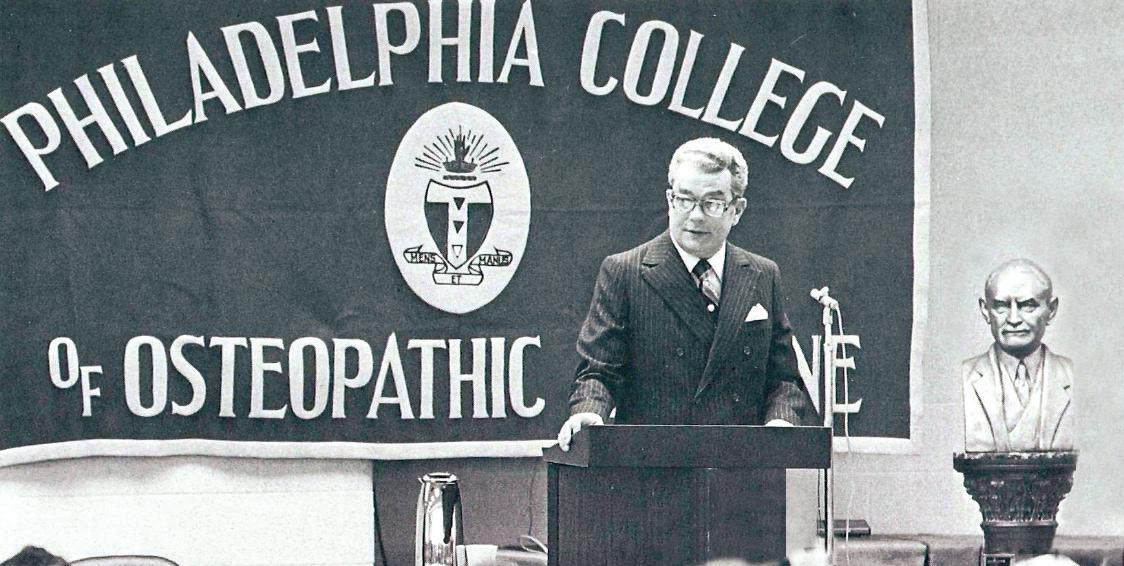
The bust, rediscovered in the College Archives, was photographed for this anniversary issue of Digest Magazine—in tribute to the PCOM presidency. Nothing is known about the sculptor or when the bust was commissioned.
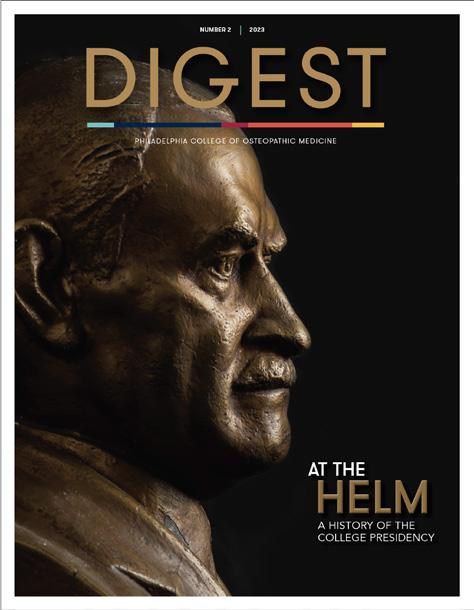
Philadelphia College of Osteopathic Medicine
Philadelphia,
Non-Profit Organization U.S. Postage PAID Upper Darby, PA Permit No. 167 pcom.edu •
4170 City Avenue
PA 19131
Photograph from Founders’ Day, January 24, 1976



























 by Meghan McCall
by Meghan McCall



















 – Jay S. Feldstein, DO ’81, president and chief executive officer
– Jay S. Feldstein, DO ’81, president and chief executive officer





 PCOM
PCOM






 As told by A. Scott McNeal, DO ’88, vice chairman, PCOM Board of Trustees
As told by A. Scott McNeal, DO ’88, vice chairman, PCOM Board of Trustees











































